Catalogue 2023–2024
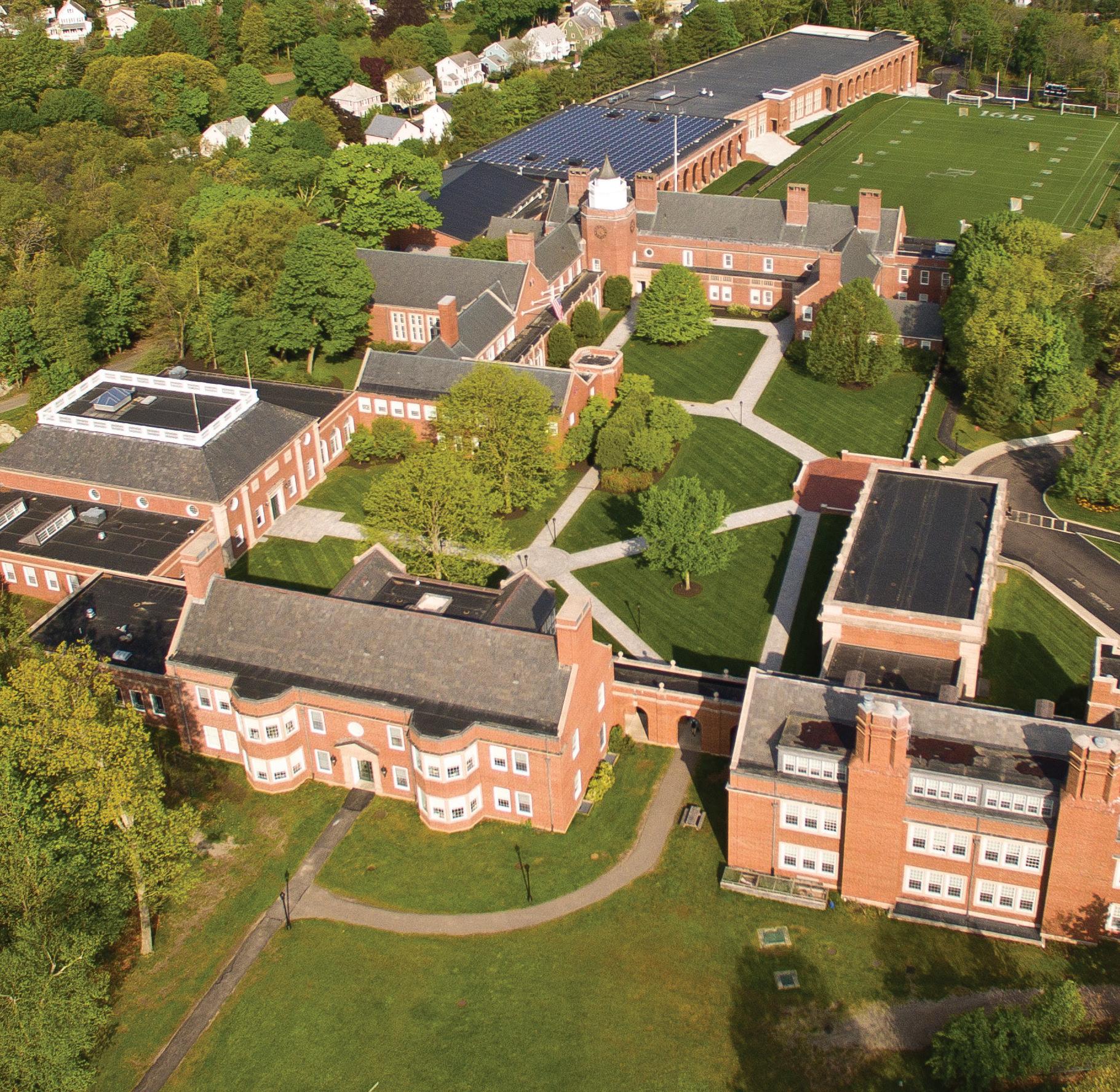
2 | The Roxbury Latin School Catalogue 2019-2020 A B C F G E I J K L A
D
G
H
I
J
K
L
H
The Robert P. and Salua J.A. Smith Arts Center
B
The Charles T. Bauer Science Center
C
The Jarvis Refectory
The Ernst Wing
E
Rousmaniere Hall
F
The Perry Building
Admission Office
The Mary Rousmaniere Gordon Great Hall
The McNay Wrestling Palaistra
The Bernstein Tea Room
The Albert H. Gordon Field House
Indoor Athletic Facility and Hennessy Rink
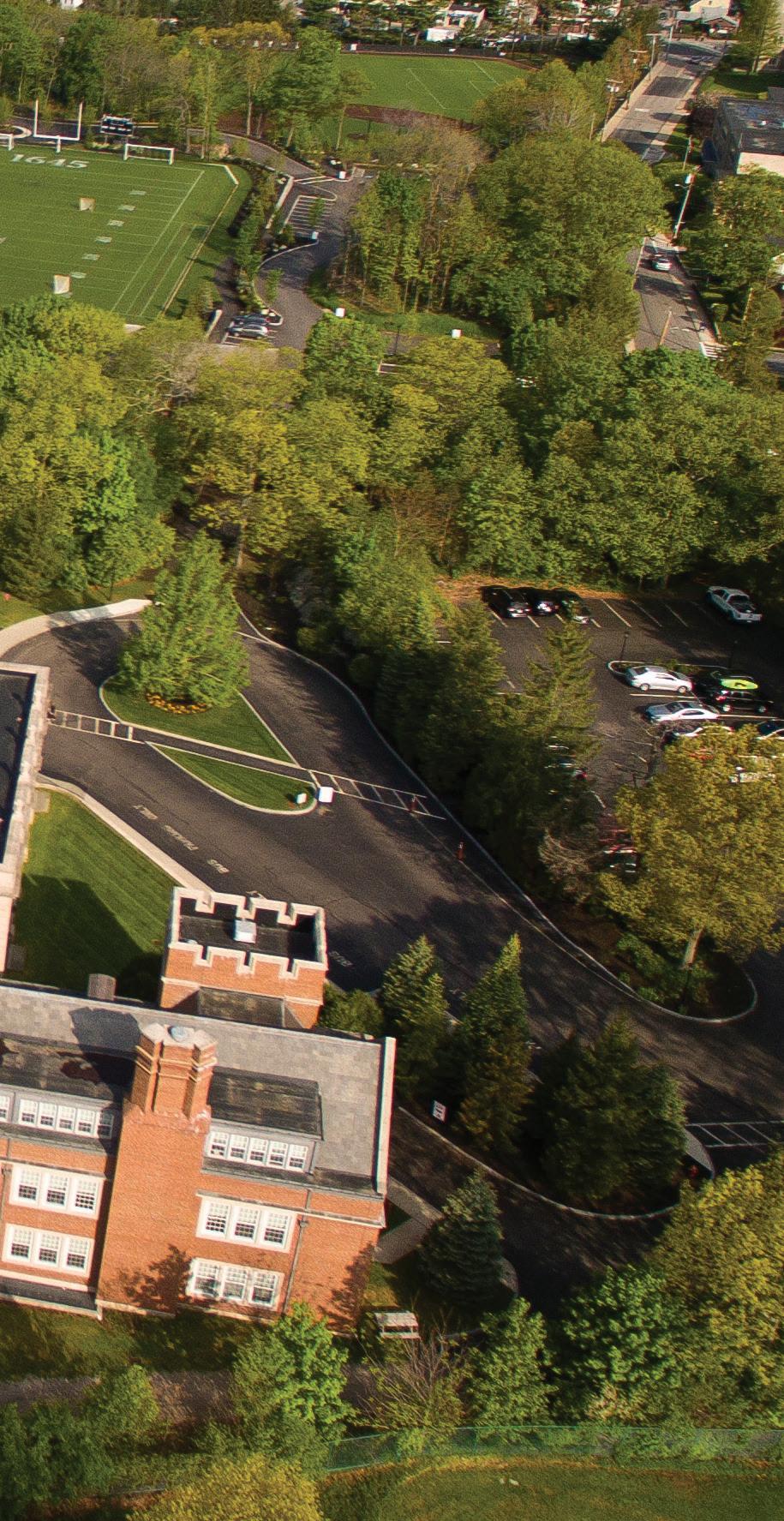
In accordance with the democratic tradition of The Roxbury Latin School, established by its founder, John Eliot, in 1645, the school has followed a policy of admitting qualified boys of varied backgrounds without regard to race or religion. Similarly it has followed this long-standing tradition in all other aspects of the administration of the school, including employment, qualified persons being employed without discrimination by reason of race, religion, sex, or gender identity. The school has recognized, moreover, that it will be unable to fulfill its long-standing goal of equal opportunity without affirmative action on its part. While remaining open to qualified boys, Roxbury Latin has therefore rededicated itself to its policy of seeking out qualified minority group students and making possible their attendance. The school similarly seeks qualified minority and female employees.
contents
The Roxbury Latin School 4
Purposes and Goals 6
Ideals and Standards 6
Guidance System and Support 9
The Academic Program 12
The Arts 14
Classical Language and Civilization 18
English 22
Modern Languages 27
History 31
Information Services 40
Mathematics 42
Science 46
Tutorials 54
Independent Senior Projects 54
Hall Program 56
Beyond the Classroom 60
Activities 60
Community Service 65
Travel 66
Athletics 68
Admission 72
Parent Admission Representatives 73
Tuition and Financial Aid 78
The Classes 79
The Faculty and Administration 84
The Trustees 87
Copyright © 2023 The Trustees of The Roxbury Latin School. Photography: Gretchen Ertl, Marcus Miller, Mike Pojman, Adam Richins, and Evan Scales.

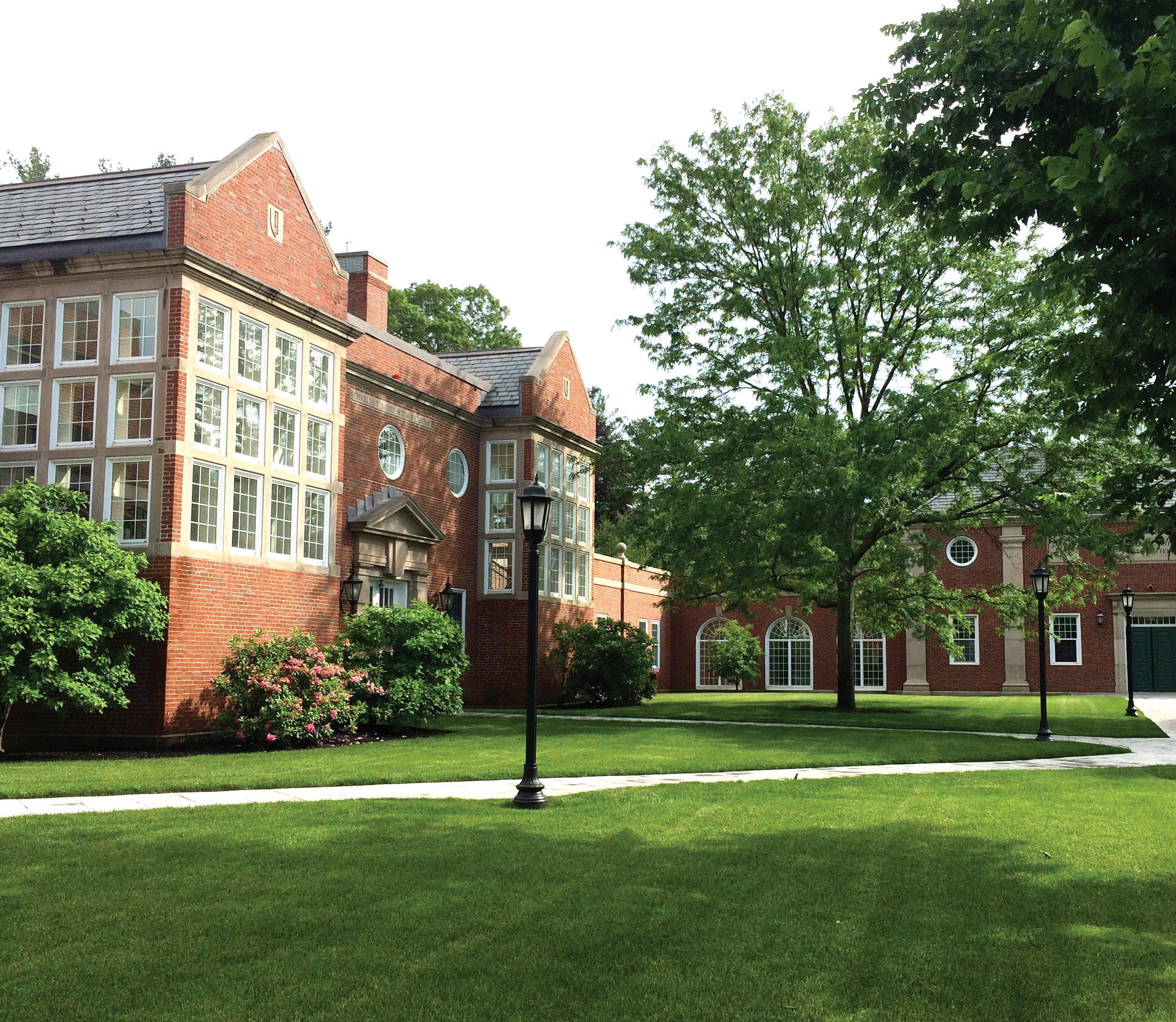
4 | The Roxbury Latin School Catalogue 2023-2024

The Roxbury Latin School is the oldest school in continuous existence in North America. Founded by John Eliot in 1645, in the reign of King Charles the First, the school today seeks to offer young men the finest secondary education possible.
Roxbury Latin serves about 310 boys in grades 7-12. It seeks bright and promising students of various backgrounds from all segments of the greater Boston community. The school’s 117acre campus is located in the southwestern part of the city of Boston, in West Roxbury, between Chestnut Hill and Dedham. It is accessible by public transportation.
Roxbury Latin’s endowments and the generosity of its alumni, parents, and friends enable the school to maintain a distinguished faculty, to charge a relatively low tuition, and to admit and enroll boys without regard to their families’ ability to pay. The opportunities afforded by the school are therefore available to a uniquely diverse student body.
5
Purposes and Goals
The school’s founders directed the schoolmaster to “use his best skill and endeavors, both by precept and example, to instruct [students] in all scholastical, moral, and theological discipline.” The School remains committed to a comprehensive philosophy of education: it seeks to help a student grow and develop not just academically but morally, aesthetically, physically, and socially. One of the school’s foremost commitments is to the development of intellectual excellence. By means of a demanding academic program, traditionally structured in the lower grades and increasingly flexible at the upper levels, Roxbury Latin seeks to instill in its students a capacity for rigorous analysis, disciplined reflection, and lucid expression. We hope our students will come to experience the excitement and joy that result from hard and deep thinking. Since virtually all our graduates go on to college, Roxbury Latin seeks to enable its students to take advantage of the most demanding university curricula.
Our principal concern, however, is the end toward which a boy uses his intellectual training. We care, most of all, what kind of person a boy is. The school’s founder, The Reverend John Eliot, regarded by Cotton Mather as “first among Puritan divines,” stated that the school’s objective was to “fit [students] for public service both in Church and Commonwealth.” Our modern goal is that our graduates will go on to lead and serve.
The school seeks today to reaffirm the standards fundamental to its Judeo-Christian heritage: honesty, simplicity, humility, respect and concern for others; and it tries to practice these values in its life as a community.
The school also hopes to provide an environment in which a student will become aesthetically aware, and in which he will have the opportunity, through experiences in the arts and elsewhere, to express himself creatively.
Roxbury Latin adheres to the classical precept mens sana in corpore sano. We do not expect all boys to be good athletes, but we do want them to be physically fit and to experience the cooperation and competition of organized sports.
Ideals and Standards
We want our students to be strong, independent individuals, and we hope they will learn to enjoy solitude and to use it resourcefully. But our students also live within communities such as their families and school. We want them to be able to function effectively in such communities, and we help them to learn to get along with others and to practice courtesy and cooperation. Above all, we want our students to become men of character: knowing right from wrong, having the courage to stand—alone if necessary—for what they believe is right, and willing to use their influence for the good of others. Our fervent hope, then, and the goal of our endeavors within and beyond the classroom, is that our graduates will be men of integrity and conviction who will do something great with their lives.
6 | The Roxbury Latin School Catalogue 2023-2024
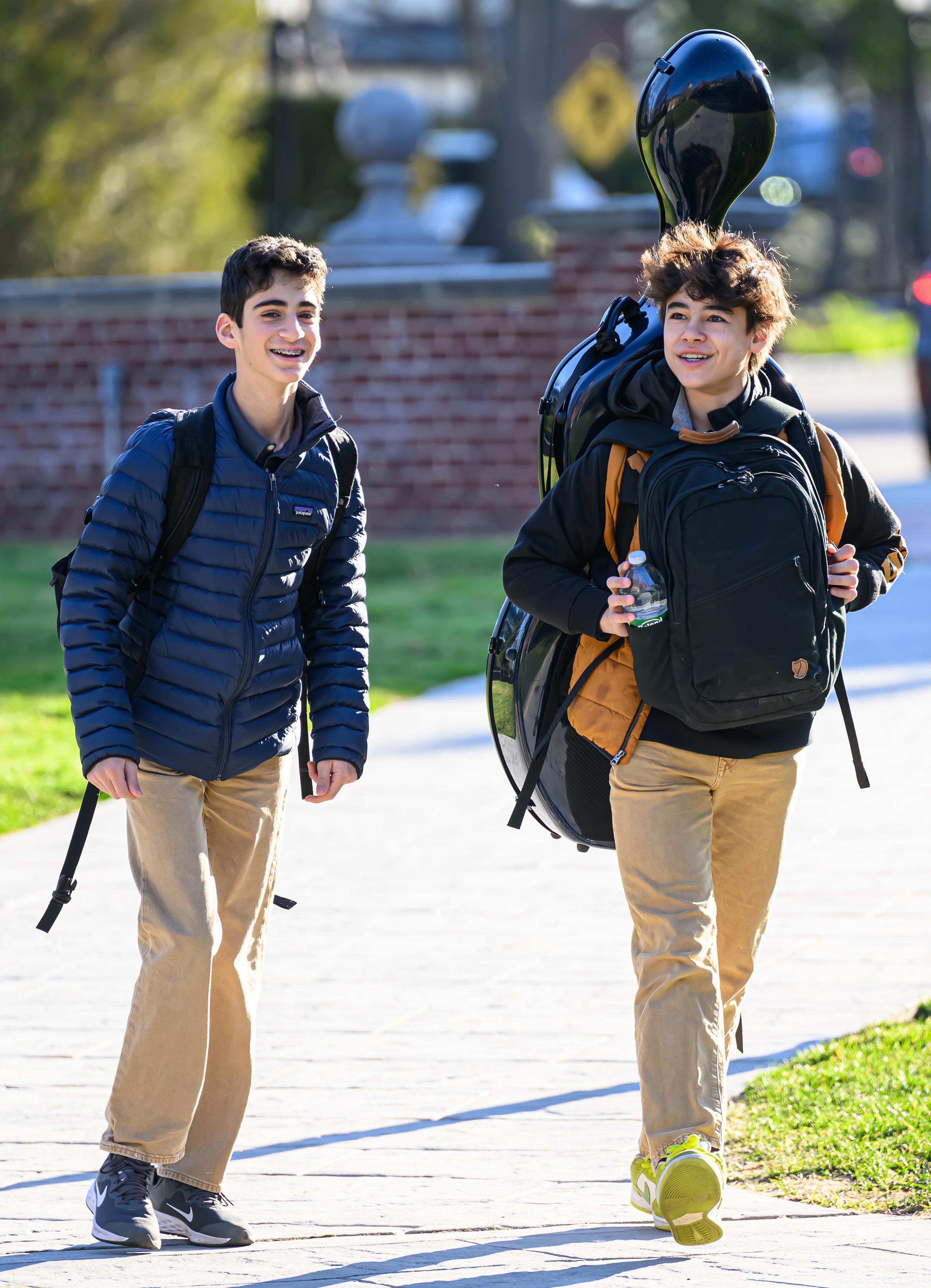
To achieve these aims, the school sets forth clear standards. The preface to the school’s Handbook outlines the moral foundation upon which the Roxbury Latin community is built: Fundamental Standards. People cannot live and work together unless they agree on certain basic standards. The Roxbury Latin School is a community. To remain a member of the school, a person must agree to abide by certain fundamental principles:
1. Honesty is expected in all dealings.
2. Members and guests of this community are to be accorded respect and courtesy at all times.
3. Diligent use of one’s talents is an expected commitment in all school endeavors.
4. Private and public property are to be treated with care and respect for the rights of others.
5. School appointments are firm obligations.
While the school’s standards are primarily applicable to the conduct of students while they are at school or participating in school-sponsored activities, the school expects students to live by these standards at all times.
Further Expectations. The standards set out above are lowest-common-denominator standards. While society as a whole has not been able to reach consensus about its precepts, one of the strengths—and challenges—of an independent school such as ours is that we are able to aspire to laudable values. In establishing school standards we do not seek to reach a social norm; rather we seek to create a school community that aspires to the highest ideals:
1. Commitment to something more than one’s own self, including involvement in the life and activities of the school community.
2. Willingness to put the best interests of the community ahead of one’s own.
3. Courage to face derision in standing for what is highest and best in human life and society.
A boy’s presence in the school signifies his acceptance of the standards and procedures set forth in the Parent and Student Handbook. His failure to abide by these standards and procedures can result in disciplinary action, including dismissal. In enrolling or re-enrolling their sons each year, parents sign a statement expressing their willingness fully to abide by its procedures as set forth in the Parent and Student Handbook. The school reserves the right to terminate its association with a boy if, in its considered judgment, the boy’s association with the school is no longer desirable for him or for the school. In fact, however, serious disciplinary problems at Roxbury Latin are rare.
8 | The Roxbury Latin School Catalogue 2023-2024
Faculty Advisors and Assessments
Perhaps the school’s most distinctive feature is its advisor program. The school promises each boy will be known and loved and the advisor tradition most effectively ensures this laudable goal. In the school’s formal guidance system, every student has an official faculty advisor. Younger boys and boys new to the school are either assigned an advisor or choose from a list of their teachers and coaches. Older boys express their preferences from among any of the faculty. Every effort is made to honor their preferences when advisors are assigned. Students are invested in the special relationship between advisors and advisees and bear a large share of the responsibility for making it work.
The faculty advisor’s role is pastoral. The advisor seeks to understand the total life-picture of his/her advisee: the boy’s goals and values, his home and family life, his relationships with others in the school community, his commitment to and involvement in the curricular and extracurricular life of the School. The advisor listens, counsels, and encourages and even rebukes in appropriate doses. Some advisor/advisee meetings are formally arranged and set; others are casual and informal. Typically, an individual advisor/advisee meeting takes place every week. In November, an advisor meets with each advisee’s parents in order to discuss a boy’s progress and to arrive at common expectations. Occasionally, older advisees are included in these conferences. In May, every advisor writes an all-encompassing letter to each advisee’s parents. This letter covers every aspect of the boy’s life at school. Advisors typically read these letters to their advisees—and discuss them with them— before sending them home. Parents are encouraged to respond, if they wish, and sometimes a letter will result in a conference with the parents.
Boys receive grade reports four times each year, in October (comprehensive comments accompany these grades), December, March, and June. At the end of these four marking periods, the faculty meets for an entire day to discuss boys in every class. Teachers sometimes, at this point, send home a written comment on a boy who has improved; teachers always write such a comment for a student in academic difficulty. If the faculty has serious overall academic or other concerns about a boy, these concerns will be expressed in a letter to the boy’s parents following the meeting. In the case of serious personal, academic, or disciplinary problems, a parent conference may be convened. Parents may send an email to, write to, or call any member of the faculty whenever they find such direct communication useful, but contact with a boy’s advisor is usually the first step.
Each spring, advisors of boys in Classes IV, III, and II discuss with each of their advisees his academic program for the coming years. In these discussions, a boy specifically selects his courses for the upcoming year. Both advisor and parents must approve a boy’s selection of courses.
9 The Formal Guidance System and Support
Health and Wellness
Boys have important resources—both in people and program—in addition to their faculty advisors: The school offers all-school programs, the purpose of which is to keep both students and faculty current on some of the fundamental issues facing adolescents today, such as alcohol and drug abuse, stress and depression, and forging healthy relationships.
The Class VI and Class V Health and Wellness program, Living Healthy Lives, endeavors to help boys develop sound and healthy bodies, minds, and habits. The first year of the course introduces students to such topics as resiliency; stress management; drug, alcohol, and tobacco use and abuse; puberty and physical development; the importance of adequate sleep; nutrition; and classes relating to physical fitness (mindfulness and yoga, weight training, as well as fun recreational games). The second year of the course is designed to help students better understand their personal and physical changes during adolescence. Emphasis is placed on providing information that will help students define their goals and values, and which will prepare them for the decisions they will face. Time is spent studying and discussing issues of human sexuality, alcohol and drug use and abuse, physical and mental health, different forms of discrimination, and other issues central to the development of the whole person. The school has entered into partnerships with Ivy Child International, Children’s Hospital, and other local health professionals to engage boys in a fuller investigation of issues of mental health, such as stress and depression. Living Healthy Lives offers an experience that is engaging, informative, and fun, and that exposes our boys to simple and effective ways to recognize, and—most important—to cope with busy lives, stress, and school and societal pressure. The course aims to educate boys about, and help them establish, the healthy habits that will enable them to make good choices throughout their lives. Boys in Classes IV through I are also the beneficiaries of schoolwide programs about health and wellness; recent topics include healthy relationships, sleep health, drug and alcohol addiction, masculinity, gender identity, nutrition, and social media use.
A boy may turn to any adult, not just his advisor, for advice or counsel. The Headmaster, Assistant Headmasters, and Dean of Students are especially well positioned to help him. If we believe a boy needs the help of a professional counselor, we refer the parents to our consulting psychologist who helps to arrange appropriate follow-up counseling. Boys in need of special academic help have the opportunity to meet regularly on campus with the school’s learning specialist. Both faculty members and older students (through our in-house tutoring program) are available to help students with their academic work during free periods, as well.
Informal Relationships
The structures above are designed as a “safety net” to ensure that at least minimal relationships are formed between the adult and adolescent members of the community. What we hope for—and what almost always happens—is that each boy will form close, informal relationships with a number of faculty members.
10 | The Roxbury Latin School Catalogue 2023-2024
Many of the school’s graduates speak of such friendships (which often persist well beyond a boy’s school days), along with relationships forged with classmates, as their most important and valuable experience at Roxbury Latin.
College Guidance
Roxbury Latin has always resisted defining itself as a “college preparatory school” since the school views its purpose in a far broader way: preparing boys for life. Part of preparing boys for life in this era, however, entails preparing them for college. The key first step (and perhaps the most important aspect) in the college search process begins with the boy embracing the Delphic admonition: “Know thyself.”
During the Class II year, the college counselors and the Headmaster meet with parents and boys—in separate groups—to discuss the admission process, followed by individual conferences with boys and counselors to review prospective colleges. The counselors also make themselves available for family meetings during the winter and spring of the Class II year. In addition to these meetings, a series of informal coffees for parents of seniors are offered during the fall. The counselors work closely with boys as they narrow their respective lists of colleges and provide insight and feedback on questions pertaining to the application and financial aid processes. Every facet of the college guidance program is geared toward helping individual students identify colleges that are great matches for them. Over the past five years, RL’s graduates have matriculated at the following colleges and universities:
American University (1)
Amherst College (2)
Assumption University (1)
Babson College (3)
Bates College (3)
Baylor University (1)
Belmont University (1)
Boston College (7)
Boston University (4)
Bowdoin College (5)
Brandeis University (2)
Brown University (18)
Bucknell University (1)
California Polytechnic State
University, SLO (1)
Case Western Reserve University (1)
Colby College (7)
Colgate University (1)
College of the Holy Cross (9)
College of William and Mary (1)
Columbia University (2)
Connecticut College (2)
Cornell University (3)
Dartmouth College (7)
Davidson College (1)
Duke University (1)
Elon University (1)
Emory University (1)
George Washington University (1)
Georgetown University (18)
Hamilton College (1)
Harvard College (38)
Howard University (2)
Johns Hopkins University (2)
Marquette University (1)
Middlebury College (3)
New York University (1)
Northeastern University (1)
Northwestern University (3)
Oberlin College (1)
Olin College of Engineering (1)
Princeton University (5)
Providence College (1)
Rensselaer Polytechnic Institute (1)
Roger Williams University (2)
Salve Regina University (1)
Santa Clara University (1)
Seattle University (1)
Skidmore College (1)
Southern Methodist University (1)
St. Lawrence University (1)
Stonehill College (1)
Syracuse University (2)
Trinity College (5)
Tufts University (14)
Tulane University (3)
Union College (4)
University of Arizona (1)
University of California, Los Angeles (1)
University of Chicago (4)
University of Massachusetts, Amherst (7)
University of Massachusetts, Boston (1)
University of Miami (1)
University of North Carolina, Wilmington (1)
University of Notre Dame (3)
University of Pennsylvania (3)
University of Rochester (1)
University of San Diego (2)
University of
Southern California (2)
University of Virginia (1)
University of Wisconsin (1)
Vanderbilt University (1)
Wake Forest University (3)
Washington University in St. Louis (2)
Wesleyan University (4)
Wheaton College (IL) (1)
Williams College (2)
Worcester Polytechnic Institute (2)
Yale University (8)
11
The Academic Program
For younger boys, Roxbury Latin emphasizes the basic skills in the major disciplines: the arts, English, history, classical and modern languages, computer science and technology, mathematics, science, and engineering. In the later years, after students have acquired fundamental skills, the academic program becomes increasingly flexible; boys may choose, from a variety of electives, those subjects which interest them most. The school also offers significant independent study opportunities both on- and off-campus.

12 | The Roxbury Latin School Catalogue 2023-2024
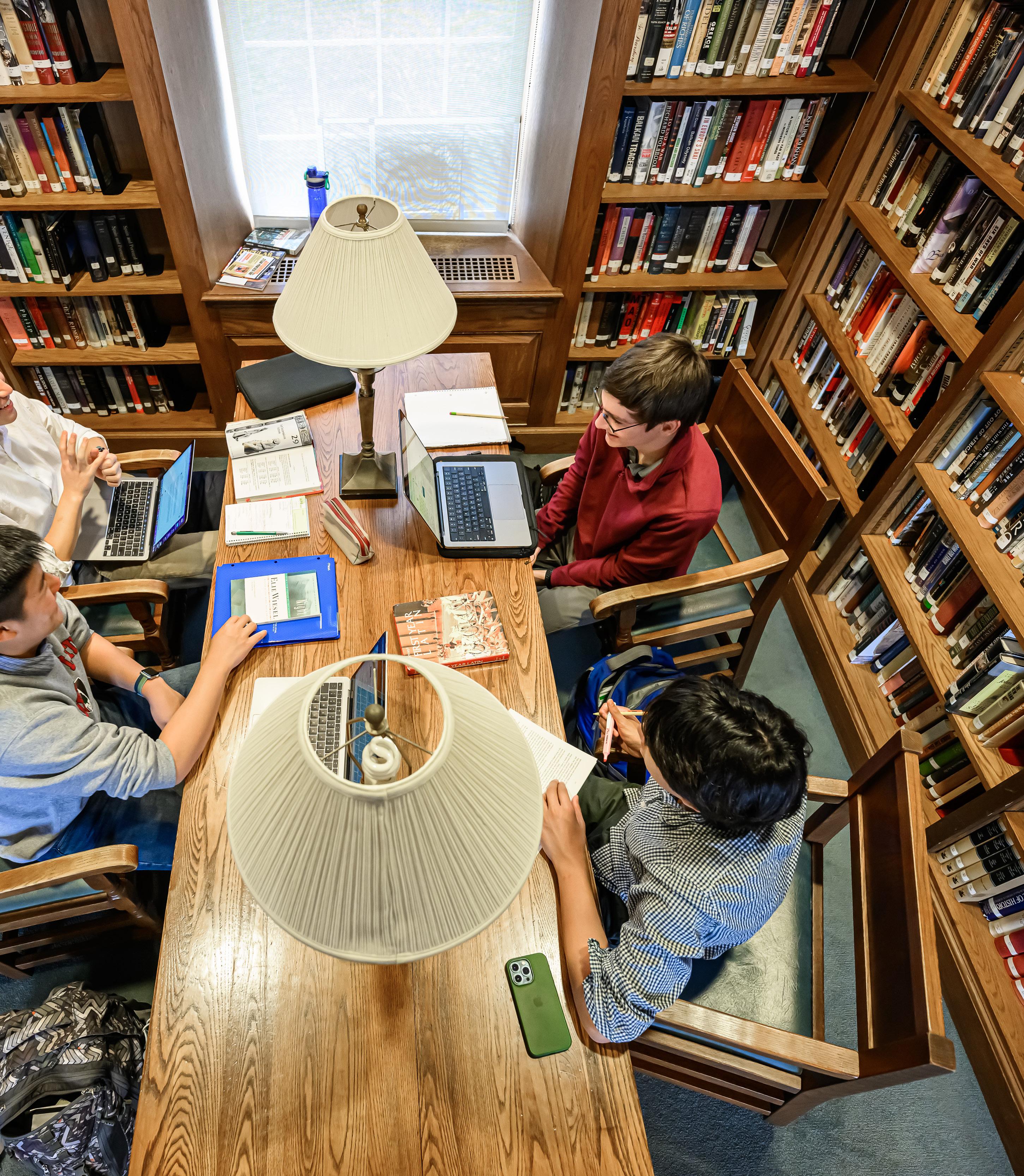
13
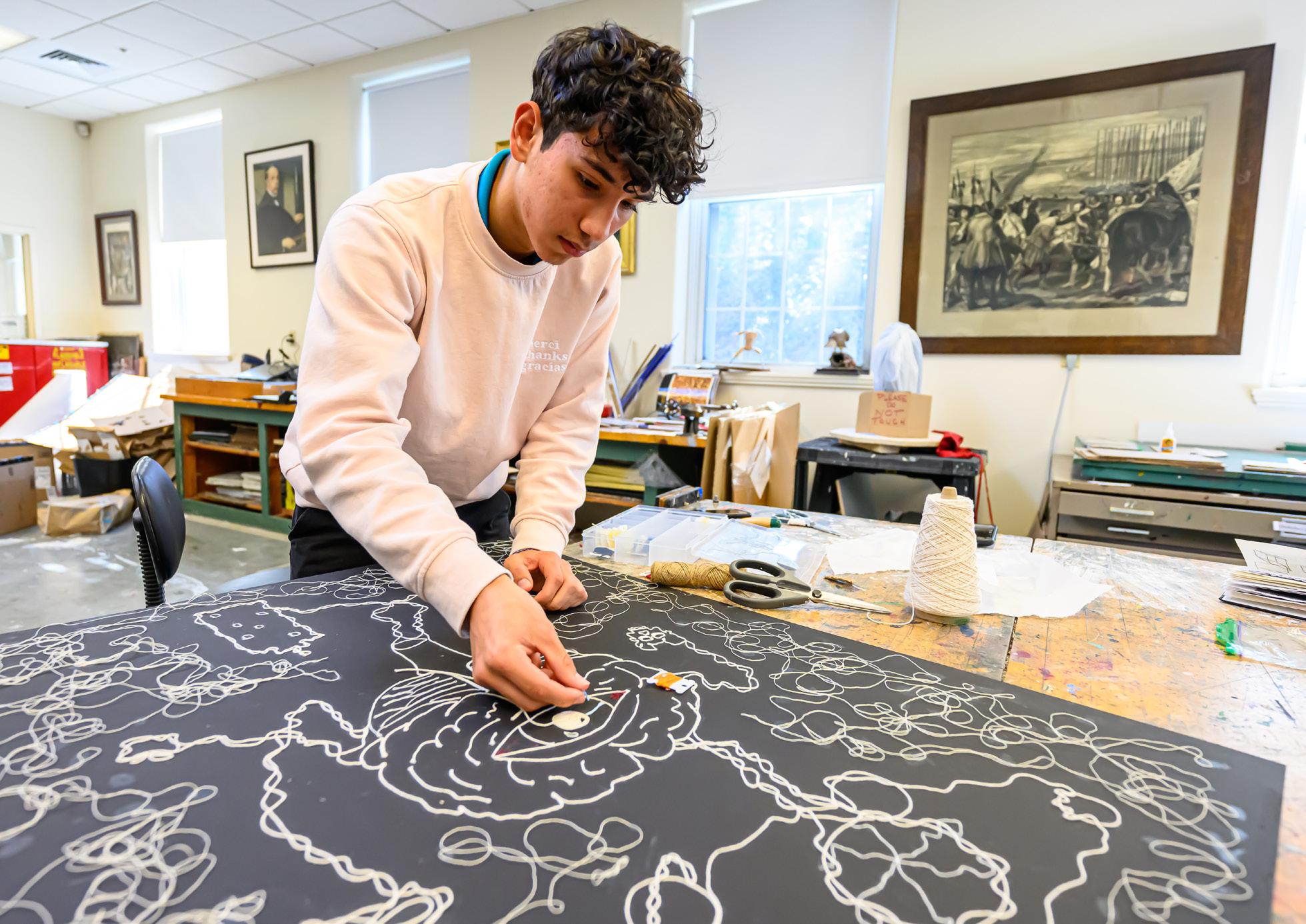
The Arts
The Arts program offers a rich texture of experiences—classes, concerts, plays, exhibits, and field trips—to deepen boys’ awareness of art, to nurture their appreciation of it, and to inspire their own creative impulses. Our goal is for students to experience the enrichment and delight that arise from the study of arts and from creative involvement and participation. Through hands-on individual and group endeavors, students develop the capacity to express themselves in a variety of physical, visual, and aural media. They develop facility with techniques and technologies both traditional and modern. Through instruction and discussion, they are challenged to sharpen their critical, analytical, and perceptual skills and to develop standards for appreciating and evaluating both the world immediately around them and the aesthetic achievements of eras past. The Robert P. and Salua J.A. Smith Arts Center and the Evans Choral Room provide the school with a multi-functional theater and excellent facilities for studio art and music. Digital equipment and computers are available for photography, video, and design. Professional artists appear regularly to share their expertise with the school community.
14 | The Roxbury Latin School Catalogue 2023-2024
Required courses in Classes VI through IV expose students to a variety of artistic disciplines. The first three years of the arts curriculum at Roxbury Latin introduce students to the manual, visual, and performing arts. Through three courses taken in rotation within each of the three years, boys are exposed to offerings in dance, theater, music, sculpture, architecture, drawing, painting, photography, and digital art. In the first year, seventh graders explore Digital Design, The Artistic Process, and Dance. Eighth graders take courses in Photography, Advanced Digital Design, and Drama. Finally, as ninth graders, students experience Architecture, Music, and Drawing and Painting. The common vocabulary of the arts is at the root of each rotation, with the school’s motto, Mortui Vivos Docent (“the dead teach the living”), as an underlying theme. In contemporary parlance, the term is “remix”: How do artists look at past works to then reimagine them in the present? Our hope is to instill an appreciation for and understanding of all art forms to allow each boy to become artistically competent—a confident creator, informed critic, and literate student excited by the arts, knowledgeable about them, and an informed advocate, as well. Such rich exposure will lead the boys to become life-long learners and lovers of art. In Class III boys choose two half-year electives from the following choices: Drama, Music, Watercolor, Woodworking, and Introduction to Technical Theater. Students in Classes II and I may choose full-credit courses in applied art and music.
Art
Introduction to Watercolor (one-semester, Class III elective). This course requires no prior experience with watercolor; the Class IV Visual Art course provides the necessary background. Watercolor is the oldest painting method and represents the fundamental nature of painting as we know it. The elusive nature of combining water and pigment makes it an alluring and challenging medium. Students develop an understanding of the medium and an appreciation of its history as an artistic expression. They are challenged to balance their desire to control the medium while taking advantage of the fluid and often unpredictable nature of water. The course teaches formal concepts of design and composition as well as dry- and wet-brush techniques to help students
express themselves artistically and competently. Students are guided through the creation of several paintings, exploring subjects of landscape and still life. Materials are provided.
Introduction to Technical Theater (one-semester, Class III elective). Behind every great actor is a group of stagehands backstage wearing all black making sure everything runs smoothly. In this course, students will explore all aspects of technical theater: lighting, sound, set design, and more! This course provides a look into the moving parts of theater and how a successful show is created from start to finish. Students will be pushed to create real-world projects utilizing theater equipment and design products. While actors step into the spotlight, “techies” create the entire world around them. The course will require
15
some light reading assignments, but most of the work will be project-based and in-class.
Woodworking (one-semester, Class III elective). Woodworking is a craft that produces pieces both beautiful and functional, requiring an eye for design as well as a consideration of structure and engineering. As woodworking success depends upon a knowledge and understanding of the natural properties of the medium, this elective focuses on both the theory and practice of woodcraft. Students are introduced to traditional tools and techniques as well as machine woodworking practices. With opportunities to build guided projects, students are encouraged to customize their pieces based on their own skills and creativity. The course covers the history and evolution of furniture design with a focus on American styles. No prior knowledge of woodworking is required. Students, however, are expected to practice and develop proper woodworking techniques diligently so as to use tools safely and effectively.
Applied Art is a full-year elective open to boys in Classes I and II. Applied Art is a studio-based art course, emphasizing the discovery and development of the artist. Students will utilize the “Studio Habits of Mind” philosophy to expand and evolve their practice while deepening their critical eye. Through critiques, the study of art history, and art show installations, students broaden their artistic thinking. This course allows freedom of choice in medium, subject matter, and experimentation. Students can expect to be continually creating and improving their art.
Topics in Art is a yearlong, half-credit course open to boys in Class I, with approval from a member of the Arts Department. Topics in Art is an independently-driven study in a specific area of artistic passion. The topic is chosen by the student and then worked on throughout the year with the appropriate faculty member. Though not an exhaustive list, potential topics include woodworking, digital arts, studio arts, music composition, production or performance, technical theater arts, and theater arts. This course is designed for boys of varying experience with a desire to advance in a particular area of the arts; students are encouraged, however, to take art electives in their junior year in preparation. A student may take Topics in Art in addition to his five major courses.
Dramatics
Drama (one-semester, Class III elective) is a hands-on class in the elements of theatrical performance. The course begins with simple circle exercises, improvisation games, status scenes, and vocal work using the Prologue from Shakespeare’s Henry V or other texts from Shakespeare. This is followed with “story theater” exercises focusing on character and “given circumstances,” in particular narratives based on the familiar styles of crime dramas and dream narratives. The first performance project involves a monologue which all students take part in choosing, rehearsing, and performing. The monologues are drawn from a variety of contemporary, classic, or Shakespearean plays. These individual projects are followed by an introduction to stage combat in which students
16 | The Roxbury Latin School Catalogue 2023-2024
prepare scenes with brief dialogue and then extend them with carefully choreographed sequences of stage combat. Two types of stage combat have been offered over the years: rapier and dagger (using dowels in place of authentic weapons), and hand-to-hand combat. The course concludes with the rehearsal and performance of two- and threeperson scenes, and if time allows, scenes may be performed before a small audience of classmates.
Music
Music Appreciation (one-semester, Class III
elective) investigates a variety of ways in which music has an impact on our lives. Students begin by researching an artist of their choice in preparation for in-class presentations. The relationship between music and images is explored in units on music videos and movie soundtracks. The course also provides students at all levels of musical ability with opportunities to compose and perform their own
works, including a unit on songwriting, with an emphasis on lyrics, melodies, chord progressions, and beats.
AP Music Theory is an elective course in composition, analysis, and history offered to Classes I and II. Harmony and counterpoint, the principal elements of Western music theory, are explored in depth, and also placed within the context of the development of Western musical thought from the Middle Ages to the present day.
Individual as well as group projects are aimed at exploring the relationships among music theory, composition, and performance. To this end, students compose a number of pieces, including a major work at the end of the year. In addition to forming sound analytical and compositional techniques, students are expected to develop keen aural perception, sight singing, and score reading skills. They are prepared to take the AP Music Theory Examination in May.
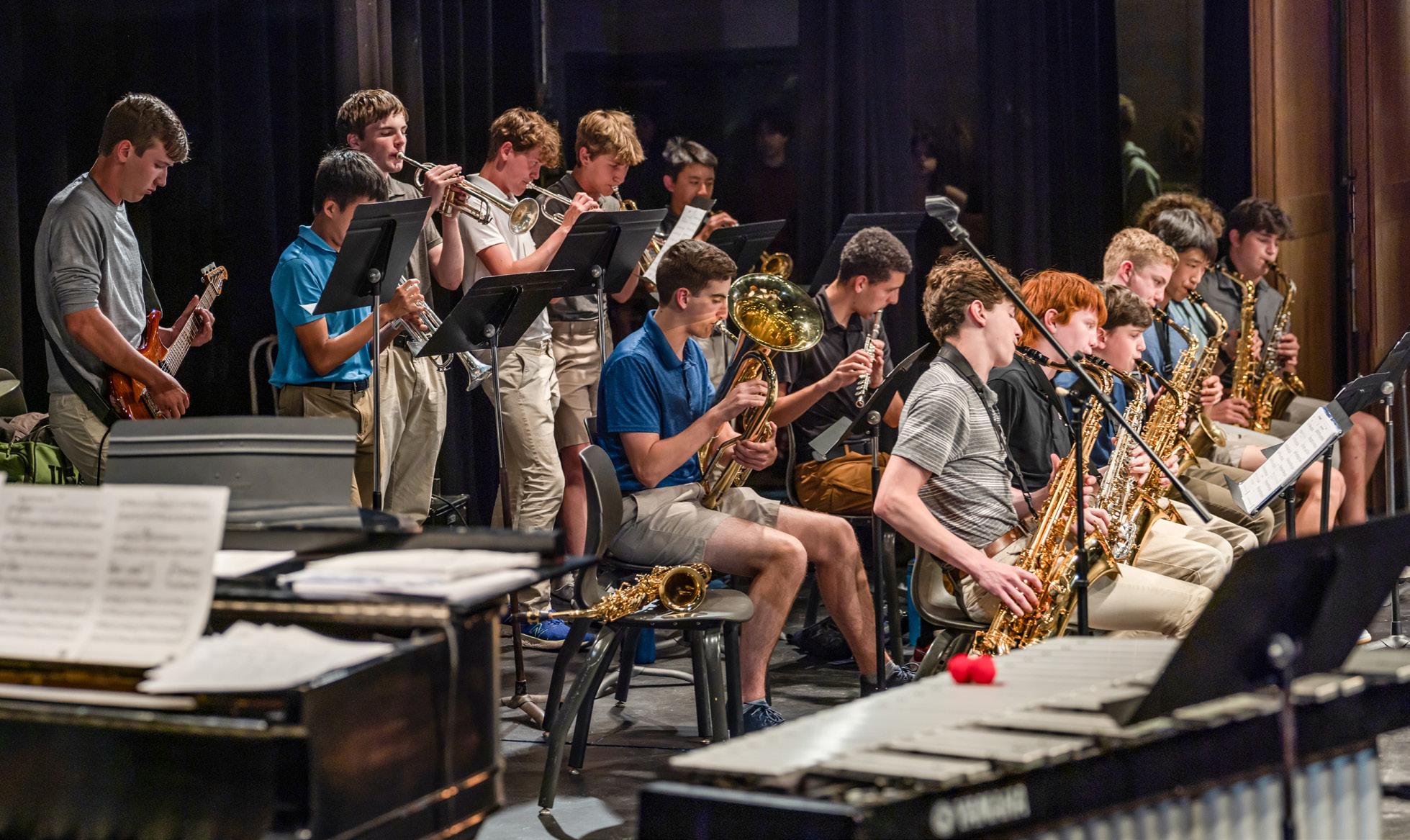
We
believe that the precision and discipline students must acquire in order to master Latin enables them to read English more analytically and critically and to write it more concisely and fluently.
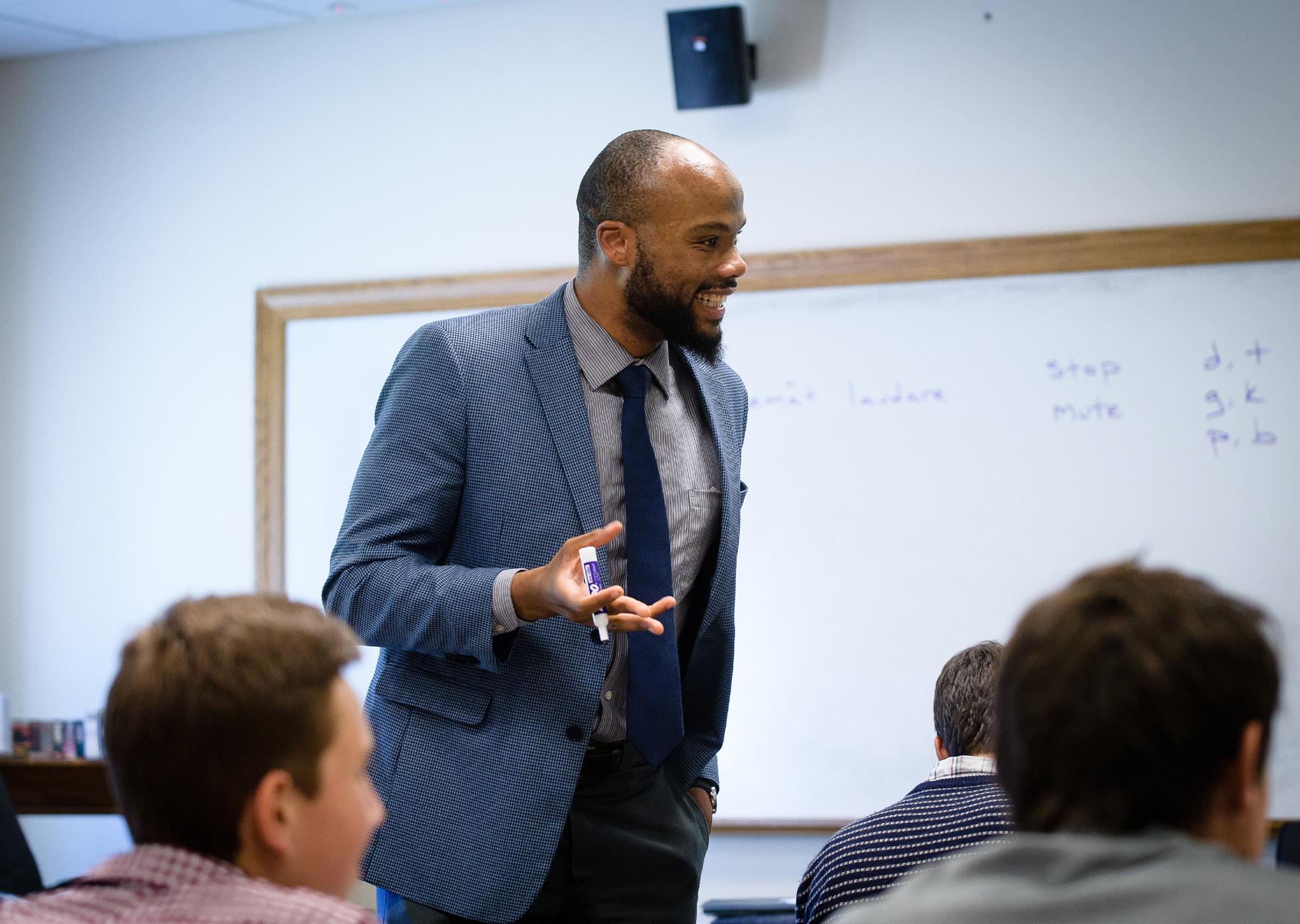
Classical Language and Civilization
The principal aim of the Classics program is to enable a student to read in Greek and Latin what the great authors of the classical period wrote. These seminal works—universally admired for over 2000 years—give students a perspective on their own lives and times by addressing the timeless questions: Does human existence have meaning and value? Why and how is life both comic and tragic? What does it mean to be human? Why and how are humans both selfish and altruistic? Is there anything worth dying—or living—for? The authors of classical antiquity have endured because of the way they frame these questions and because of the answers they offer to them.
Students studying a language that is over 2000 years old quickly realize that certain human insights and values abide through all the ages. All humans must grapple with the reality of death; all must find something that gives their lives meaning. Greed and selfishness exist, even thrive—some would say—in every generation, but it is courage and self-sacrifice that ultimately change and win the hearts and minds of others. We believe that students are better prepared for life by joining with Vergil and Homer, in their own tongues, as these authors wrestle with life’s difficult, but defining, questions.
The school requires three years of Latin and, from the first day, students begin profiting from
18 | The Roxbury Latin School Catalogue 2023-2024
the study of Latin vocabulary. Since over half of English words derive from Latin roots, students improve their English vocabulary as they learn Latin. Recent studies show that Latin students consistently scored higher on the verbal section of the SAT than students studying any other foreign language. Likewise, students often come to understand and learn English grammar for the first time when they come to grips with Latin grammar. We believe that the precision and discipline students must acquire in order to master Latin enable them to read English more analytically and critically and to write it more concisely and fluently. Latin is the mother not only of English but also of the Romance languages. It is, therefore, a natural springboard to the acquisition of these languages.
The main reason we want a boy to learn Latin, however, is so that he can read the great Roman authors in their own tongue. No English translation can convey the succinct, deliberate, and even ruthless excitement of Caesar, the inexorable logic and rhetorical cadence of Cicero, or the spiritual grandeur and gripping drama of Vergil. The past few years, Classics masters have sponsored trips to Rome in order to experience in situ the language, history, and art studied so fervently.
The rationale for studying Greek is the same as that for studying Latin. Arguably, Greek is even richer in vocabulary and nuance than Latin. And, of course, the Greek authors were giants to the Romans before they were giants to us. Because our boys begin Greek when they are older (in Class III), they have had three years of Latin and are thus at home in a highly inflected language. They can progress quickly to the great authors of Greece: much of the second year of Greek is devoted to The Republic (Book I) and other Platonic writings, and third year students study The Iliad of Homer. Occasionally, trips are sponsored to Italy and Greece. One of the great annual schoolwide celebrations of declaimed Latin and Greek is Exelauno Day.
Latin
Latin 1, the Class VI course, focuses on having students understand the fundamentals of the Latin language. English and Latin grammatical usages are extensively compared as mutual reinforcements. First Year Latin, by Jenney, a traditional text, is thoroughly covered. With emphasis on English derivations from Latin roots, the course stresses forms, syntax, and vocabulary. Extensive comparison of English and Latin grammar reinforces the understanding
of the mechanics of both languages. The course also attempts to recreate the Romans as real people by means of class discussion and reports assigned on topics of individual interest.
Readings from Ancient Rome: An Introductory History and Classical Mythology & More supplement the basic text.
Latin 2, the Class V course, strives for the mastery of fundamentals. Jenney, First Year Latin is completed. When the necessary forms, vocabulary, and grammar are mastered,
19
the course turns to Latin readings. Review of grammar and the study of English derivatives from Latin roots continue. Ancient Rome: An Introductory History and Classical Mythology & More are further utilized.
Latin 3, the Class IV course, assumes a familiarity with the fundamentals of grammar and concentrates on the literary contributions of a range of Roman authors. The text is Jenney, Second Year Latin. Authors read include Caesar, Livy, Ovid, and Pliny. Required vocabulary is drawn from the College Entrance Examination Board Word List, Levels I and II. John Colby, Review Latin Grammar, is used for weekly composition exercises.
Latin 4, a Class III elective, is a literature course (with appropriate grammar review), emphasizing Latin’s “translation defying” beauty, intricacy, and majesty of expression (both in prose and poetry), as found in a varied group of authors including Caesar, Cicero, Pliny, and Sallust. The course stresses the learning of literary devices, the analysis of “real” Latin literature, and the appreciation of Latin in its various manifestations. The primary texts are Cicero’s First Catilinarian Oration (Steadman), Sallust’s Bellum Catilanae (Steadman), and College Caesar (Steadman). Vergil, Aeneid II (edited by Pharr), the classicus locus for the Trojan Horse story and the centerpiece of the spring semester, serves both as a vehicle for literary analysis and as the quintessential readable tale. Required vocabulary is drawn from the College Entrance Examination Board Word List, Levels I-IV.
AP Latin 5, an elective offered to Class II boys, follows the Advanced Placement Syllabus of Virgil’s Aeneid and Caesar’s Gallic War. The texts are College Caesar (Steadman) and Virgil’s Aeneid (edited by Pharr). Selections from Books I, II, IV, and VI from the Aeneid and Chapters I, IV, V, and VI from the Gallic War are read in order to enhance the students’ appreciation of the history of Epic as a literary form and the theme of statesmanship in the first century B.C. Students are required to take the Advanced Placement Examination in May, which stresses familiarity with the use of imagery and metrical effects, as well as character analysis and the recognition of particular motifs and general themes. In addition to the Aeneid and Gallic War the course explores related works such as The Epic of Gilgamesh, The Iliad, The Odyssey, and Dune to reinforce the concept of the hero as an enduring motif in Classical and World literature.
The fall course of Latin 6, an elective offered to Class I students, focuses on the topic of satire primarily through a close reading of The Satyricon of Petronius. The course also samples other examples of satire ranging from Jonathan Swift to The Three Stooges, from Jon Stewart to Saturday Night Live. In the spring, selections from Rome’s most emotional lyric poet, Catullus, are read from Garrison, The Student’s Catullus.
Greek
Greek 1 aims not only at gaining control of the language but also at comprehending
20 | The Roxbury Latin School Catalogue 2023-2024
some of the ideas of the Hellenistic world which have decisively contributed to Western Civilization. The text is Alpha to Omega (Groton), supplemented by materials prepared by the department. Mastery of form recognition, vocabulary (including English derivations), and grammar is stressed, with major emphasis placed on reading and interpreting original Greek.
After a review of the basic grammar and paradigms, Greek 2 spends the remainder of the fall term finishing Alpha to Omega and crossing the bridge to original Greek with materials prepared by the department. Reading from the works of Aesop and Xenophon is the focus of the winter term. In the spring, the major topic
is Socrates (man, teacher, philosopher), as depicted in Aristophanes’ Clouds , Xenophon’s Memorabilia , and Plato’s Republic (Book I).
In Greek 3 , the fall term is devoted to a study of Homer’s Iliad . Emphasis is placed on understanding the history of the epic, the heroic image in literature, and the values of Mycenaean society. The text is Benner, Selections from the Iliad . In the spring semester, Aristophanes’ Frogs serves as the basis for a study of politics in late 5th-century Athens. Dependent upon student interest, the spring course also includes readings from Greek tragedy: either Euripides, Medea (edited by Elliott) or Sophocles, Antigone (edited by Brown).
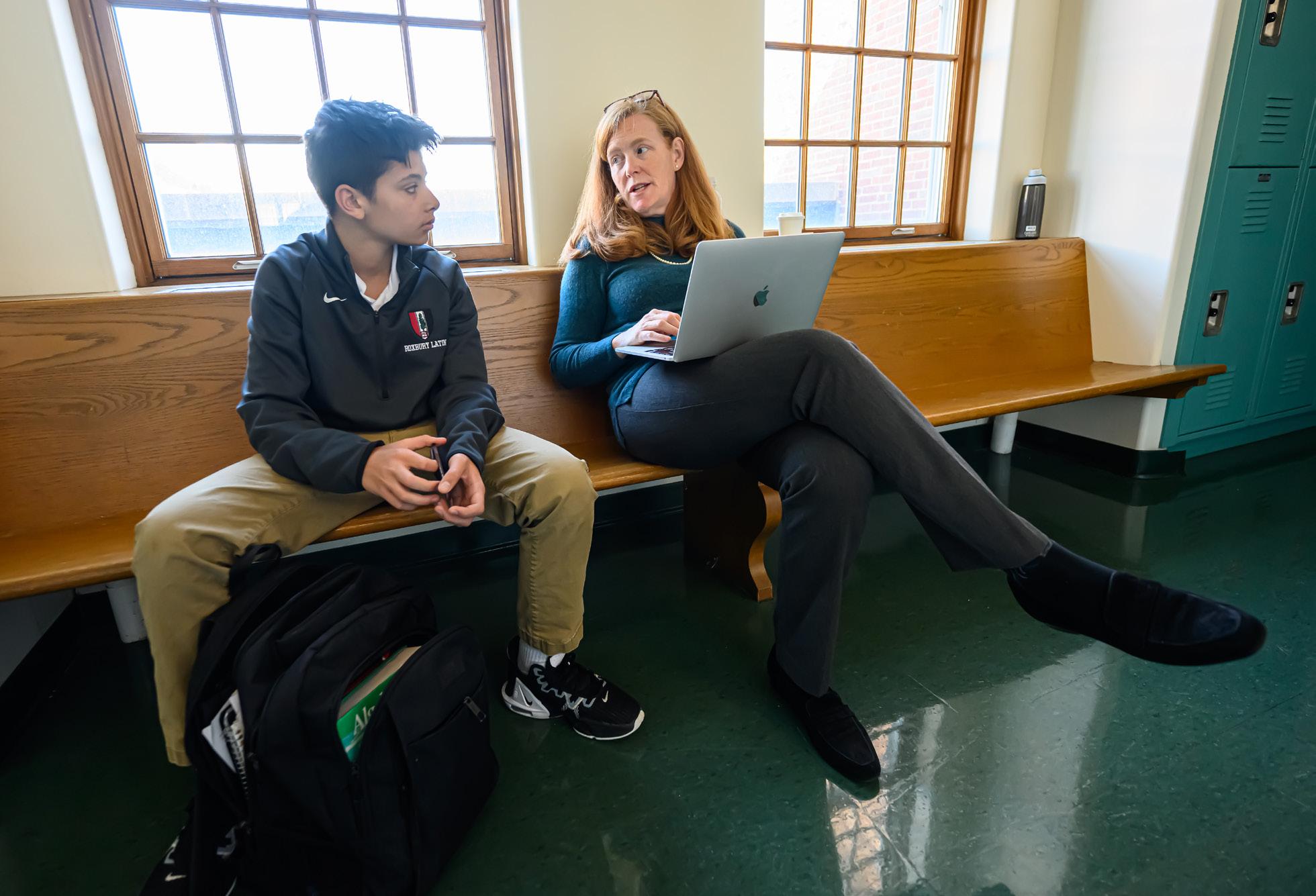
We seek to foster a respect for language and, in time, a love of it—its capacity to define and describe and transform experience, its power to make the strange familiar and comprehensible, the commonplace mysterious and beautiful.
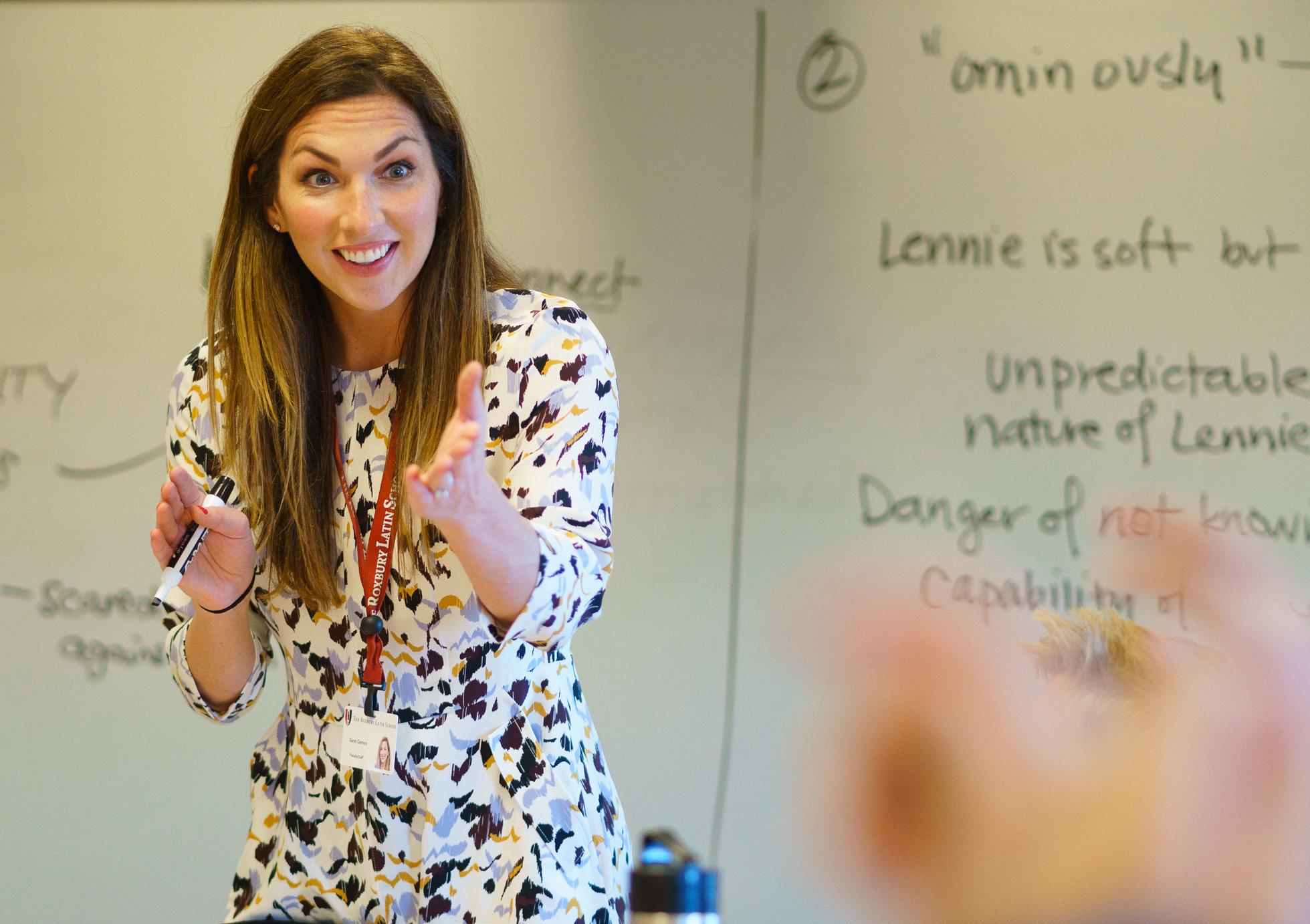
English
The teaching of English at Roxbury Latin is founded upon the classical concept of the “examined life”—upon the belief that a lifelong commitment to intellectual, aesthetic, and moral exploration and growth gives existence meaning and character. The English program provides a sequence of study designed to develop skills and attitudes essential to such a commitment: the ability to read and observe with discrimination, sensitivity, and pleasure; the ability to communicate information and ideas clearly, persuasively, and gracefully; the inclination to temper reason with understanding, to balance intellectual rigor and compassionate humanity; the urge to pursue the meaning of life but the perspective to recognize and relish life’s complexity and ambiguity.
Throughout the program, assignments and classroom activities encourage disciplined, thoughtful approaches to reading, writing, listening, and speaking. Work in language emphasizes the development of a rich, flexible vocabulary and a confident grasp of mature syntax; it also seeks to foster a respect for language and, in time, a love of it—its capacity to define and describe and transform experience, its power to make the strange familiar and comprehensible, the commonplace mysterious
22 | The Roxbury Latin School Catalogue 2023-2024
and beautiful. Work in composition aims to build a concern for clarity, precision, and style. While the program emphasizes the mastery of conventional organizational patterns for analytical and persuasive writing, it encourages students to recognize the creativity inherent in the best critical writing. It also provides opportunities for first-hand experiments in poetry, fiction, and creative nonfiction—for a more personal rendering of individual experiences and ideas—opportunities that permit students to feel within themselves the interplay of experience, imagination, and language that animates the great literature they study. That study of literature stresses the close observation of specific words and details and the development of an actively questioning approach. At the same time, it encourages students to pursue an equally active personal, empathic involvement with literary characters and events. Through close study of a relatively few classic and modern works, students address increasingly subtle moral and philosophical questions, confront diverse and often ambiguous conclusions about the nature and meaning of human existence, and, ideally, come to a passionate appreciation of the power of literature to expand, deepen, and illuminate “real” life—to lift us beyond our daily lives toward some transcendent vision of “the good, the true, and the beautiful.”
Class VI English places major emphasis on the mastery of fundamental verbal and study skills: sentence and paragraph construction, vocabulary development, concise summarizing, precise reading, systematic thinking, and disciplined listening. Analytical work in grammar, the first stage of a two-year program, introduces parts of speech, the components of phrases and clauses, and the basic patterns of English sentences. Instruction in composition focuses primarily on paragraph organization and development—on precise topic sentences, relevant supporting details, and effective concluding statements—but students have opportunities, as well, to experiment with poetry, fiction, and personal reflection. Assigned readings represent a variety of literary situations, from the realistic to the fantastic, and a variety of human behavior, from the heroic to the ridiculous.
Although students do encounter important critical concepts and terms, the work in literature seeks less to introduce techniques of literary criticism than to foster precise observation, accurate recall, and simple vicarious appreciation of human behavior imaginatively recreated. Unifying themes include friendship, courage, justice, and service to others. The following books are studied in the course: Lee et al., Grammar for Writing; Angelou, I Know Why the Caged Bird Sings; Gibson, The Miracle Worker; Lee, To Kill a Mockingbird; Shakespeare, A Midsummer Night’s Dream.
Class V English provides continued instruction and practice in verbal and analytical skills. Units in grammar review principles and procedures taught in Class VI and extend them to analysis of subordinate clauses and verbal phrases; additional time is devoted to the rules and patterns
23
of standard formal usage and mechanics. In composition, expository and descriptive essays supplement the continuing concentration on paragraph structure, with written work expanding to include analytical essays of multiple paragraphs as well as fuller examples of student fiction, poetry, and personal reflection. Emphasis on vocabulary development continues through individualized practice and a consistent concern with diction in required reading and writing. Reading assignments encompass a range of literary periods, styles, and genres, but most works explore the relationship between an individual and his or her social environment. Work in critical analysis concentrates most heavily on narrative structure, techniques of characterization, and the influence of setting on action and character. All students prepare and deliver a speech in essay form on a topic of personal significance. Works considered include the following: Lee et al., Grammar for Writing; Gaines, A Gathering of Old Men; Golding, Lord of the Flies; Hansberry, A Raisin in the Sun; Hemingway, The Old Man and the Sea; Masters, Spoon River Anthology; Shakespeare, Julius Caesar; Gene Luen Yang, American Born Chinese.
Class IV English lays the foundation for advanced work in composition and literature. The program in writing provides a review of paragraph structure and extends those principles to the basic form of the short expository or analytical essay.
Instruction in composition—and considerable practice with both literary and non-literary topics—emphasizes the selection and statement of a unifying thesis, the presentation of relevant supporting detail, the fluid use of transitions, and
the employment of active diction and syntax. The course also includes a formal unit in public speaking, with each student researching, composing, and delivering in class an informative speech on a topic of choice. Regular work in vocabulary complements the focus on both written and spoken expression. In literature, work in poetry and short fiction continues to build the critical attitudes and approaches necessary for a mature exploration of artistic method and meaning; key concerns include narrative structure, characterization, imagery and image pattern, symbolism, juxtaposition, and theme. In general, reading assignments serve to examine a number of quite distinct visions of heroic thought and action, models often at the center of stories about growing up in a complicated world.
Among the works studied are the following: Cisneros, The House on Mango Street; Homer, The Odyssey; Shakespeare, Romeo and Juliet; Wilson, Fences.
Class III English aims to consolidate and hone the logical and technical skills essential to college-level reading and writing. Composition assignments include critical, expository, and personal essays, as well as a persuasive speech, with some additional opportunity to create original poetry and fiction. Work on the essay emphasizes effective introductory and concluding paragraphs, the development of an authentic voice, and control of tone and style. Continued emphasis on diction and sentence structure seeks to foster more precise, direct, and forceful expression. In literature, students examine a considerable range of artistic styles and philosophical perspectives, with
24 | The Roxbury Latin School Catalogue 2023-2024
particular attention to the inseparable relationship of form and meaning. Assigned works serve to illustrate the tensions of structure and language that underlie great literature, as well as the tensions of human nature and human aspirations. Among the issues raised by a number of works are the nature of tragedy, the search for identity, and such opposing forces as innocence and experience, dreams and reality, idealism and cynicism, self-indulgence and self-sacrifice. Works considered include the following: Gioia and Gwynn, The Art of the Short Story; O’Brien, The Things They Carried; Salinger, The Catcher in the Rye; Shakespeare, Macbeth; Sophocles, The Oedipus Cycle; Whitehead, The Nickel Boys.
Class II English begins with a review of the techniques and attitudes essential to mature critical reading and writing. Class discussions of short fiction, poetry, and drama raise questions and issues that students then set out to explore and resolve in substantial critical essays, with significant progress in writing taking place individually, as an outgrowth of comments on submitted papers, private conferences, and required revisions. Aside from an intensive study of a Shakespearean tragedy, the course focuses on a year-long exploration of significant thematic currents in American literature and culture. Even without formal coordination, the literary perspectives explored in English and the political and social issues raised in U.S. History serve to illuminate each other. Through the reading and through both critical and creative writing assignments, students consider some of the abiding myths of the American experience (the Frontier Hero, the American Dream, the Melting
Pot) and some of the abiding tensions (individualism and democracy, freedom and bondage, nature and civilization, simplicity and sophistication). Among the works studied are the following: Akhtar, Disgraced; Conarroe, Six
American Poets; Douglass, Narrative of the Life of Frederick Douglass; Transcendentalism: Essential Essays of Emerson and Thoreau; Fitzgerald, The Great Gatsby; Gioia and Gwynn, The Art of the Short Story; Morrison, Song of Solomon; Shakespeare, Hamlet; Twain, Huckleberry Finn.
Class I English negotiates a transition between high school and college approaches to literature and composition. In the first semester, students rotate through a series of discrete units, each taught by one of their Class I English teachers, units that focus in greater depth on topics that have been introduced in previous years: the essay as literary form, modern poetry, and public speaking, for example. The semester ends with the preparation and presentation of a final “wisdom speech,” a valedictory address from manuscript offering a unifying insight, or collection of insights, gained from or reflected in one or more of the texts studied over a student’s time in the English classroom. In the second semester, students choose from electives structured more like college courses. Past offerings include “American Theatre: Culture, Identity & Politics” (which grapples with questions of power by focusing not only on who has it, how they get it, and what they use it for, but also on who lacks it for reasons of race, class, gender, or sexual orientation); “Classical Literature in the Modern World” (which considers the many functions of literature in the Classical world—as propaganda,
25
subversive political commentary, innovative art, and more—as well as how those works might operate in light of modern social and social justice movements); “Fathers and Sons in Literature, Life, and Film” (which examines the stock patterns and realities of literary father-son relationships, as well as the distinguishing complexities that ultimately
define any particular father, son, and father-son dynamic); and “Creative Writing Across Genres” (which engages students in myriad creative prompts in order to generate original material in poetry, short fiction, comedic monologue, song, drama, and creative nonfiction).
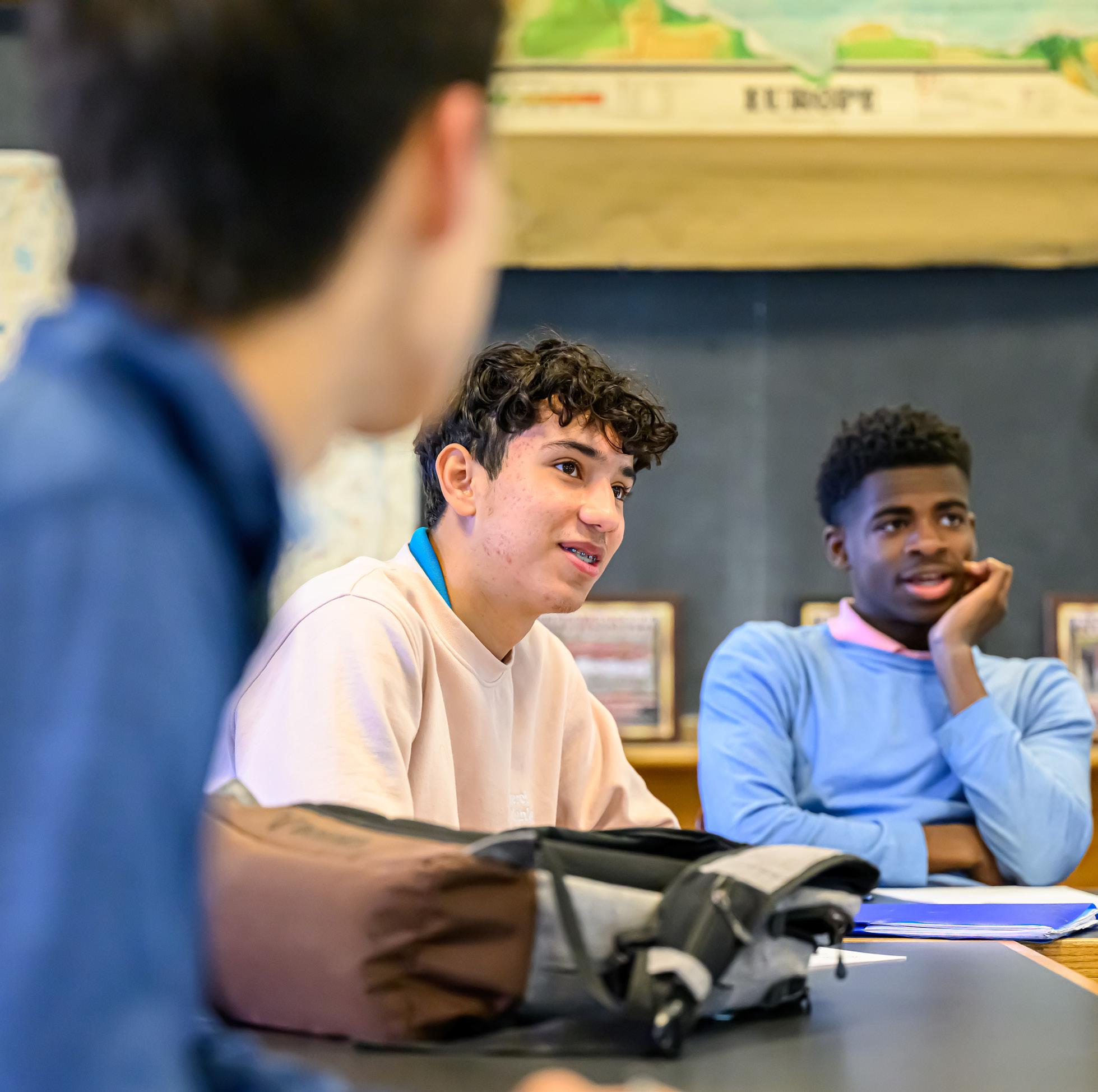
Learning a foreign language is instrumental in the formation of more empathetic, more responsible, more critical, and more sophisticated global citizens.
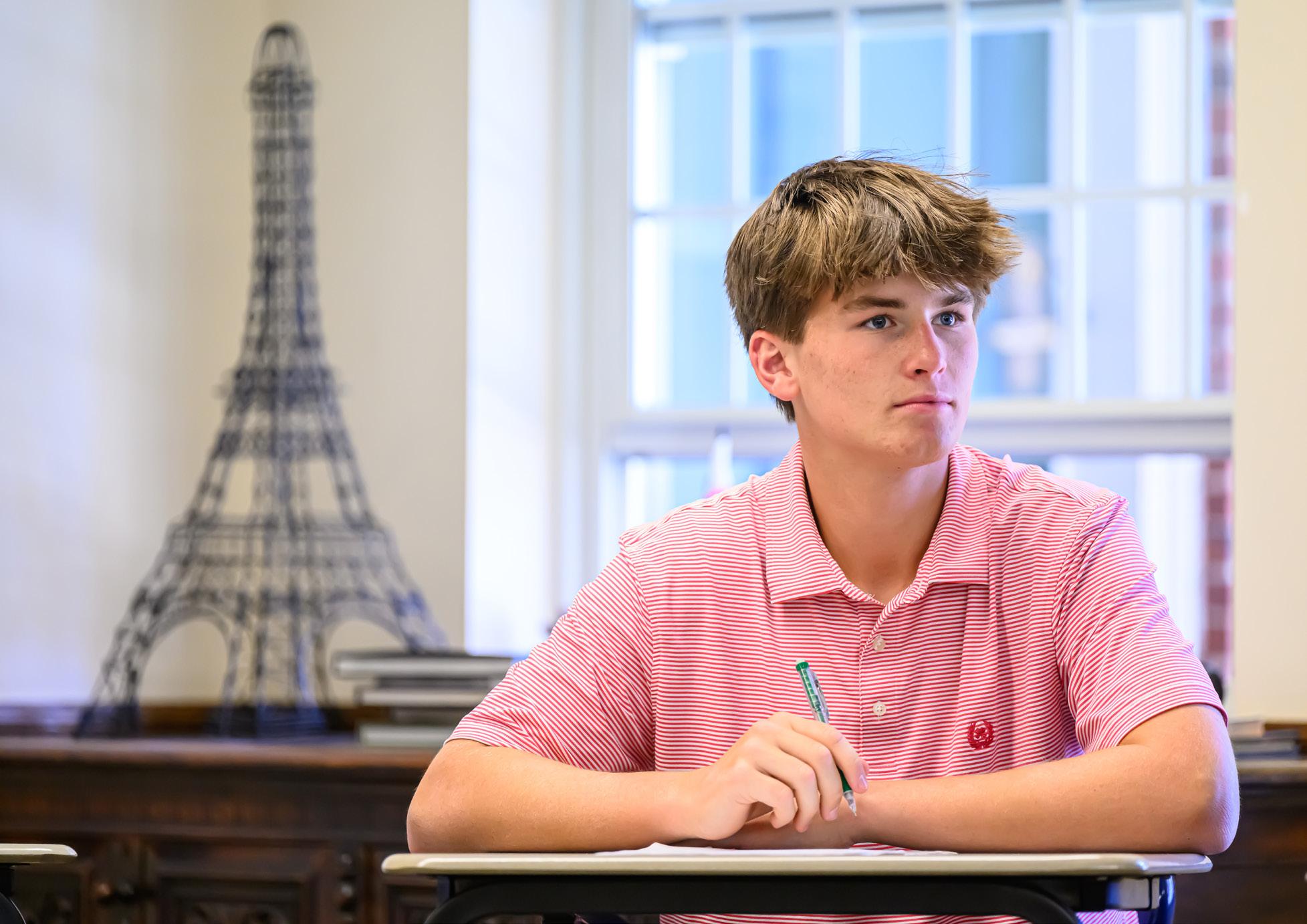
Modern Languages
At Roxbury Latin we believe that learning a modern foreign language opens the widest window to understanding different cultures, different ways of living and perceiving the world. It allows students to go beyond their native preconceptions and to master new ways of expressing themselves. It also puts them in the position of others, which entails appreciating their complex social and historical perspectives, their values, their plights, their dreams, and their unique contributions to human civilization. Learning a foreign language is therefore instrumental in the formation of more empathetic, more responsible, more critical, and more sophisticated global citizens. To this end we have designed introductory, intermediate, and advanced courses in French and Spanish that have three aims: to develop students’ speaking, listening, reading, and writing skills; to have them explore various modes of expression (describing, narrating, explaining, hypothesizing, analyzing, interpreting, criticizing, and persuading); and to immerse them in the histories, societies, and cultures of the French- and Spanish-speaking world. All classes are conducted in the target language. Important complements to the intensive study of both languages, between the student’s third and fourth years of study, are optional, but strongly encouraged, month-long immersion programs in Cádiz, Spain, and Caen, France.
27
French
French 1 initiates the student into speaking and understanding the language. From simple and convenient structures and expressions, the student is introduced to more complex and sophisticated words and phrases. He learns to use the present tense, the imperative, the future, the “passé récent,” and the simple past, as well as a number of common irregular verbs. His vocabulary is increased weekly until he is able to express many of the common daily experiences of his life in French. We strive to make the vocabulary and structural lessons as immediate and “relevant” as possible. To that end we use the audio-visual program D’Accord from Vista Higher Learning. This program gives the student the advantages of an immersion method by presenting native speakers in vivid situations, in real settings. At the same time, this course is structured so that the student can learn fundamental linguistic principles efficiently. We also use Premier Livre (an introductory grammar book published by Amsco) to supplement students’ understanding of grammar and syntax.
French 2 continues in the same manner as first-year French, gradually increasing the sophistication of the grammar and syntax until the student has mastered all common structural and grammatical usages from the subjunctive to the relative pronoun. His vocabulary is expanded to include typical French idioms and expressions and common vocabulary words in daily use in France. The student continues his initiation into French cultural and social life and he is given every opportunity to express himself in the language.
In addition to the customary “dialogue”—an oral acting-out of a situation in French—the student is called upon to memorize French poems and songs and he is required to present oral reports at several points in the year. He is still graded on both his oral and written work. We continue to use D’Accord, and supplement that material with a grammar review book, Deuxième Livre (Amsco).
During the year we read selected stories from Les Aventures du Petit Nicolas and, in the spring, we read the wonderful novel, Le Petit Prince.
French 3 completes the student’s study of grammar, syntax, and vocabulary to the intermediate level and challenges him with more sophisticated and complicated forms and expressions. Themes studied include French history, geography, literature, La Francophonie, French art, and the France of today. These are useful anticipatory themes before the immersion experience in Normandy. Vocabulary building focuses on expanding the student’s ability to express himself more fully by stressing abstract terms, feelings, and ideas. Readings enlarge upon and reinforce structure and meaning as they stimulate interest. Selections are chosen that respond to the grammatical and structural needs of the student as well as to his natural inquisitiveness. We have traditionally read short works and poems by well-known French writers, including Voltaire, Sartre, and Maupassant. Students are still graded on their oral work as well as their written work. Special emphasis is placed upon essay writing as the student develops his ability to express himself clearly in French; he is required to write short essays and compositions
28 | The Roxbury Latin School Catalogue 2023-2024
and to deliver oral presentations at frequent intervals. Une Fois pour Toutes serves as the main source book for grammar. Stronger students are urged to take the French SAT II in June.
French 4 (AP Language and Culture), an elective offered to Class II, works to strengthen and expand the student’s ability to communicate in and to understand the language. Emphasis is placed on listening, speaking, reading, and writing at an advanced level, as we pursue a syllabus that prepares students for the French Language AP Examination. We focus on literary, cultural, and social aspects of French life and thought: the cinema, literary perspectives, women, modern politics, and social attitudes. The student necessarily deepens his understanding of the people as he learns the language; he also is forced to question his own notions and preconceptions as he considers the issues raised. Students are graded on their oral work as well as on their written work. AP French (A Guide for the Language Course) serves as a basic text, supplemented by articles from the internet. Cours Supérieur (Amsco) is used as the grammar text; successful students who have not yet taken the French SAT II test are urged to do so at the end of the year.
French 5, an elective offered to Class I, prepares the student for the French Literature AP Examination while it continues to concentrate on increasing his ability to communicate in and to understand the language. We focus on readings which span the four hundred years of French artistic and cultural ascendancy, ranging from Molière, L’École des Femmes to Camus,
L’Étranger. There are frequent opportunities for grammar review and vocabulary building. Students are expected to express themselves orally and in writing at an advanced level. Although much of the course discussion focuses on the formal investigation of literary trends and themes, the student has the opportunity to improve his conversational French through weekly seminars and dissertations.
Spanish
Spanish 1 initiates students into understanding, speaking, reading, and writing Spanish through a variety of communicative activities that encourage students to use Spanish in an authentic and effective way. To this end we use Vista Higher Learning’s Descubre program. Through its engaging texts, exercises and videos, this program nicely integrates the learning of Spanish grammar and vocabulary with relevant Spanish and Spanish-American social and cultural themes. As the year progresses, students are gradually exposed to more complex and sophisticated vocabulary and sentence structures, and are introduced to the following Spanish-speaking countries: Spain, Ecuador, Mexico, Puerto Rico, Cuba, Peru, Guatemala and Chile. By the end of the year they have learned how to use the present, the preterit and the imperfect of regular, irregular and stem-changing verbs, and are able to express many of their common daily experiences in areas such as school and family life, foreign travel, shopping and dining.
29
Spanish 2 builds on students’ knowledge of vocabulary, grammar, and syntax until they have mastered all common structures and verb tenses. We continue to use the Descubre program supplemented by increasingly sophisticated poems, short plays and short narratives. The students continue their initiation into Spanish and Spanish-American cultural and social life, and are introduced to the following Spanish-speaking countries: Costa Rica, Argentina, Panama, Colombia, Venezuela, Bolivia, Nicaragua, Dominican Republic, El Salvador, Honduras, Paraguay, and Uruguay. By the end of the year they have learned how to use familiar and formal commands and all the tenses of the indicative and subjunctive moods. They are also able to share many of their common experiences and perceptions about topics such as the workplace, health, technology, urban life, arts, and current events. Classroom activities include oral presentations, debates, and short plays.
Spanish 3 deepens students’ knowledge of grammar, syntax, and vocabulary through an exploration of the history, society, and culture of Spain. This is a useful anticipatory investigation prior to the immersion experience in Cádiz at the end of the academic year. Special emphasis is placed upon the acquisition of the linguistic skills necessary to understand, analyze, and critique in the target language different forms of textual, visual, and audiovisual forms of expression such as poems, narrative fiction, plays, essays, newspaper articles, short films, documentaries, media advertisements, painting, and sculpture. Classroom activities
include formal oral presentations, dramatic performances, social and political debates, and creative and expository writing.
Spanish 4: Spanish America Through Cinema develops high competence in oral and written expression by exploring the history and culture of Spanish America through some of the most influential films produced in the region in the last 70 years. In the process, students will acquire an analytical framework to understand the language of cinema and learn the linguistic tools to analyze films and literary texts; to express their views of complex historical and cultural events; to write sophisticated argumentative essays and original screenplays; and to produce their own videos. This course also prepares students for the AP Spanish Language and Culture Exam.
Spanish 5, an elective offered to Class I, follows, and often expands on, the proposed syllabus for the AP Spanish Literature and Culture course. We focus on readings by some of the greatest Spanish and Latin-American writers, including Cervantes, Sor Juana, García Lorca, García Márquez, Borges, and Isabelle Allende. We survey the major literary and artistic movements, their association with history, and their importance in the shaping and understanding of modern Spanish and Latin-American culture. Students refine their language skills through class discussions, oral presentations, and writing textual analyses and comparative essays.
30 | The Roxbury Latin School Catalogue 2023-2024
Because human nature is revealed and defined by humanity’s past deeds, a knowledge of these deeds is indispensable to a person’s understanding of his or her own nature and potential.
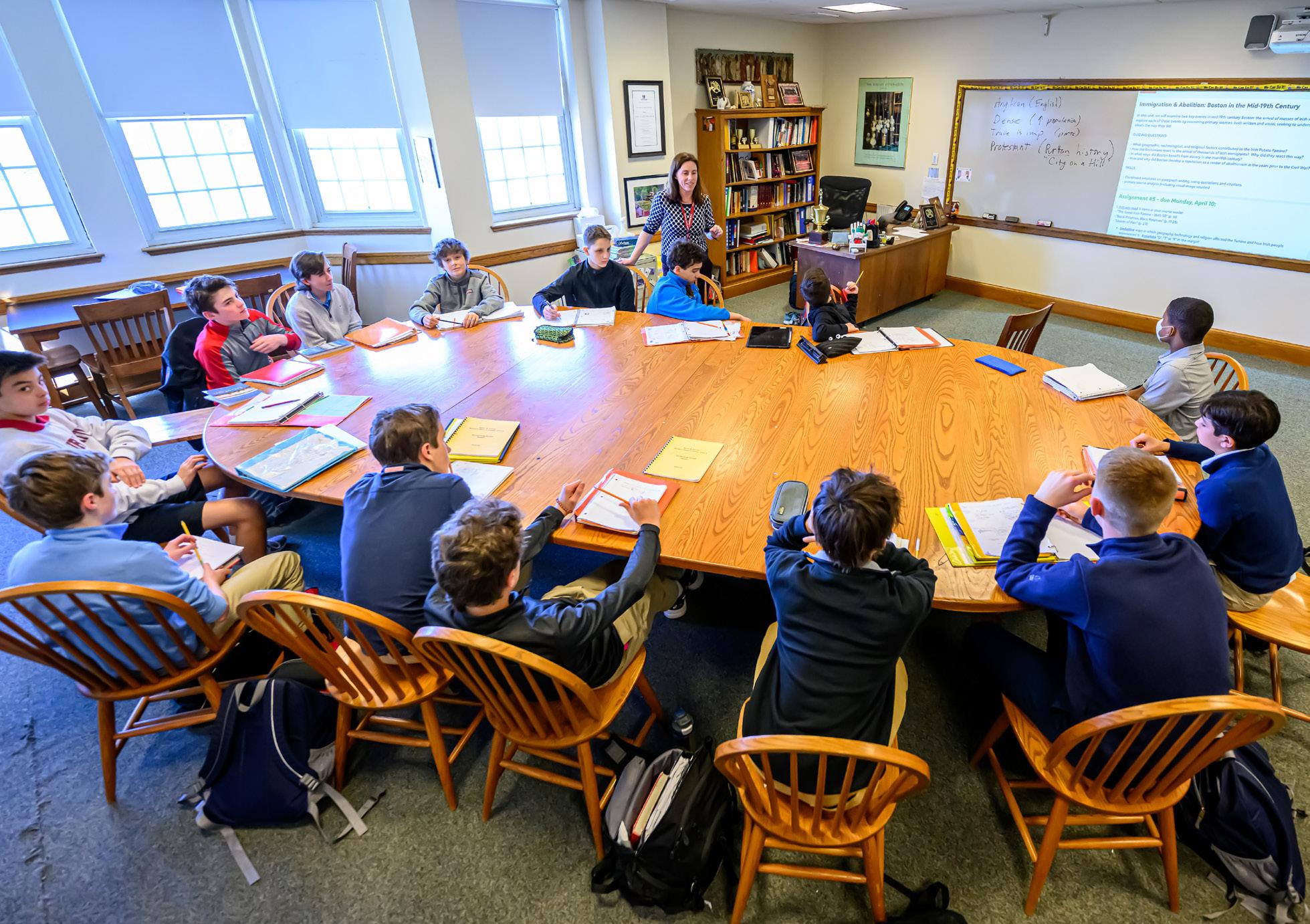
History
History is a mirror in which students can examine their lives. We believe self-knowledge is the prerequisite of wisdom and that only the examined life is worth living. We hope that the study of history here will be a source of wisdom and worth in our students’ lives, now and in the future. Roxbury Latin boys study history in order to know themselves as moral persons, as participants in the human story, and as members of the human family. If they are to know themselves, young people need to come to terms with the convergence of their individual stories and the great epic of humankind. They need to understand that the institutional and material world (which they perhaps take for granted) is the product of the thought, toil, and sacrifice of people who have gone before them. Similarly, because human nature is revealed and defined by humanity’s past deeds, a knowledge of these deeds is indispensable to a person’s understanding of his or her own nature and potential. Finally, knowledge of the variety of human experiences and conditions should awaken students’ awareness of the duties which their privileges impose upon them. In these ways, history defines paths by which students may find meaning and purpose for their lives.
31
The study of history allows students to see the greatness and fragility of human nature. On the one hand, the past is a record of aspiration and achievement. On the other hand, history records an almost unbroken sequence of crimes and calamities. Familiarity with humanity’s high and low moments and its noble and wicked individuals is essential to a realistic understanding of oneself and a balanced perspective on the world. To recognize that individuals can make a difference, that “success” is ephemeral while justice, compassion, and beauty endure, is to be both humbled and liberated. If students are led thereby to examine their own lives and enabled to live them more consciously, uprightly, and responsibly, our program has achieved its principal purpose.
Roxbury Latin seeks to prepare its students for full citizenship in the human community. The deliberate and committed participation that such citizenship entails is possible today only with a broad and deep awareness of the variety and complexity of cultures and institutions past and present. This awareness requires, first, a knowledge of the traditions and values of the particular community, society, and culture in which all of us live—a microcosm of humanity. Second, it requires some understanding of other communities, societies, and cultures which constitute the human enterprise. Third, it demands an analytical understanding of the political and economic systems which establish the conditions of much of contemporary human activity. We believe that historical consciousness thus understood is essential for the creative engagement with their world which we hope all our students will seek and achieve.
The history curriculum seeks to fulfill these purposes through a sequence of required courses plus a limited assortment of electives for upperclassmen. The content of these courses comes from a number of historical fields and from several of the other social sciences allied with history. History courses employ a variety of materials in addition to traditional textbooks: primary source documents, fiction, works of art, and monographs. While most history courses examine material in chronological order, none deals with all topics relevant to its subject. Rather than attempt to cover as much ground as possible, teachers select topics they judge to be most important or instructive. In general, our students study a limited amount of material thoroughly, although we are, to some extent, guided by College Entrance Examination Board prescriptions in AP U.S. Government and Politics and AP Economics, and we intentionally expose our youngest students to the sweep of human history in Class VI to lay a foundation for their future learning, both in the classroom and beyond.
32 | The Roxbury Latin School Catalogue 2023-2024
Boston’s Place in Human History, informally called “Roots & Shoots,” is required of all boys in Class VI. Students develop a global perspective on Boston’s historical roots by examining how events of world history have shaped who we are and how we live. Students also explore the shoots that have sprouted from Boston’s history to have an impact beyond the city limits—sometimes even globally. By emphasizing the interactions of geography, technology, and religion in influencing various human systems (political, economic, and social), students have an opportunity to examine the movement of people and their ways through time toward better understanding Boston’s place in human history. Emphasis is placed on developing the skills of the historian, an understanding of the evolution of governance in historic Boston, and an appreciation for Boston as a cosmopolitan city in a land of immigrants.
During the month of May, a unit on Civics for Class V expands upon the foundation in governance laid in the Class VI history curriculum. This unit is designed to strengthen students’ understanding of how government works and to explore ways in which individuals can, and do, make a difference through participating in, and interacting with, government. Emphasis is placed on the electoral process, jury duty, military service, being informed, and the path to citizenship. This course is team-taught and benefits from presentations by guest experts.
Western Civilization: A Critical Inquiry, required of all boys in Class IV, is an intentionally classical and interdisciplinary course that seeks to provide students with an awareness of
humanity’s recurring problems, a perspective on our own time, and an appreciation of consequential historical figures: the complex dilemmas they faced, the decisions they made, and the impact of those decisions. The course also explores how science is reshaping our understanding of the medieval period globally, and raises the sights of boys in terms of arts appreciation by complementing, reinforcing, and supplementing the arts curriculum in other areas of the overall Roxbury Latin experience. In addition to developing skills for analytical essays, documented papers and oral presentations, students research, produce and orally defend a model or reproduction of a building (or group of buildings), historical scene, work of art, or artifact from anywhere in the world, making deep and explicit connections to historical themes or ideas from the course, analyzing artistic elements, and applying rhetorical skills.
Modern European History is an elective for members of Class III. Through the study of European history from 1450 (the High Renaissance) to the present, this course traces major developments in political and diplomatic history against a backdrop of social and economic change, creating the context for students’ better understanding of contemporary institutions and modern intellectual and cultural forces that shape our world today. Emphasis will be placed on analysis of both historical evidence and historical interpretation through class discussion and expression of historical understanding in writing. Because the narrative of European history necessarily involves engagement with the global
33
economic force of imperialism and global conflicts (WWI & WWII), this course seeks to lay a sure foundation for the study of U.S. History and other history department electives.
World Religions, Philosophies, and Multigenerational Histories is an elective for members of Class III. As complex features of history, religions, and philosophies deal with life’s big questions and can inform people’s sense of morality in positive ways, they can also interact with changing social systems and political ideologies with harrowing historical consequences. In this course, documentary videos provide the 30,000-foot view of the Communist Revolution in China, apartheid in South Africa, the plight of refugees in war-torn Iraq, and the dislocation of indigenous people in the U.S. and Canada. This sets the stage for reading multigenerational, family histories that make the period accessible and observable, as different generations of the same family respond to historical change across time. The study of Taoism, Buddhism, Confucianism, Islam, and Native American religion exposes students to the richness of world religions and philosophies as a subject of study. The family histories of 21st century authors Trevor Noah, Thaer Abdallah, Richard Wagamese, and Scott Tong make the lived experience of their families relatable, and the history itself unforgettable. Methods for exploring one’s own family history receive particular emphasis in this course.
U.S. History, required of all boys in either Class I or Class II, is designed to develop historically literate citizens with an empathetic understanding of the complexity of the American
experience as well as a love for the critical study of our nation’s past. The course focuses on three core themes: 1) constancy and change in economic and social realities; 2) watershed changes in American political life and interpretations of government’s role in protecting life, liberty, and property; and 3) America’s place in the world. Students conduct research for a major paper, selecting from topics relevant to one of the course units (as determined by the instructor). In the final unit of the course, students undertake an oral history project connected to recent American history. Core readings are supplemented with numerous primary source documents.
The following upper-level electives are being taught in the 2023–2024 school year:
AP Economics, offered to members of Class I, is the study of choices that individuals, firms, and societies must make as they use scarce resources to provide for material well-being. This course presents the tools of micro- and macroeconomic analysis. Macro topics include the market system of economic organization, economic growth, productivity, the role of government, the financial system, inflation, unemployment, short-term economic fluctuations, exchange rate determination, and theoretical controversies. Micro topics include applications of supply and demand analysis, elasticity, production theory, the organization of industry (including monopoly and oligopoly), labor markets, income inequality, externalities, poverty, and trade. Whenever possible, we will consider international dimensions and comparisons. Students are asked to master introductory economic theory, take part
34 | The Roxbury Latin School Catalogue 2023-2024
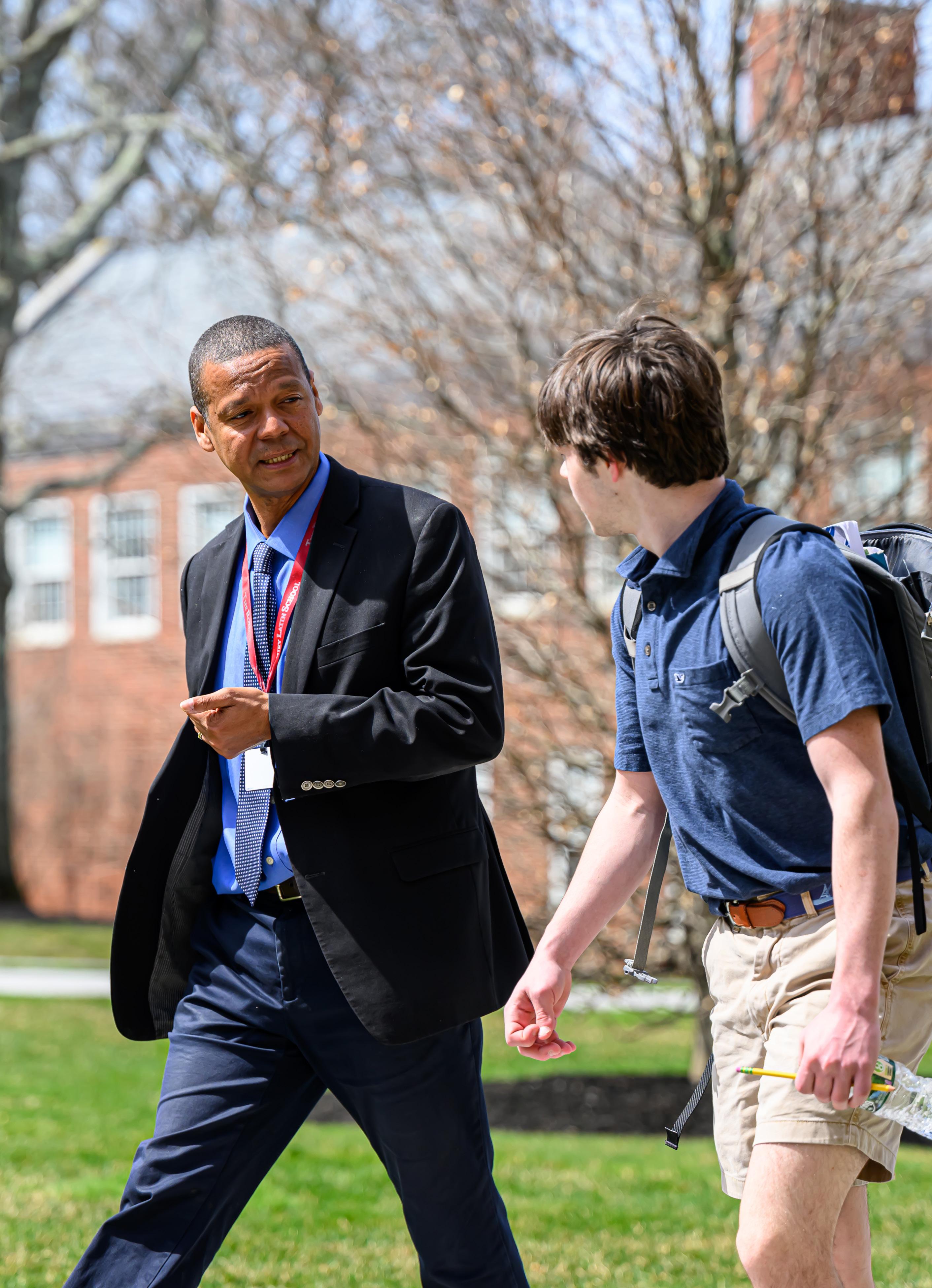
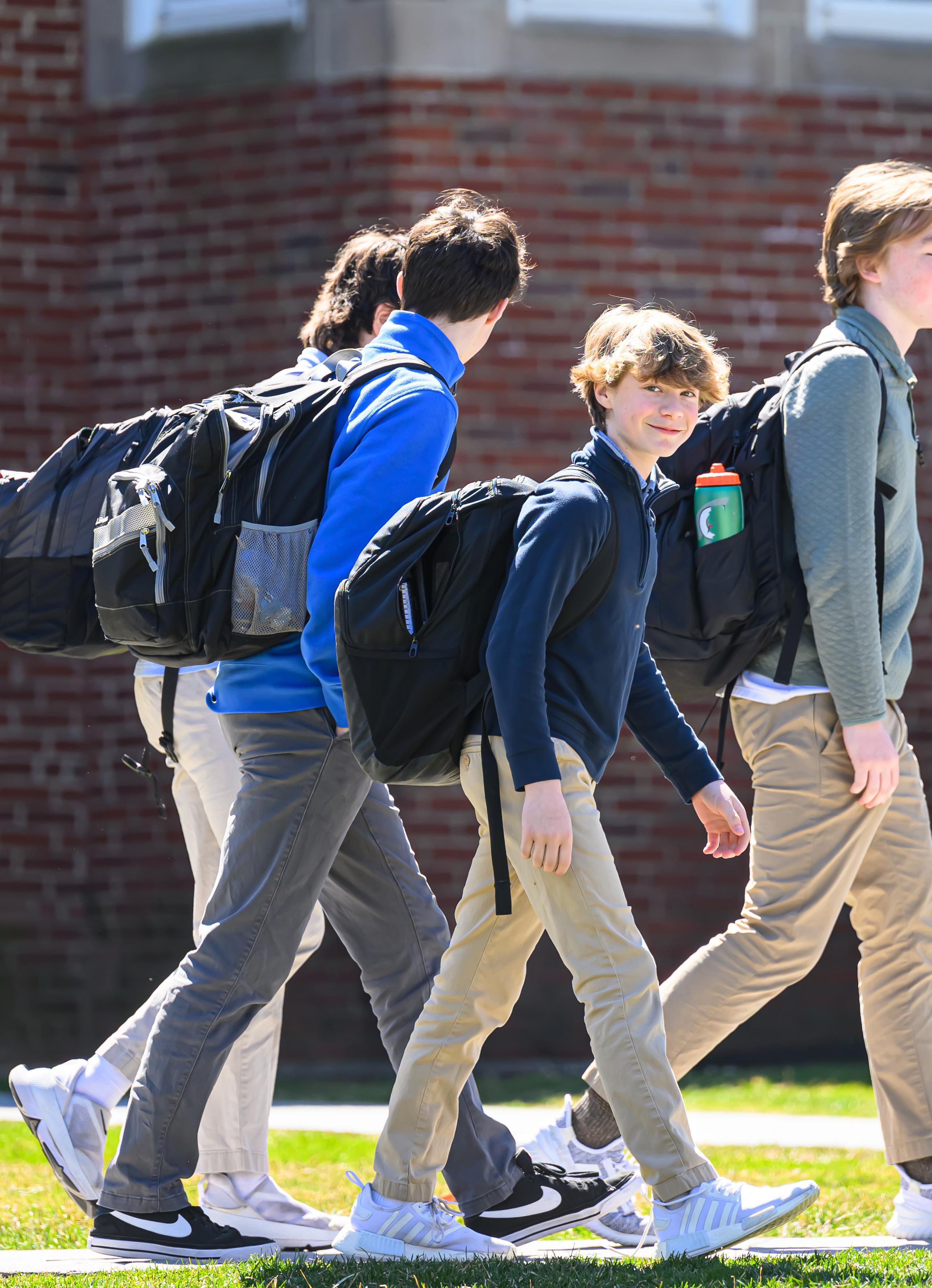
in debates, and analyze the issues with some degree of sophistication. Students are also expected to be familiar with current economic events as presented in The Wall Street Journal, The New York Times, or The Economist. A major objective of the course is to introduce basic economic principles and the kinds of questions and techniques used by economists in their analysis. Finally, students will also become familiar with a variety of data sources available on the Internet. Students are required to take the Advanced Placement Microeconomics Exam and the Advanced Placement Macroeconomics Exam in May.
The following paired electives will be offered to members of Class I who have taken U.S. History as a prerequisite in Class II.
AP U.S. Government and Politics (Fall) Recent and ongoing challenges to our democratic norms and institutions demonstrate the resilience of our democracy, but also its fragility. Democracy depends on informed and active citizens who can make serious, evidence-based arguments in a world where there is a loss of agreed-upon facts, basic rights are threatened, and the media landscape is profoundly changed. As a culminating experience in the study of American history at Roxbury Latin, AP U.S. Government and Politics concentrates on the concepts, institutions, and behaviors that characterize and animate our constitutional system and political culture. The news of the day also feeds our discussions in this course weekly, sometimes daily. Students are required to take the Advanced Placement U.S. Government and Politics Exam in May.
Creating a Common Good (Spring)
What do we owe one another? Across time, this question has shaped the ideas of thinkers who have pursued something called a “common good.” How to define and achieve a common good has animated the reform movements, utopian experiments, protest literature, and identity politics that have emerged in response to social and political challenges throughout world history. Through its exploration of fundamental questions about the relationship between the individual, society, and the state, this course builds on the topics and concepts students study in AP U.S. Government and Politics. An intellectual history course at its core, Creating a Common Good offers students deep engagement with texts from global wisdom traditions that have influenced how we think about economic markets and morality, law and society, identity and urban geography, nature and technology, and education and democracy. Global Conflicts, offered to members of Class I who have taken U.S. History as a prerequisite in Class II, will explore the causes, course, and consequences of the major global conflicts of the twentieth century.
During the first semester, students will explore the Great War, or the “War to End All Wars.” No previous war had seen industry, science, technology, and the massive populations of Europe, its colonies, and the United States come together in such a disastrous conflict. This semester we will explore the causes of the war on both sides of the Atlantic; its different fronts around the world; the role of race and gender (the war led to the largest single enfranchisement of
37
Americans); and the aftermath that has shaped Europe, the United States, the modern Middle East, and Africa and Asia. Students will focus on reading and analyzing an assortment of primary and secondary sources, and produce several research papers.
In the second semester, students will examine the social, political, and economic ramifications of major conflicts in the middle and late twentieth century, beginning with the rise of fascism in Italy, Japan, and Germany and the resulting catastrophes surrounding race-based ideologies of purity and cultural homogeneity. From there, students will consider the response of the United States as it went from a period of isolation to becoming a key player in World War II and a central architect of the post-war world. Topics for exploration will include the internment of Japanese-Americans, the impact of women in the workforce, the end to discrimination in the defense industry, and the ban on discrimination in the Armed Forces. Using RL alumnus George Weller’s text First into Nagasaki as a backdrop, the morality of the development and use of atomic weapons will also be explored. Additional topics include the shaping of the Cold War, and the modern development of non-state actors as military threats. Pedagogy will be based on course readings, primary source analysis, research, and historical writing.
At the conclusion of the course, students should be able to debate effectively how major global crises shaped the twentieth century and America’s role in it.

38 | The Roxbury Latin School Catalogue 2023-2024
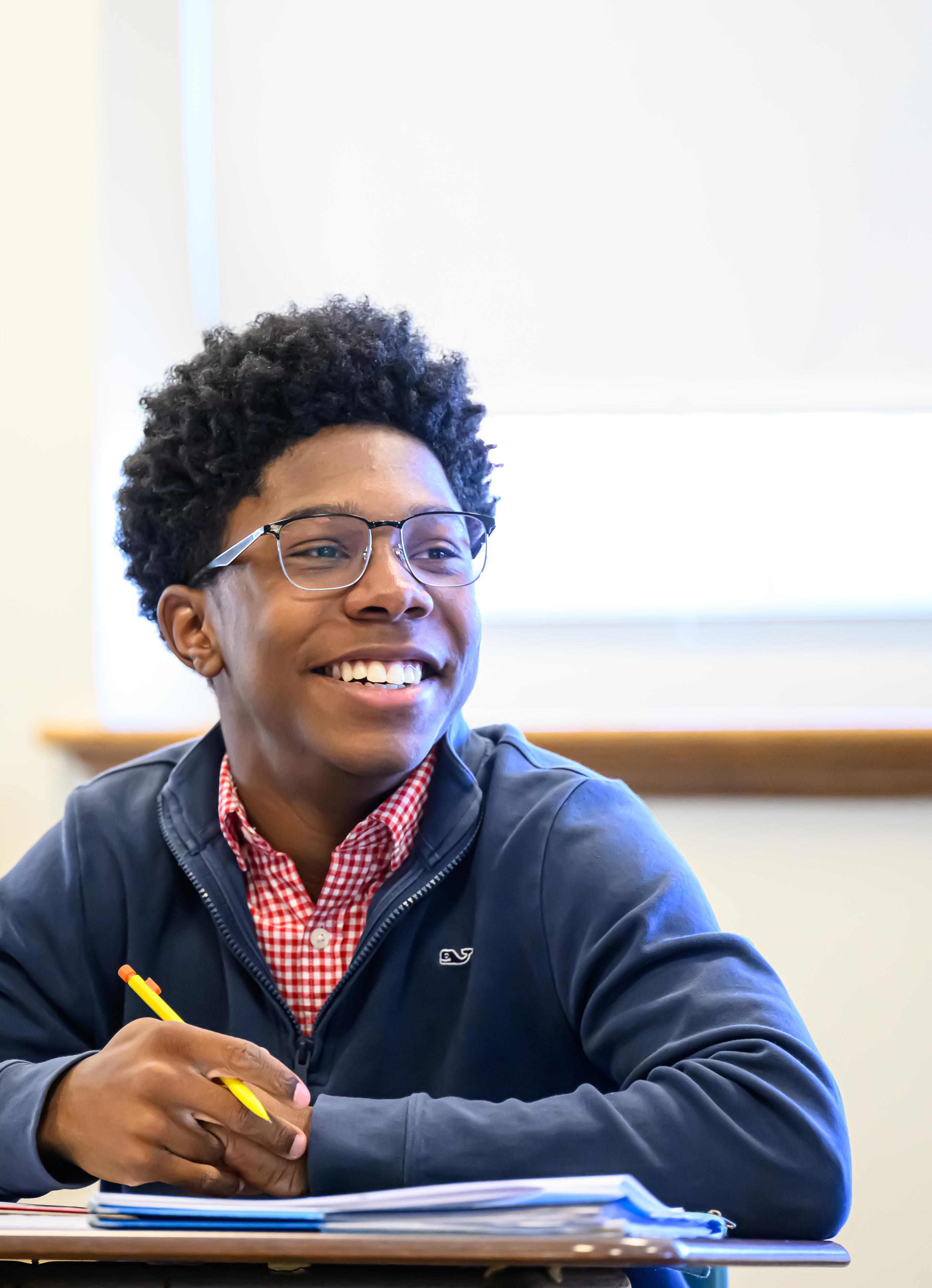
Information Services
Since virtually every field—medicine, engineering, architecture, space exploration, film-making, and education, to name a few—relies on the effective use of technology, we believe that the integration of current technology, including library services, into the curriculum is vital to complete a preparatory education.
The school continually invests in its technology infrastructure and library resources to keep pace with technological advancements and provide faculty and students with state-of-the-art equipment. Each classroom is customized with the appropriate hardware and software to support the boys’ academic progress and the teaching styles of our faculty. Because we are a Google Workspace for Education school, each boy has an account that gives him unlimited access to the entire Google suite of productivity, communication, and collaboration tools.
The IDEA Lab contains a full array of digital fabrication equipment, including a 3D printer, a vinyl cutter, laser cutter, and CNC router. The Library houses 16,000 titles and subscribes to daily newspapers, 11 electronic databases, and more than 60 periodicals. Audiovisual systems in classrooms further the integration of technology with the curriculum. Though the entire faculty has been trained in the use of emerging technology, RL is served by specialists who devote themselves to assisting teachers and boys in the use of new resources. Every academic department incorporates technology and research tools into its program, as do most extracurricular activities. Modern language students use computers for interactive audio and visual assignments; math teachers rely on online problem solving and graphing tools; multimedia demonstrations in the history classrooms expose students to a sense of the place and time being studied (and provide concrete tools and tips on how to continue research); physics and chemistry students use technology to gather and analyze laboratory data and for online research; the Math-Science Investigations course utilizes the IDEA Lab to learn about computer-aided design, electronics, robotics, programming, and engineering. Using Blackbaud’s Learning Management System, students access course syllabi and assignments, submit assignments, and join group discussions. Through our Library portal they can search for titles or access databases. Our primary aim, through the courses described below, is to bring to our students the power of advanced technology and the competence to use it creatively and effectively.
40 | The Roxbury Latin School Catalogue 2023-2024
In Class VI, boys are introduced to the intricacies and opportunities of modern technology, focusing on both practical and ethical issues in Our 21st-Century World. In this course, a component of the Class VI Science and Technology curriculum, students will learn about our connected digital world and how they can be creative, productive, safe, and ethical citizens within it. Computers, personal devices, apps, and networks have become so easy to use that they no longer require much understanding of the way that they actually work. Learning about what is going on “under the hood” makes it possible for students to take fuller advantage of the technology and become creative producers—not simply consumers—in the digital realm, and to understand the risks of using technology. Students will learn about transistors, bits and bytes, files and operating systems, and move on to learn about programming languages and the ways in which they can control a computer. The boys will practice programming with Python and develop an understanding of algorithms, computational thinking, and programming structures. They will learn about how information moves around a network, what the Internet is, and what web pages are. They will close the rotation with discussions of privacy, anonymity, critical consumption, fair use, and internet ethics.
AP Computer Science, an elective for members of Class I and Class II, is an introductory course in computer science. Because the development of computer programs to solve problems is a skill fundamental to the study of computer science, a large part of the course is built around the development of computer programs
or parts of programs that correctly solve a given problem. All programs are implemented using Java as the primary language. The course also emphasizes the design issues that make programs understandable, adaptable, and, when appropriate, reusable. At the same time, the development of useful computer programs and program modules is used as a context for introducing other important concepts in computer science, including the development and analysis of algorithms, the development and use of fundamental data structures, and the study of standard algorithms and typical applications. In addition, an understanding of the basic hardware and software components of computer systems and the responsible use of these systems are integral parts of the course. The course prepares students to take the AP Computer Science exam in May.
41
We
seek to cultivate in our students
an appreciation of the power and utility of mathematics in solving real-world problems and a deep understanding of the logic and beauty that pervade the subject.
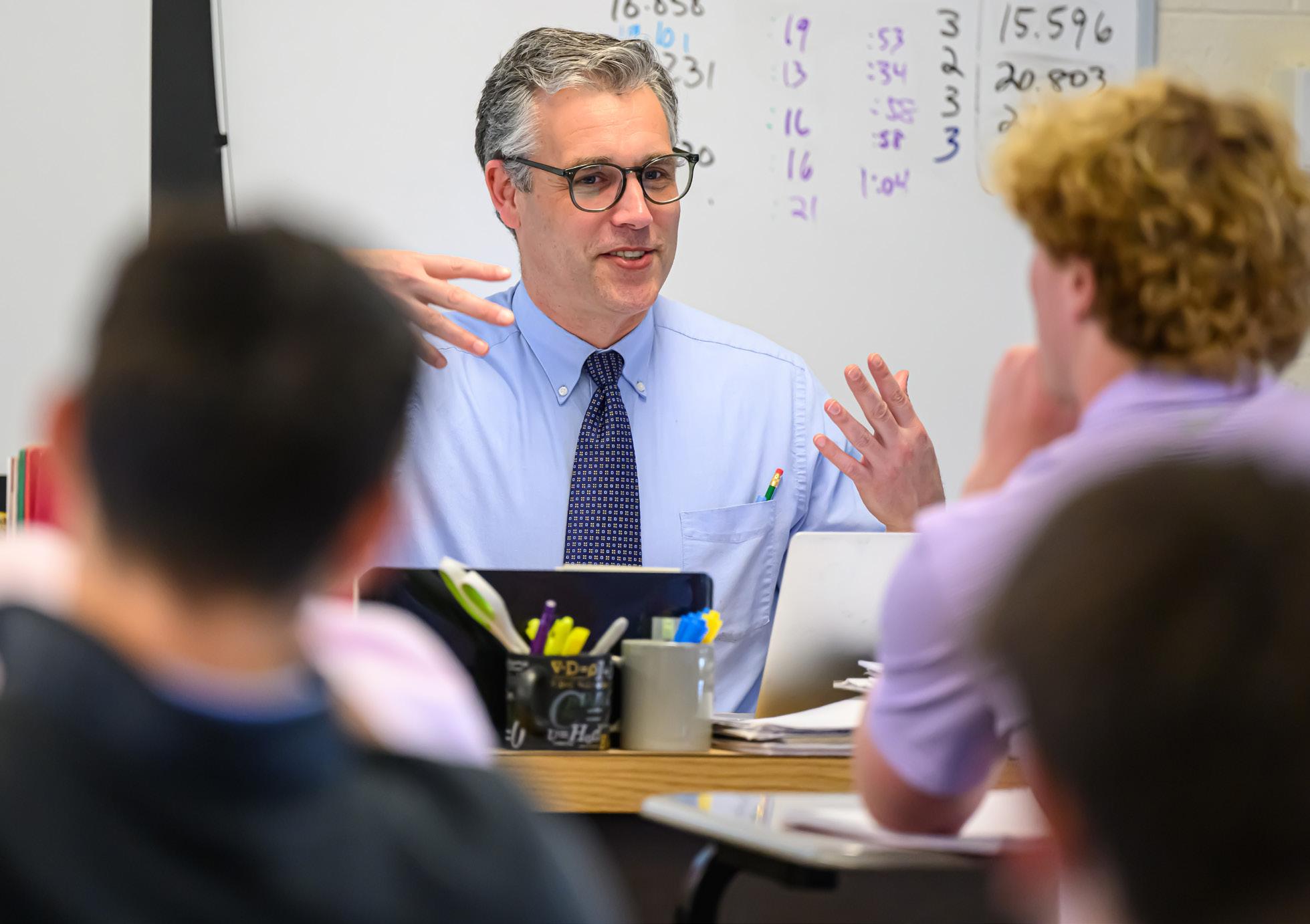
Mathematics
Students come to us as energetic and inquisitive problem-solvers, and the Roxbury Latin Mathematics Department aims to capitalize on their inherent curiosity. We seek to cultivate in our students an appreciation of the power and utility of mathematics in solving real-world problems and a deep understanding of the logic and beauty that pervade the subject. In addition, we want our boys to enjoy math and to have fun exploring challenging and creative ideas and problems.
In order to navigate an increasingly complex world, students must be effective problem solvers. They must be able to identify a problem, decode relevant information, and devise a strategy to attack the problem. Approaching an unfamiliar problem is perhaps the most intimidating prospect for a student, and we emphasize that the process of grappling with difficult problems, and not shying away from them, is how students improve as problem solvers. Over the course of their time at Roxbury Latin, students develop the skills that enable them to tackle a wide array of problems. In all of our classes, there is no substitute for thorough and careful preparation, and students must take primary responsibility for their learning. While it is natural to see each year of mathematics as distinct, we aim to provide for our students a framework in which they can see their mathematics knowledge growing
42 | The Roxbury Latin School Catalogue 2023-2024
continuously rather than in discrete steps. Our mathematics teachers are excited and energized by the subject and convey their enthusiasm using a variety of teaching methods and technologies.
Based on prior experience and achievement, students in Class VI are initially divided into advanced and regular sections. Later, the boys are divided into an accelerated section (which reaches AP Calculus BC in Class II); an advanced section (which reaches AP Calculus AB or BC in Class I); and one or two regular sections (which reach AP Calculus AB or AP Statistics in Class I). The groupings are reasonably flexible so that students may move from one section to another when deemed appropriate by the department.
A unique feature of our program is our Class IV course, Math-Science Investigations (MSI). This course, taken by all members of Class IV in heterogeneously grouped sections, provides an interdisciplinary experience for our students.
In addition to coursework, interested students have the opportunity to challenge themselves in outside competitions, both regionally and nationally. These contests include Mathcounts, the Math Madness online competition, and the sequence of American Mathematics Competitions: the AMC-8, AMC-10, AMC-12, AIME, and USA(J)MO.
Math 7 is designed to introduce boys to a variety of new ideas and to solidify crucial concepts and skills. Traditional pre-Algebra topics such as fractions, decimals, signed numbers, percents, area and volume, and ratio and proportion are reviewed in a problem-solving context at different points throughout the year. As a foundation for future math and science work, students are introduced to the fundamental principles of data analysis, probability, and statistics. In the latter part of the year, students learn fundamental algebraic techniques such as solving equations, factoring, and analyzing linear functions.
Algebra presents a comprehensive overview of the fundamentals of algebra. The course emphasizes algebraic techniques,
particularly factoring, solving equations, and analyzing linear functions. Strategies for solving problems form an important component of the course, and an assortment of word problems is covered throughout the year. Other topics covered include real numbers, operations with polynomials and algebraic fractions, inequalities, systems of equations, radical expressions, and quadratic functions. Students explore functions extensively, namely polynomial, rational, exponential, and logarithmic functions. Depending on the section, other topics studied may include conics, sequences and series, and an introduction to trigonometry.
Math-Science Investigations (MSI) is a lab-based course that provides boys the
43
opportunity to investigate powerful ideas in a hands-on context. Boys do this in an interdisciplinary context, exploring ideas in science, technology, engineering, the arts, and mathematics, collectively known as STEAM. Boys are active learners in this course, discovering concepts through investigation and experimentation and completing projects, often in collaboration, of increasing complexity over the course of the year. They also become immersed in the “maker” culture, building the creative confidence to use newfound skills, tools, and technologies to approach challenging problems.
Geometry provides an introduction to geometric techniques and ideas. Though different sections approach the subject in different ways, all sections develop results involving lines, planes, triangles, circles, polygons, perpendicularity, congruence, similarity, area, and volume. Algebraic techniques are revisited through topics such as inequalities, proportions, and coordinate geometry. Mathematical writing, axiomatic reasoning, and proof form a natural component of the curriculum. Further topics may include vectors, constructions, and similarity transformations. The text for the course is Jurgensen, Geometry.
Analysis continues the development of topics studied in Algebra. Exponential, logarithmic, trigonometric, polynomial, and rational functions are revisited in greater depth. Other topics include sequences and series, probability, conic sections, and polar coordinates.
The text is relevant chapters from Brown, Advanced Mathematics.
AP Statistics is the science of collecting, analyzing, and drawing conclusions from data. The course covers four major topics: exploratory data analysis (students use graphs and numbers to describe and analyze data); experimental and sampling design (students discover the proper ways to collect data via sampling and controlled experiments); probability (students learn fundamental principles of random variables and sampling distributions); and statistical inference (students draw conclusions from data using confidence intervals and tests of significance).
AP Calculus is one of the masterpieces of mathematics. In this course students extend the concepts of slope and area to all the nonlinear functions they have studied. This Advanced Placement course is offered at two levels: AB and BC Calculus. Both sections study the derivative and integral in depth, covering topics such as tangent lines, curve sketching, related rates, implicit differentiation, slope fields, optimization problems, areas, volumes, and differential equations. The BC Calculus class also covers advanced integration techniques and Taylor series. The text for the Class I AB and BC courses is Larson and Edwards, Calculus of a Single Variable. The text for the Class II BC course is Stewart, Calculus:
Concepts and Contexts.
Advanced Topics in Mathematics is designed to equip students with the tools and techniques needed to succeed in college-level
44 | The Roxbury Latin School Catalogue 2023-2024
mathematics courses such as Linear Algebra, Group Theory, and Real Analysis. In this course, students learn a variety of proof techniques while covering topics whose mastery is essential for success in upper level math courses. These topics include logic and set theory, number theory, counting and induction, relations and functions, and cardinality. In addition, students will be asked to think deeply and creatively, to solve non-standard problems, to formulate conjectures, and to take mathematical risks with the goal of seeing the subject through a lens that reveals its true beauty. The text for the course is Vandervelde, Bridge to Higher Mathematics.
Multivariable Calculus (offered in alternate years) extends the concepts and techniques of AP Calculus to functions of several variables. The course integrates the content of college courses in Linear Algebra and Vector Calculus, and the unified approach emphasizes certain overall themes (e.g., a nonlinear function behaves locally like its derivative). Topics are treated with a high degree of mathematical sophistication and rigor, and most skills from the relevant college courses are covered as time allows. The text is Hubbard and Hubbard, Vector Calculus, Linear Algebra, and Differential Forms.
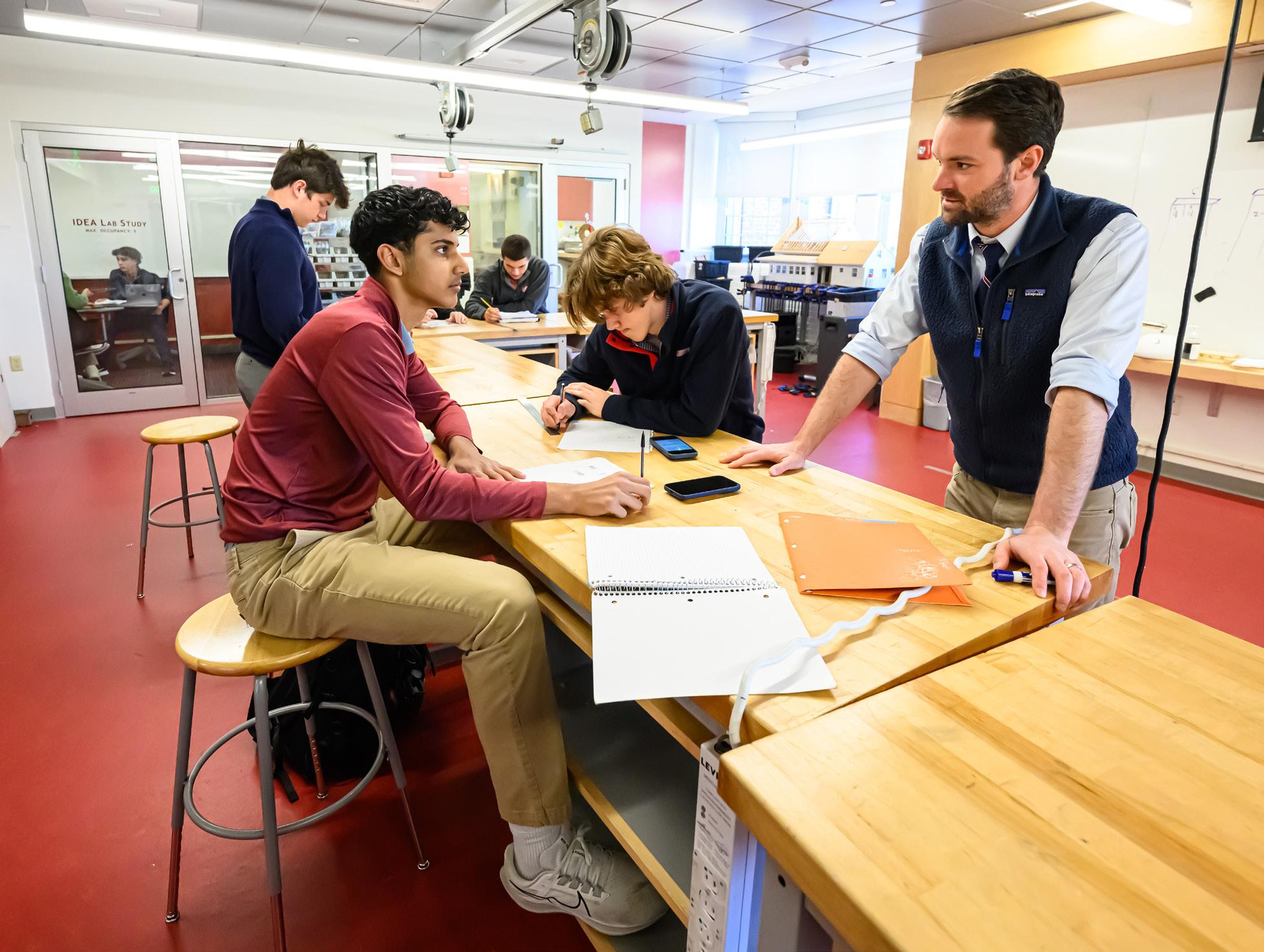
At Roxbury Latin, students explore the natural world in laboratory and field settings to develop fruitful conceptual schemes and to promote laudable personal values associated with scientific investigation.
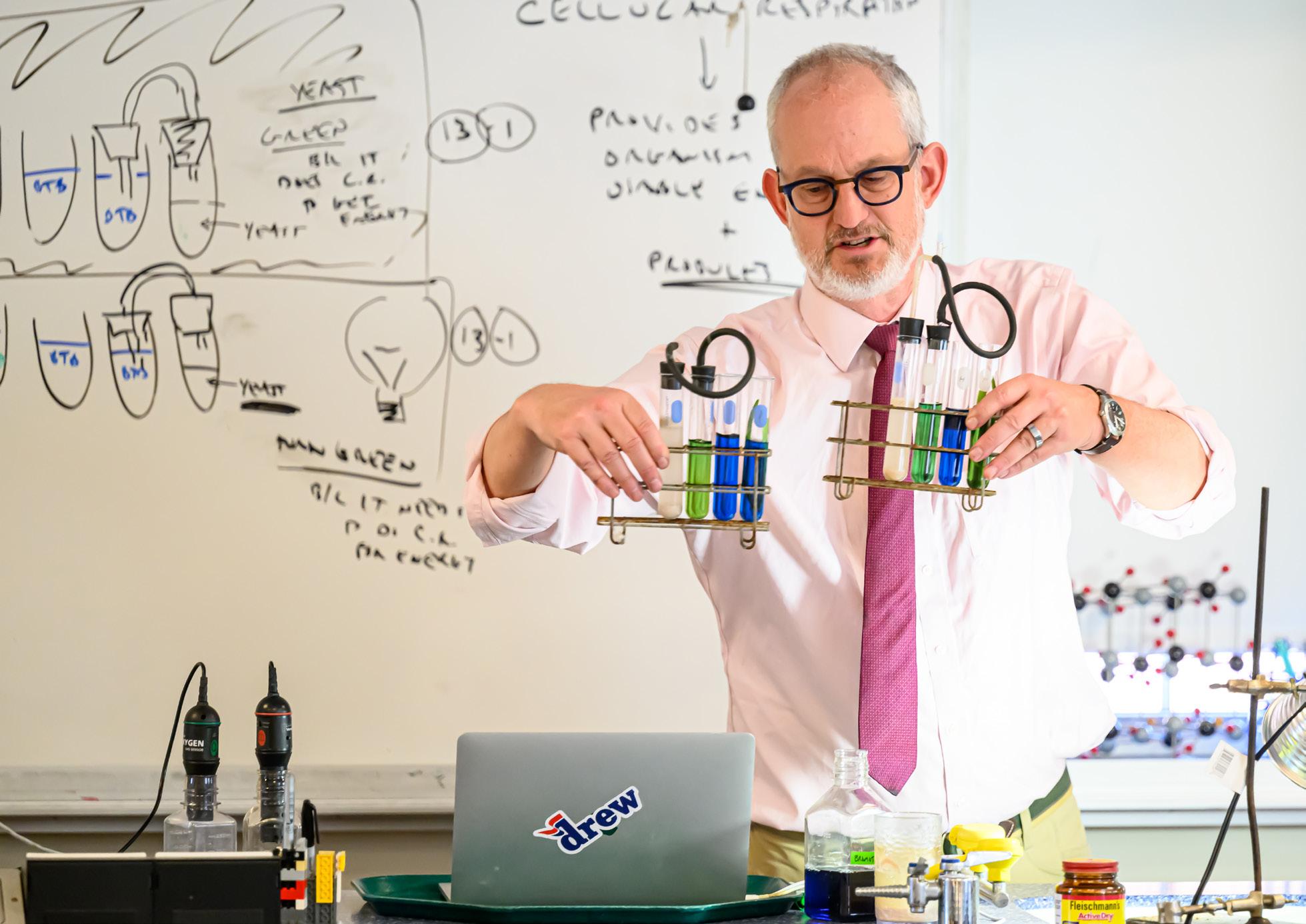
Science
The process of science—observing the world around us, forming a hypothesis, testing that hypothesis, and then critically thinking about and sharing the results—is something that we do instinctively as children. This inquiry is a shared experience; it’s the way in which we interact with and learn about the world around us. At Roxbury Latin, the Science Department strives to build on the natural curiosity of our boys in order to formalize that process; provide the tools with which students can find answers to their questions; and instill a sense of responsibility in how they apply and communicate the answers they find. We hope that, over the course of their time at Roxbury Latin, our students go from being able to recite the formulas and theories of scientific knowledge to individually using their creativity and passion to apply what they have learned, to critically analyze and solve problems about which they care. We believe that through this process, our graduates will not only appreciate how science underlies much of modern civilization, but will also become lifelong scientific learners, regardless of the careers they choose.
Science courses at Roxbury Latin, therefore, seek to provide hands-on experiences for students by creating opportunities to further explore and demonstrate the theoretical concepts
46 | The Roxbury Latin School Catalogue 2023-2024
discussed in class. In many instances, students build on what they learn by choosing an area or topic to explore in further detail. They then design experiments, conduct research, and test their own hypotheses. In this way, they come to understand science as an ever-evolving and dynamic process.
Students in Classes III, II, and I are required to pass at least two laboratory science courses from the following offerings: Conceptual Physics (or Honors Physics), Chemistry (or Honors Chemistry), and/or Honors Biology—although the majority take three or more. Typically, over 80 percent of students will have taken three or four upper level science courses, which also include Topics in Engineering and Environmental Science.
Our standard sequence of science courses in the high school years is purposely unusual:
After a year of hands-on exploration in MSI, students then take Honors Physics or Conceptual Physics in their sophomore year, continue with Honors Chemistry or Chemistry as juniors, and conclude with Honors Biology or Biology as seniors. Environmental Science may be taken in Class I, alone or concurrently with Honors Biology. Topics in Engineering is open to both juniors and seniors, although juniors who elect the course must take it along with Honors Chemistry or Chemistry; seniors may take it alone or concurrently with Honors Biology.
In Honors Physics, students examine the historical development of our concepts of motion, force, energy, light, and electric charge. The course culminates with a hands-on project that brings physics concepts to life. That study acts as a prelude to Honors Chemistry in which boys explore patterns of chemical combination and chemical energetics related to atomic and molecular structures. Honors Chemistry develops models for various atoms and simple molecules, including some of the organic molecules so important to living creatures. With this required chemistry background, boys in Honors Biology are able to develop an understanding of the molecular basis of heredity and the genetic evolution of life. They can also relate biochemical processes to the structure and function of organisms.
Although we use college-level texts in our elective courses, these courses are not geared specifically for Advanced Placement examinations. Each year, however, a number of students prepare for and take AP science exams in physics, chemistry, and biology with advice from their teachers.
With the support and encouragement of the department, students have the opportunity to engage in research during the school year or during the summer as Richard M. Whitney Scholars. Several Roxbury Latin boys have participated in national science research competitions including a winner of the Siemens-Westinghouse Competition and two students named top scholars in the Science Talent Search competition in 2020. RL boys have also earned places on the U.S. Physics Team for the International Physics Olympiad.
47
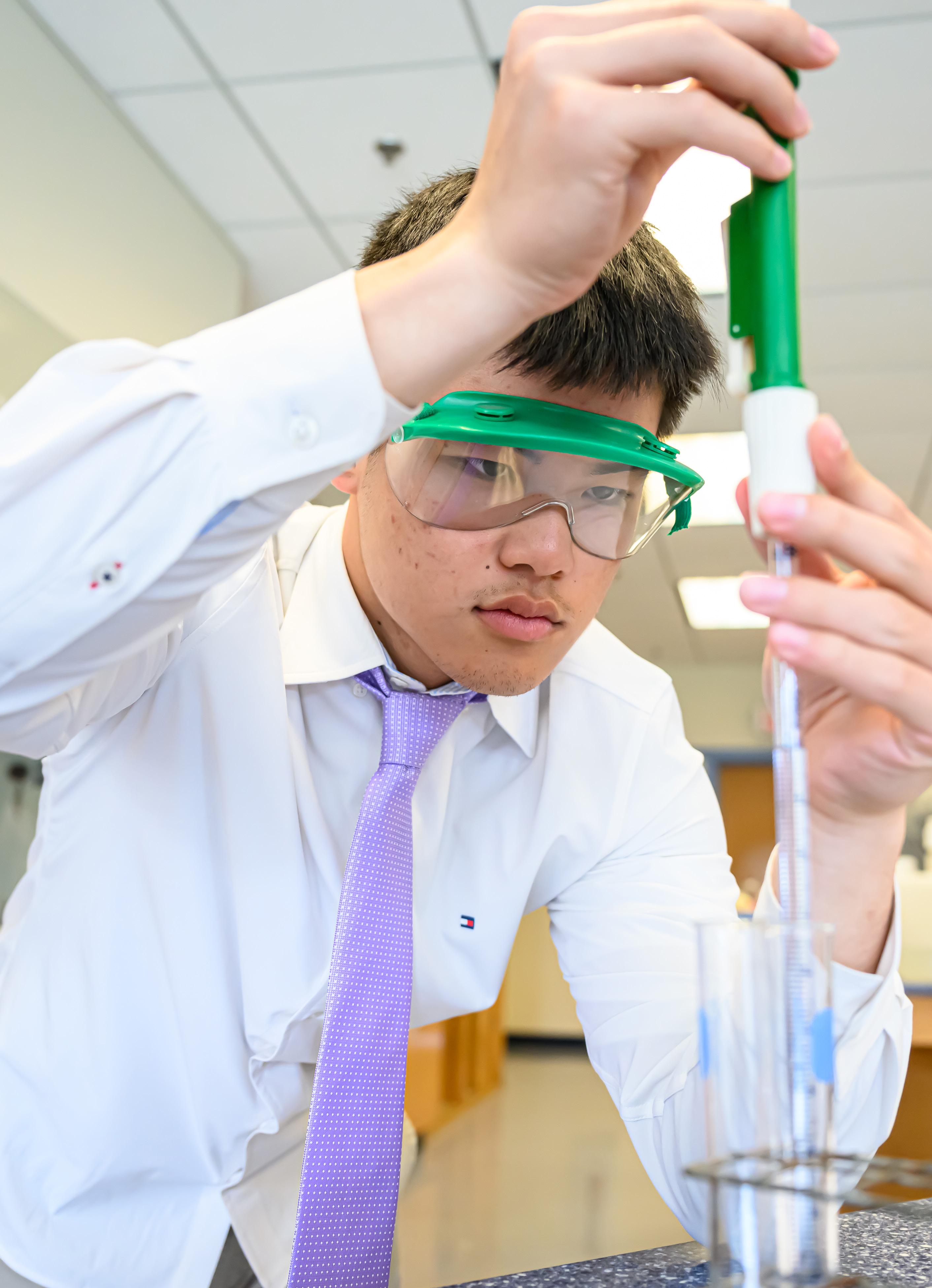
Science and Technology, for boys in Class VI, begins with an introductory unit that uses Roxbury Latin’s 50-acre forest as a living laboratory to teach foundational skills in scientific observation, data collection, and in developing hypotheses. From there, the course is comprised of three complementary, 10-week units taken in rotation. The technology component, Our 21st-Century World, is paired with two Science Department courses, The Design of Life, and Environmental Studies. All three courses take a “hands-on” approach, pairing rigorous academic study with frequent lab activities.
In Our 21st-Century World, students will learn about our connected digital world and how they can be creative, productive, safe, and ethical citizens within it. Computers, personal devices, apps, and networks have become so easy to use that they no longer require much understanding of the way that they actually work. Learning about what is going on “under the hood” makes it possible for students to take fuller advantage of the technology and become creative producers—not simply consumers—in the digital realm, and to understand the risks of using technology. Students will learn about transistors, bits, and bytes, and move on to learn about programming languages and the ways in which they can control a computer. The boys will practice programming with simple LEGO EV3 robots and develop an understanding of basic algorithms and programming structures. They will learn about how information moves around a network, what the Internet is, and
what web pages are, building their own simple page in the process. They will close the rotation with discussions of privacy, anonymity, critical consumption, fair use, and internet ethics.
In The Design of Life, students study form and function in living systems. They investigate the nature of life itself, observing its remarkable unity and its incredible diversity. They consider how Darwin’s Theory of Evolution by Natural Selection accounts for these features of life and enables us to understand the exquisite design of cells, organs, and organisms. They develop an understanding of the nature of scientific inquiry by making frequent observations of organisms in the lab. They use compound microscopes, conduct dissections, and construct models and simulations to accomplish these goals.
In Environmental Studies, students learn about the earth’s biotic and abiotic systems and their interconnections. They discover that humans are part of these natural systems, not outside of them. From this perspective, the boys consider the impacts of human activities on the environment, focusing on issues associated with waste generation and energy use. The boys go beyond simply understanding the environmental problems society is facing; they investigate ways to overcome these challenges by meeting society’s needs in more environmentally sustainable ways.
Introductory Physical Science, a full-year course required for boys in Class V, is devoted to the study of matter. The curriculum follows the Introductory Physical Science (IPS)
49
text for most of the year. The course is designed to have each class section act as a research team. Through an extensive series of laboratory exercises, the class investigates characteristic properties of substances. The course begins with wood distillation that yields charcoal and a variety of “smelly liquids and gasses.” To investigate such substances further, boys learn techniques for measuring mass and volume in metric units. After a series of exercises to develop the idea of mass conservation in physical and chemical changes, they examine densities, boiling points, and solubilities of substances. The mathematics of power-of-ten notation, ratios, and proportions is reviewed as needed here. Students use differences in characteristic properties to separate substances from mixtures. Then comes the “Sludge Lab”: student partnerships are given mystery mixtures and asked to separate and identify the mixture’s substances during a two-week period. Following this exercise, boys experiment to distinguish elements from chemical compounds. The course becomes more project-oriented during the spring with a focus on the connection between chemical processes and the environment. Each boy investigates the sources, properties, uses, and safe disposal methods for a particular chemical element. His research forms the basis of a class presentation and a written report. This project connects our laboratory work with industrial and environmental concerns in the wider world. Another major project explores water systems in the environment from a pond on
campus to the Charles River to another major water system in the U.S. or in the wider world. Municipal water sources, water quality parameters, and wastewater treatment processes are examined. Students learn about marine systems during a field trip to the Woods Hole Oceanographic Institute. They perform an array of laboratory tests on samples gathered from several locations along the Charles River and present reports on their results. Since the results of the course largely depend on student measurements in the laboratory, boys
experience measurement uncertainty, the importance of careful observation and accurate description in notebooks, and the collective nature of the scientific process.
Math-Science Investigations (MSI) is a lab-based, full-year course that provides all Class IV boys the opportunity to investigate how we use energy and materials to shape and control the world around us. Boys do this in an interdisciplinary context, exploring ideas in science, technology, engineering, the arts, and mathematics, collectively known as STEAM. Boys are active learners in this course, discovering concepts through investigation and experimentation and completing projects, often in collaboration, of increasing complexity over the course of the year. They also become immersed in the “maker” culture, building the creative confidence to use newfound skills, tools, and technologies to approach challenging problems.
Conceptual Physics is a conceptbased (rather than a math-based) survey course covering many of the concepts governing our
50 | The Roxbury Latin School Catalogue 2023-2024
physical world. Advanced math skills are not required or expected. Students focus on understanding by doing—discovering patterns and testing ideas via hands-on activities and demonstrations. Students will learn skills such as using measuring devices and the importance of uncertainty in their measurements. They will learn how to construct an experiment and how to analyze and interpret data. Topics will include Newtonian mechanics (motion, forces, momentum, and energy), the geometry of optics, and a study of wave properties, including sound and light waves. Connections will be made to “real world” applications whenever possible. During the spring students will investigate electricity, magnetism, and electromagnetic devices such as motors, transformers, speakers, etc. Students will have an opportunity to apply their learned concepts in several in-house competitions, such as an egg-drop challenge, a bridge building project, the design and construction of sound reproducing devices, and an electrical motor build.
Honors Physics is the study of matter and energy in our natural world. In this course, students explore both the qualitative and quantitative aspects of these topics. While conceptual understanding is paramount, students have many opportunities to practice the scientific process by observing phenomena, designing experiments, and collecting and analyzing data while drawing and presenting conclusions. Such lab-based and project-based learning is used throughout the course. After a hands-on introduction to the scientific method,
including intensive group work, the course moves quickly into kinematics—the study of space and time and how things move, including one and two-dimensional motion. Dynamics, the study of forces and why things move, follows, and includes an introduction to Newton’s famous laws of motion. Students apply these laws while investigating various types of motion, including circular, rotational, orbital, and oscillatory. We then investigate the energy and momentum of particles during various interactions, including collisions. Whereas the first semester focuses on the physics of particles and energy, the second semester focuses on the physics of waves and energy (mechanical waves, sound waves, and electromagnetic waves including light). Topics include the study of sound waves, electrostatics and electrical fields, electricity and DC current, magnetism, and electromagnetic induction. Finally, we review interactions between light and matter, culminating in the introduction of the early quantum theory. Text: Giancoli, Physics 6th Edition, published by Pearson, Prentice Hall.
Chemistry and Honors Chemistry examine patterns of structure and change in the world of matter and energy around us. Texts are Wilbraham, Staley, and Matta, Chemistry for Chemistry; and Brown, LeMay, and Bursten, Chemistry, the Central Science for Honors Chemistry. The courses incorporate introductory lab exercises and a thorough study of chemical stoichiometry, gas laws and kinetic theory, qualitative advanced views of electronic
51
structure in atoms and chemical bonds between atoms, colligative properties, reaction mechanisms, catalysis, equilibrium, properties of acids and bases, and some organic chemistry. Honors Chemistry considers these topics in more depth than does Chemistry. Frequent laboratory exercises and classroom demonstrations develop and illustrate the critical connection between theoretical hypotheses and direct observation. In the laboratory, students practice safe techniques of working chemistry, the mechanics of measurement, solution preparation, and safe disposal of chemical wastes.
Honors Biology culminates a thorough education in the sciences at Roxbury Latin. It is offered to members of Class I who have completed Chemistry or Honors Chemistry. The course text is Campbell, et al., Biology: Concepts and Connections. Readings and discussions assume a working knowledge of physical science. A solid understanding of the physical basis of biological processes allows students to appreciate the mechanisms that govern life forms from viruses to homo sapiens. Evolution is the ordering theory of biology that provides the context in which all other topics are developed. Major topics include ecosystems, biochemistry, cell biology, molecular biology, genetics, anatomy, and physiology. Molecular mechanisms are emphasized. For all topics, plant and animal systems are examined in the laboratory and in class discussion. Frequent laboratory exercises enhance and illustrate the conceptual material. Also, in consultation with
working scientists, students design and execute an experiment to answer a biological question of their own choosing.
Environmental Science is another culmination of a thorough education in science at Roxbury Latin. Completion of Chemistry is required of boys electing Environmental Science along with permission of the department. In 2011, the human population reached 7 billion. If current trends continue, the population could reach 10 billion within the lifetime of today’s Roxbury Latin students. Is our growing population’s use of natural resources—forests, agricultural lands, oceans, fresh water, fossil fuels—sustainable? Are the ways in which we meet society’s needs today going to compromise the ability of future generations to meet their needs? If so, what changes can be made in current natural resource use patterns? In Environmental Science, each student develops and defends his own answer to these questions. While the course focuses on the science behind the earth’s biotic and abiotic systems and the ways in which humans are impacting them, students also discuss the economic, societal and cultural barriers to change, and the opportunities to overcome these barriers through education, public policy, technological advancement, and individual actions. Throughout the year, students use the Roxbury Latin forest as a living laboratory, observing and investigating the earth’s ecological and physical systems. Topics include energy flows, the hydrologic cycle, biogeochemical cycles, biodiversity, species
52 | The Roxbury Latin School Catalogue 2023-2024
interactions, soils, climate and weather, and forestry. They uncover the geologic and written history of the Roxbury Latin forest, and take an in-depth look at the many ecosystem services it provides today. The students use their local forest explorations as a platform for learning about the world’s other major biomes and aquatic ecosystems, and for considering the range of impacts that human actions are having on the environment. The course texts are Tom Wessels’ Reading the Forested Landscape (published by The Countryman Press) and Environment, 8th Edition, by Raven, Hassenzahl, and Berg (published by Wiley).
Topics in Engineering and Design is a full-year course for boys who wish to explore further and apply their skills in mathematics, science, and art to authentic problems with global significance. Boys develop a framework
for analytical problem solving and decision making through a series of directed challenges in a range of engineering fields. They learn basic principles of mechanical and electrical design, then extend these principles and techniques of analysis to more complex human and environmental systems. Throughout this process, boys discover the meaning of “engineering” and develop senses of personal and professional responsibility for their communities and the complex systems in which they operate. Students frequently collaborate on short- and long-term projects, actively using technology and research to solve unique problems. The course is available to boys in Class I. Class II boys must secure permission of the instructor and take either Chemistry or Honors Chemistry simultaneously.
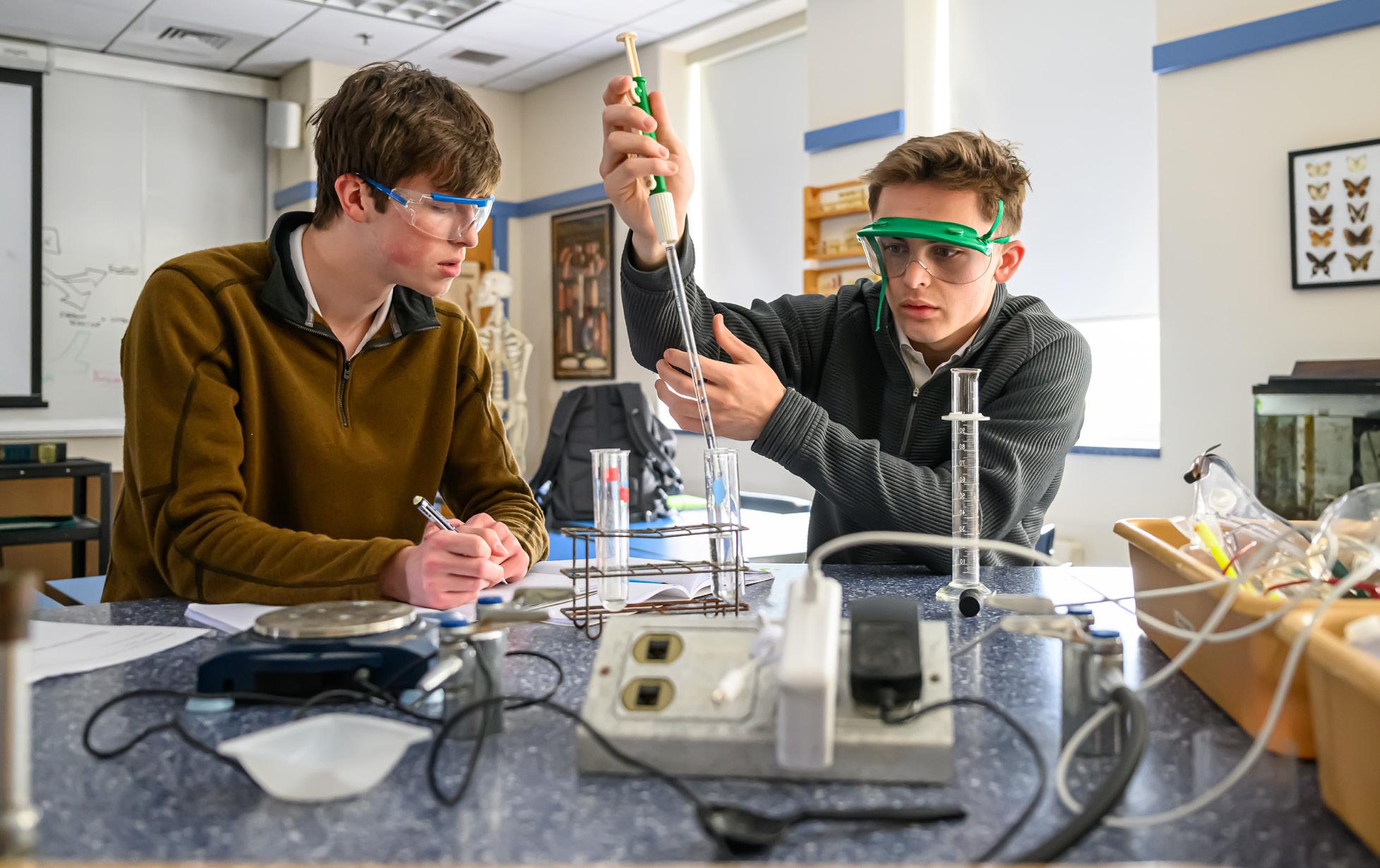
Tutorials
The Tutorial program allows boys in Class I to pursue for credit (and in lieu of a regular course) academic interests not included in the School’s regular course offerings. If a boy in the senior class has such an interest, he seeks out a teacher who shares it and who is willing to mentor him. The student and his faculty tutor then plan a course of study and propose it to the Director of Studies and the Curriculum Committee. If they approve the proposal, the tutorial becomes the boy’s fifth major course. Since a tutorial requires a student to assume more responsibility for his own learning than does a normal course, and since it is in a field of the student’s special interest, exceptional commitment and rigor are expected. Tutorials approved in recent years include: Classical and Modern Philosophy, Creative Writing, The Iliad, Dante’s Inferno, The TwentiethCentury Novel, Eastern Religious Thought, Molecular Biology, Differential Equations, Basics of Psychology, Melville’s Moby Dick, Masterpieces of Classical Music, and American Foreign Policy. The Tutorial program has also allowed members of Class I to pursue advanced study at nearby colleges and universities.
Independent Senior Project (ISP)
The Independent Senior Project (ISP) program provides each senior with the opportunity to spend the final four weeks of his academic year pursuing an endeavor of his own choosing, in place of his regular courses, and relatively free from other school demands. Each boy is expected to propose a project of interest to him; secure the cooperation of an off-campus advisor; and develop a detailed work schedule of 25 to 30 hours per week. Projects have been wide ranging, but tend to fall into five broad categories: volunteer work for a school or community service program; medical or scientific research; business or political internships; academic or creative independent studies; and apprenticeships with culinary, musical, theater or arts professionals. Each ISP proposal must be approved by a small faculty committee that assesses its feasibility and merits. Members of this faculty committee advise the seniors as they develop their proposals, and often help to connect them with RL alumni and parents in their fields of interest. Fundamental to the process, however, is the expectation that the boy himself take the initiative to thoughtfully plan and execute a successful project. At the conclusion of the project period, each senior makes a 25-minute oral presentation to an audience of students and faculty and submits a written reflection to the ISP committee. In order to enjoy a successful ISP, a senior must exhibit the self-discipline and motivation necessary to accomplish what he has set out to do. The freedom associated with ISPs in effect anticipates and requires boys to develop the self-reliance that college demands. Successful completion of an ISP is a graduation requirement.
54 | The Roxbury Latin School Catalogue 2023-2024
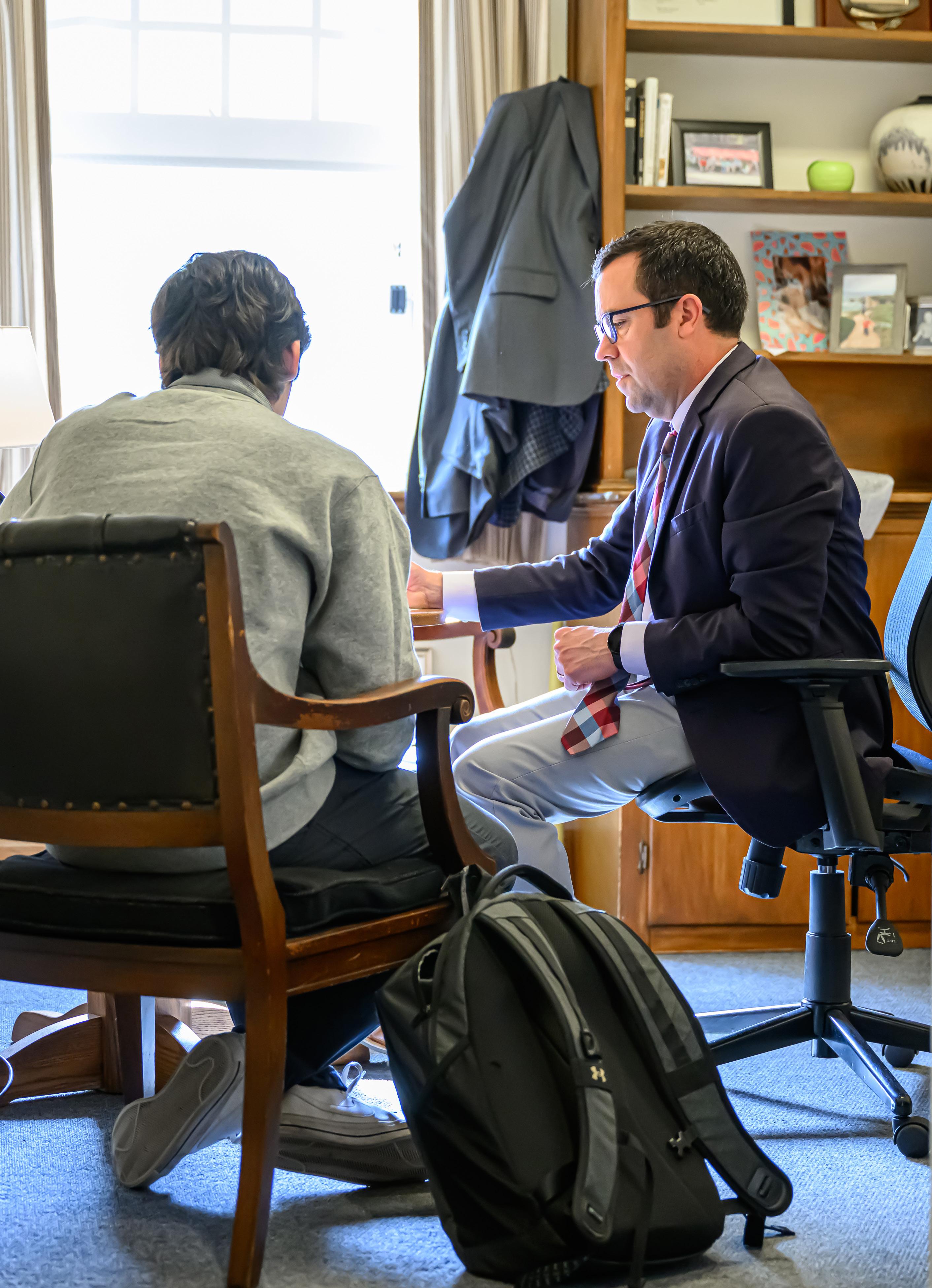
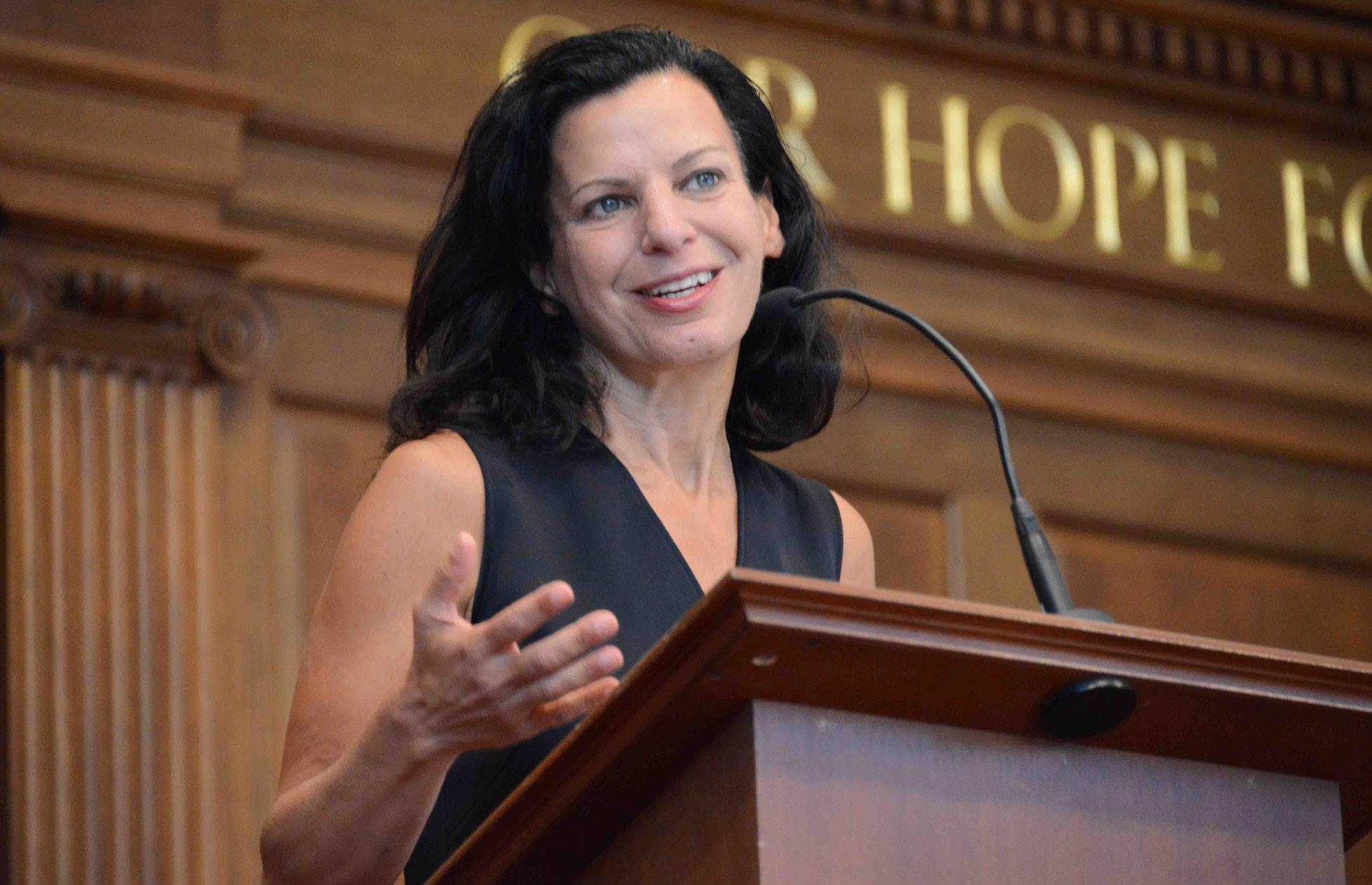
Hall Program
One of our most valuable resources is the stream of distinguished speakers who come to Roxbury Latin to share their real-world experiences in Hall (our term for all-school assemblies). Several times each month, throughout the school year, guest speakers—expert and accomplished leaders, thinkers, researchers, artists, and public servants—speak to the boys and faculty on a broad range of topics. In the best classical tradition, Halls—and the exchange of ideas they inspire—virtually always conclude with a question and answer session involving the student audience, inspiring conversation that continues well after the bell has rung for the start of classes. Hall speakers and performers tap the rich talent of Boston and beyond, including Roxbury Latin’s own distinguished alumni. Frequently, these guests stay with us on campus through the morning to attend classes or meet with smaller groups of students, continuing the lively exchanges sparked in the morning’s Hall.
Formal occasions take place in Rousmaniere Hall, one of RL’s iconic spaces, rich in history. These special programs mark noteworthy moments in the life of the school—opening of term, Founder’s Day, Exelauno Day—and in the life of the country—Veterans Day, Thanksgiving, Martin Luther King Day. These Halls often include readings delivered by students and faculty, and much singing by everyone in attendance.
56 | The Roxbury Latin School Catalogue 2023-2024
Juliette Kayyem (2021)
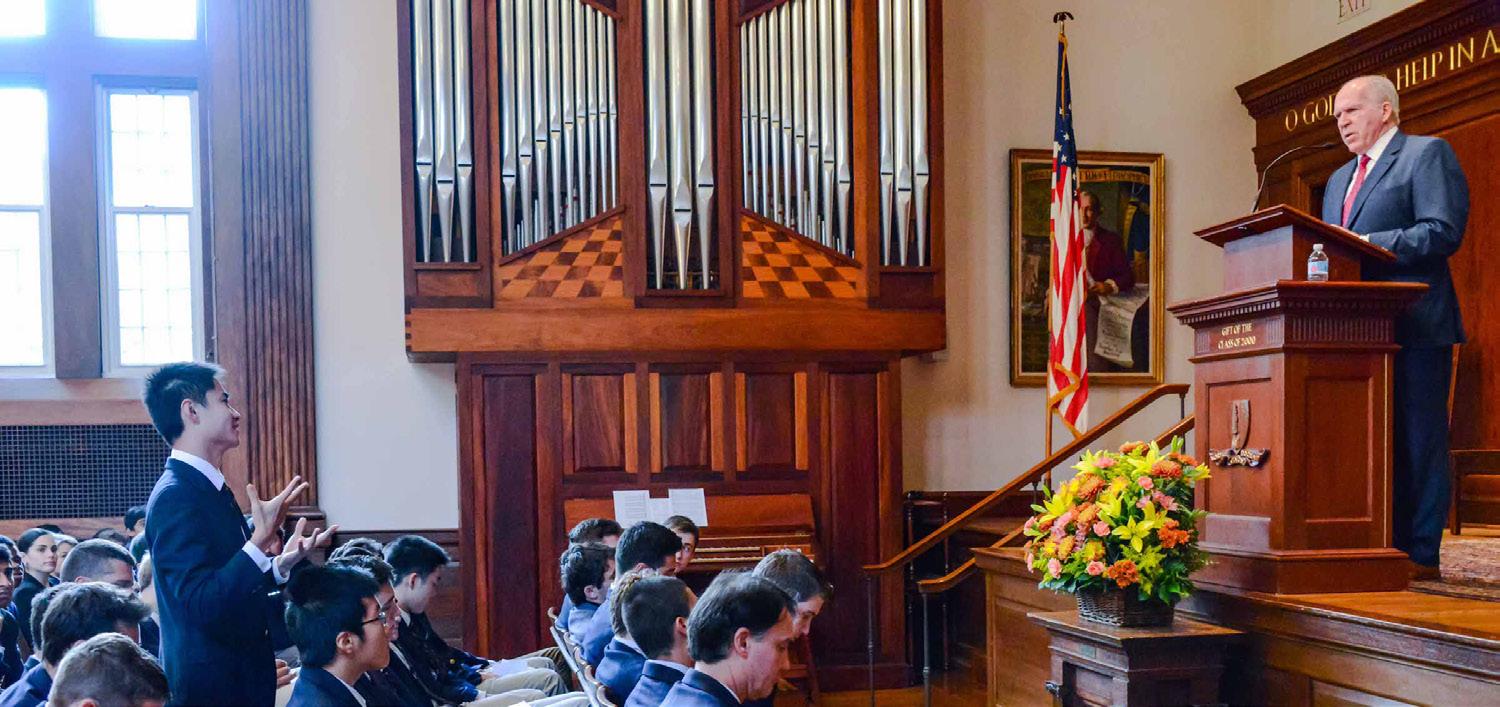
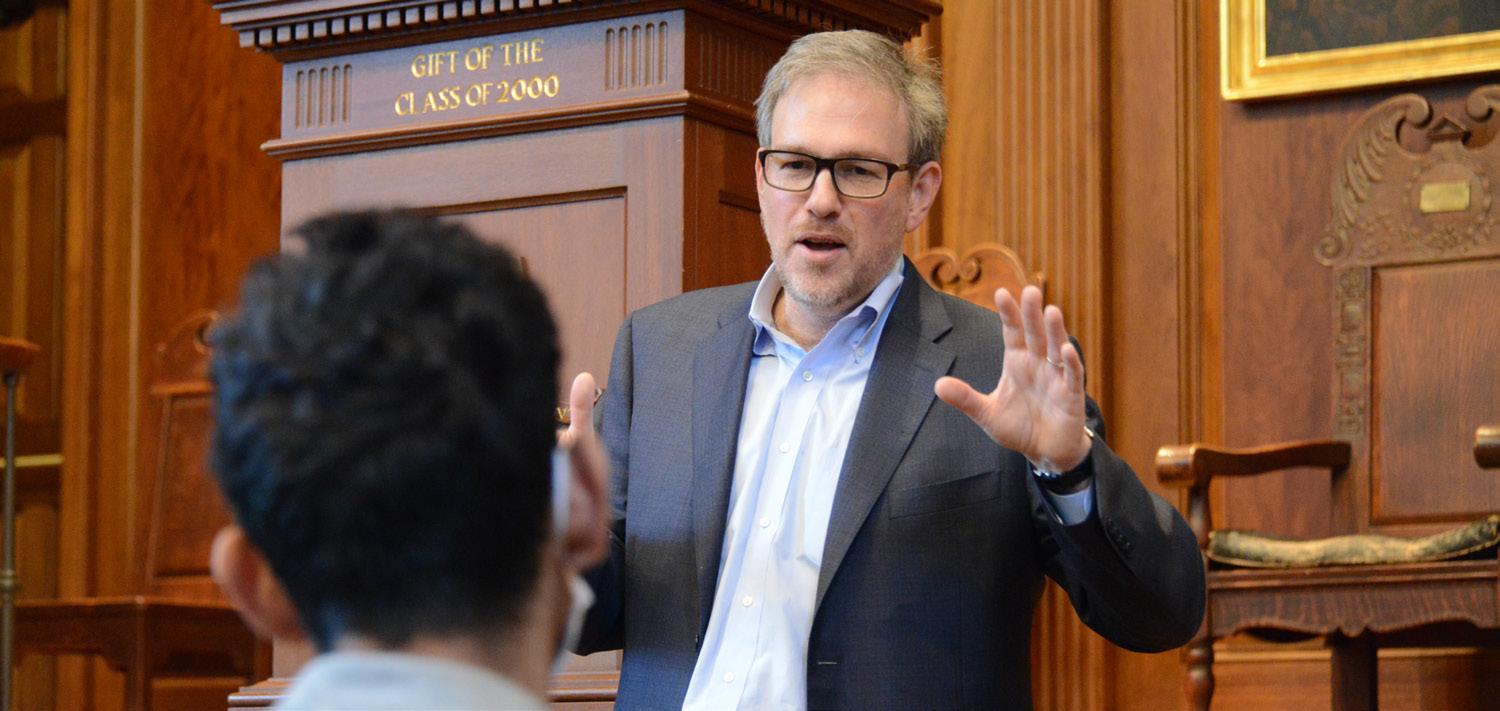
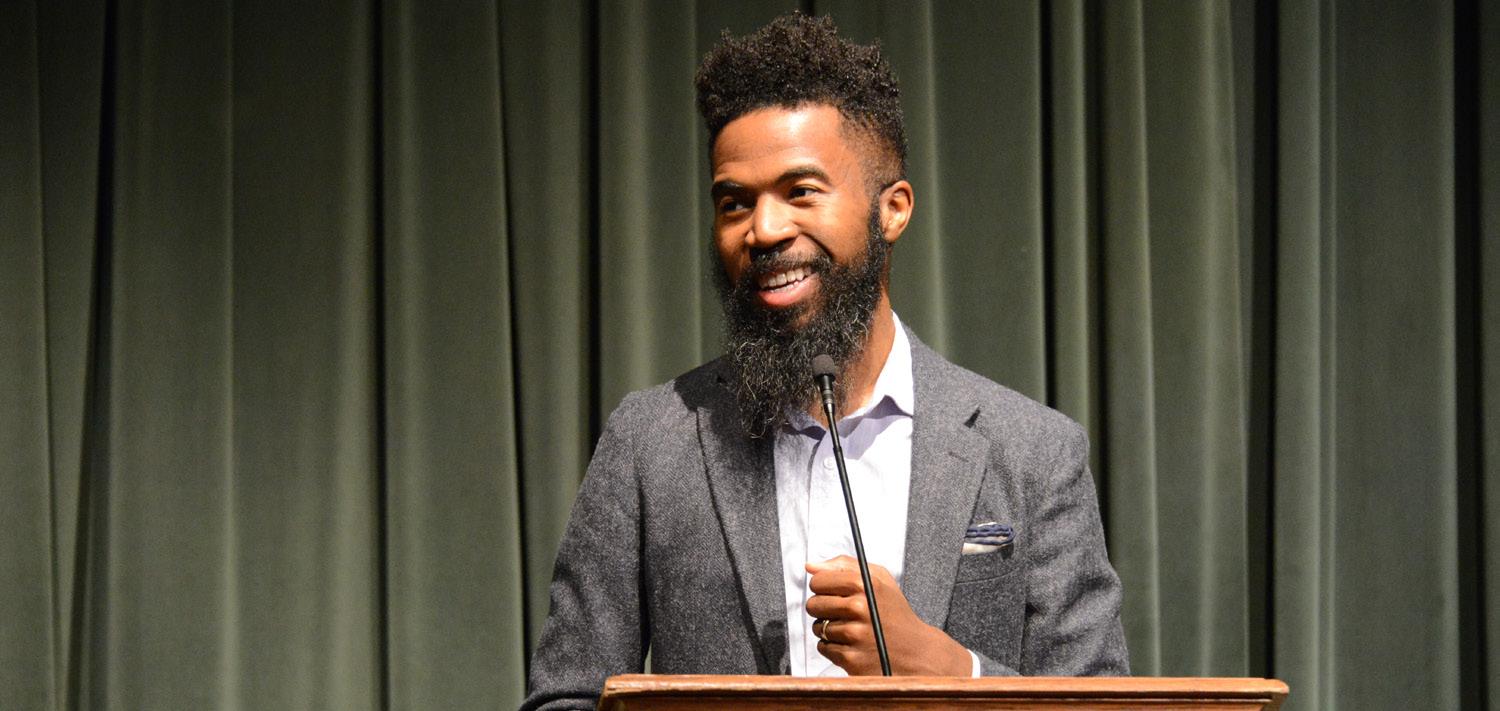
57
Bret Stephens (2023)
John Brennan (2018)
Joshua Bennett (2023)
Conversational or panel-style Hall presentations, involving more than one guest, or those that include audio/visual accompaniment take place in RL’s intimate Smith Theater.
Thanks to a robust endowed speakers program, we host guests and lecturers throughout the year who bring to campus expertise that illuminates a range of important topics or areas of study: the Smith Scholar offers year-long engagement on a range of subjects, from climate change to LatinAmerican literature to race relations; the Jarvis International Lecturer focuses on topics of global and socio-political importance; the Berman Visiting Artist brings distinguished figures in the arts; and the Wyner Lecturer highlights important social issues, just to name a few.
Throughout the year, we also hear from members of our own community—students and faculty— who are regularly invited to deliver a talk to the entire school, marking a special moment or honor.
Some of our recent Hall speakers include:
John Brennan, Former Director of the CIA
Charlie Baker, Former Governor of Massachusetts
Juliette Kayyem, Homeland security expert
Esther Duflo, Nobel Prize-winning economist
Stephen Hoge, President of Moderna
Gina McCarthy, Former Administrator of the EPA
Joshua Bennett, Renowned spoken word poet and author
Lisa Monaco, U.S. Deputy Attorney General
Juan Enriquez, Futurist, technologist and author
Rob Gibbs, Famed Boston street artist
Matthew Desmond, Pulitzer Prize-winning author of Evicted
Stefan Jackiw ’03, Internationally renowned violinist
Jonathan Edwards, American folk singer
Lisa Piccarillo, Award-winning mathematician
Clint Smith, Poet and best-selling author
Mohamad Hafez, Syrian artist and activist
American Shakespeare Center, whose members performed Antigone
Bret Stephens, Famed conservative New York Times columnist
Andrew Sullivan, Award-winning journalist and political commentator
Mansoor Shams, U.S. Marine veteran and Muslim youth leader
Robert Gates, Former U.S. Secretary of Defense
58 | The Roxbury Latin School Catalogue 2023-2024

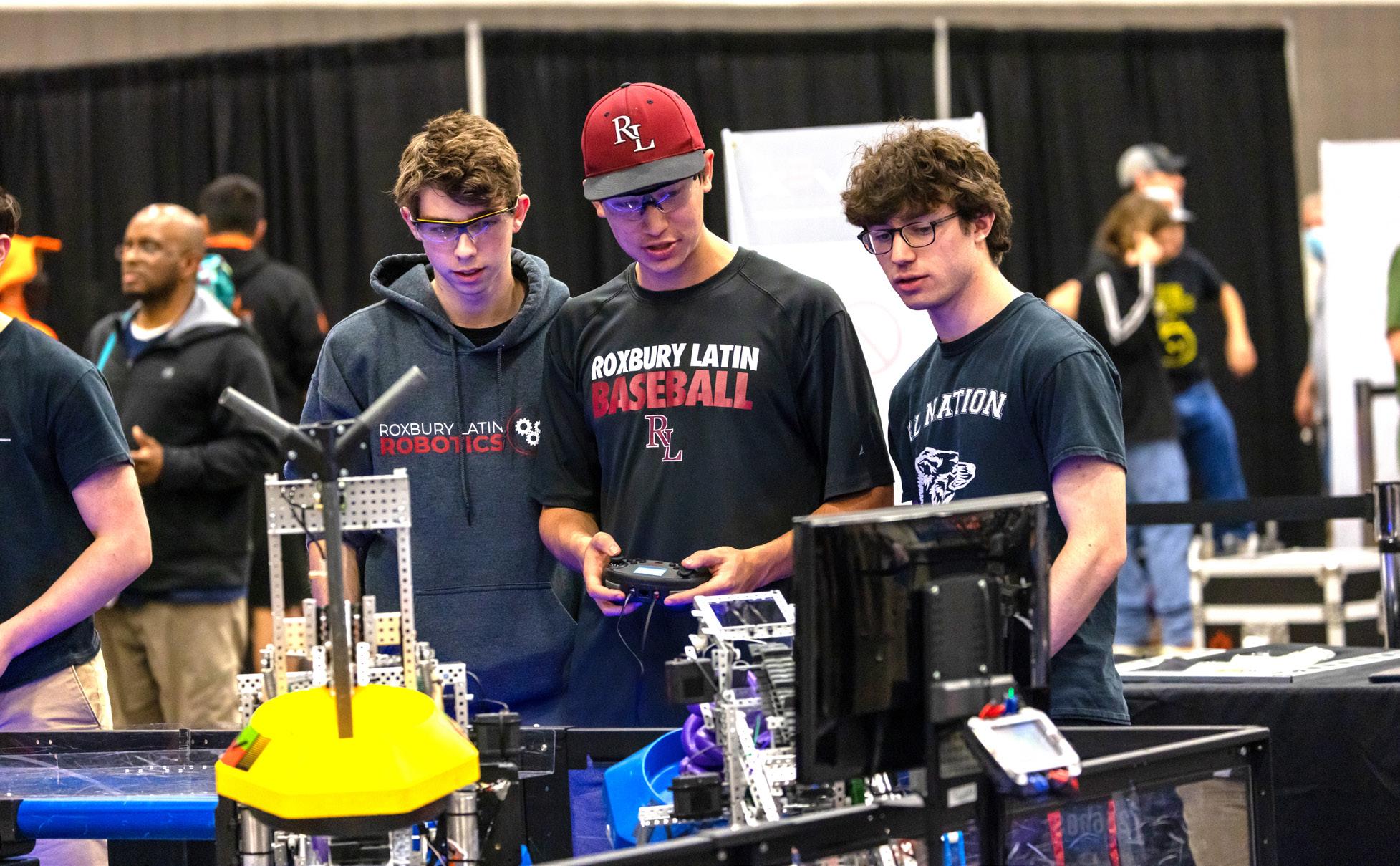
Beyond the Classroom: Activities
Chess
Chess at Roxbury Latin is predominantly an independent activity. Any student may play any time he is free to do so, as sets are always available. For those interested in more formal competition, RL is a member of the South Shore Interscholastic Chess League (SSICL) which is a consortium of local private and public schools. Competitive chess is considered a winter activity in the SSICL. For the RL team there are typically eight matches during the season, and practices are held once a week. RL players’ rankings are listed on an in-house live document (ladder) which is based on the outcomes of independently scheduled games. The top 5 to 7 players on the ladder compete in the SSICL matches. In some years there is also an individual tournament (Dempsey) at the end of the season.
Classics Club
The Classics Club was founded to promote enthusiasm for Classics by offering opportunities beyond the classroom for boys to broaden their knowledge of the languages and daily lives of the Greeks and Romans. Weekly meetings focus on preparation for Certamen competitions, which involve rapidfire questions on topics ranging from the minutiae of Latin grammar and vocabulary, Latin-based
60 | The Roxbury Latin School Catalogue 2023-2024
etymology, Roman history and culture, and classical mythology in a Jeopardy-like setting. The group attends various competitions in Massachusetts, but also hosts an intramural competition in the fall.
Debating and Public Speaking
Debating and public speaking help boys learn skills of communication, persuasion, logic, critical thinking, research, the use of evidence, and thinking on their feet. Roxbury Latin boys compete among themselves and with students from other schools both in traditional debate formats (e.g., Oregon and Parliamentary) and in a wide range of public speaking events (e.g., persuasive, after dinner, impromptu, extemporaneous speaking, and interpretive reading). Through these competitions, boys gain self-confidence in performing before others and also experience the excitement and exhilaration created by the clash and interplay of competing ideas.
In our program, first-year debaters and public speakers learn basic public speaking skills and forensic theory, competing in two interscholastic debating tournaments. After completing the firstyear program, boys advance to novice and advanced level debating in a wide array of interscholastic competitions.
Roxbury Latin public speakers and debaters compete both regionally and internationally. Most New England tournaments are sanctioned by the Debating Association of New England Independent Schools, founded at Roxbury Latin in 1978. Canadian and overseas tournaments are coordinated by the International Independent Schools Public Speaking League, of which Roxbury Latin is a charter member. In 1989 and 1995, the Roxbury Latin community hosted the League’s annual North American competition, attended by nearly 40 schools from the United States, Canada, and several other countries. In 28 of the last 30 years, at least one Roxbury Latin boy has qualified for the World Individual Debate and Public Speaking Competition.
Host schools in recent years are located in Germany, Botswana, England, Cyprus, South Africa, Australia, Lithuania, Canada, and Hong Kong. In 2022-2023, more than 70 boys in Classes I-IV were involved in debating and public speaking throughout the year. Roxbury Latin speakers and debaters entered 13 tournaments, winning many team and individual awards. Declamations—the dramatic public recitation of memorized passages of Greek and Latin—are presented annually by boys of every class on Exelauno Day, March 4th. The day’s name is a play on the word exelauno, the recurring verb (“march forth”) in Xenophon’s Anabasis. Boys compete before the entire School for the David Taggart Clark prizes in Greek and Latin declamation.
Dramatics
The Roxbury Latin dramatics program is anchored in the intimate Smith Theater, a well-appointed facility with unobstructed sight lines, fly and trap capabilities, an optional orchestra pit and excellent
61
acoustics for student voices. Each year features three faculty-directed productions: the Senior Play, featuring actors in Classes I-III (with girls from neighboring schools taking the female roles); the Musical, usually open to students from each school’s upper four classes, alternating yearly with a classical production (Comedy of Errors in 2019); and the Junior Play in the spring, for performers in Classes IV-VI (also including girls from area schools). All on-stage roles and most of the technical work—set design and construction, lighting, and sound—are performed by students. In many of the past two dozen years, there has also been at least one full-length evening of theater initiated and directed by a Class I boy, an endeavor that will be available as an Independent Study Project (ISP) in the 2022-2023 school year.
In 2022-2023 the Senior Play was Love and Information by Caryl Churchill, followed by the Junior Play The Little Prince by Antoine de Saint-Exupéry (adapted for the stage by Rick Cummings and John Scoullar). Roxbury Latin boys took part in a production of Mamma Mia! at the Winsor School during the winter of 2023. In the year prior, RL presented productions of Frankenstein by Nick Dear, followed by the musical Catch Me If You Can in the winter of 2022. The Junior Play in the spring of 2022 was an original comedy by faculty member Mike Pojman—Chalk is Cheap—honoring the 375th anniversary of the founding of the school.
ECOS
Taking as its motto “Think globally, act locally,” the Environmentally Concerned Organization of Students (ECOS) works to raise awareness about environmental issues and to reduce the impact that RL has on the environment. Students who are involved in ECOS support the school’s recycling efforts by emptying recycling bins across campus and by organizing the collection and composting of RL’s food waste. ECOS also promotes stewardship of the RL forest by hosting events in the fall and spring to clear trails and clean up trash. In addition to these ongoing efforts, each year ECOS focuses on a few specific initiatives to reduce RL’s ecological footprint. These have included raising money to support the purchase of a new bike rack on campus, providing eco-friendly, reusable water bottles for the entire school to cut down on plastic waste, collecting textiles for recycling, and initiating a Paper Challenge to reduce paper use across the school.
Habitat for Humanity
A student-run, student-led organization founded in 2007 to aid the mission of Habitat for Humanity International, the RL chapter of Habitat for Humanity works in partnership with Greater Boston Habitat and other local affiliates to fulfill the four functions of a campus chapter: building, fundraising, advocating, and educating. The group has sent many student volunteers to work at local home building sites in and around Greater Boston. In order to take part in these builds and support
62 | The Roxbury Latin School Catalogue 2023-2024
local affiliates, the group has raised tens of thousands of dollars through bake sales and hosting a three-on-three basketball tournament in the winter. In addition, Class I boys may work as interns with Greater Boston Habitat as an Independent Senior Project (ISP) at the end of their senior year.
Model United Nations
In Model United Nations (MUN), boys attend conferences along with students from many other public and independent schools from across the nation. Each school represents one or more member nations in the various policy-making bodies of the U.N., and each participant plays the role of a diplomatic “delegate.” To prepare for these simulations, each boy must research his country and its role in the international community, the problems on his committee’s agenda, and the procedures, capabilities, and limitations of the U.N. Delegates must work together to write up the results of their research as part of a position paper, submitted several weeks before each conference. At the conference sessions, delegates articulate their country’s policy on each agenda item and seek to implement it through consensus with representatives of other countries. During several days of debate and political negotiation, delegates work together to formulate and pass resolutions on such topics as nuclear disarmament, economic cooperation and development, the preservation of the global environment, international efforts to halt drug trafficking, etc.
Musical Groups
Students at all levels may audition for one or more of the school’s musical ensembles.
The Glee Club is open by audition to boys in Classes I-IV. It rehearses during the academic day and performs several concerts during the school year—occasionally with girls’ choral groups and with orchestral accompaniment. The Glee Club repertoire includes a selection of sacred music, folk songs, musical theater pieces, and traditional songs for men’s chorus. Each year the Glee Club collaborates with a girls’ chorus to perform a major choral work. Recent performances have included Fauré, Requiem; Rutter, Gloria; Mozart, Coronation Mass; Brahms, Requiem; Bernstein, Mass; Schubert, Mass in G; Thompson, Frostiana; Mozart, Requiem; Vivaldi, Gloria; Haydn, Lord Nelson Mass; and Mendelssohn, Elijah. The Glee Club also makes a spring tour—most recently to Nashville and Memphis, Tennessee; Austria and the Czech Republic; Los Angeles; Washington, D.C.; and Puerto Rico. Nearly 100 boys participate in the Glee Club.
The Latonics, made up of about 15 singers selected from the Glee Club, perform challenging a cappella music including madrigals, motets, folk songs, spirituals, and contemporary popular songs, often in original arrangements by group members. They rehearse twice a week after athletics practice and maintain an extensive performance schedule. Over the years, the Latonics have produced 11 albums.
63
The Junior Chorus is open by audition to boys in Classes V-VI. Its repertoire includes three- and four-part arrangements, both accompanied and a cappella. The Junior Chorus rehearses once a week. It performs in December and April at Glee Club concerts.
The Jazz Band, Chamber Ensembles, and Guitar Ensemble are available to those boys who demonstrate proficiency in instrumental performance. The makeup of these ensembles varies in accordance with student talent and interest. The Jazz Band, Chamber Ensembles, and Guitar Ensemble rehearse once a week after sports practices and perform several times during the academic year. Jazz Band repertoire ranges from Big Band standards to blues, funk, and rock fusion. A Jazz Combo, drawn from the Jazz Band, performs more challenging repertoire. Guitar Ensemble’s repertoire is rooted in the classic rock tradition. Additionally, through the chamber music program, instrumentalists are combined and coached in some of the great Classical repertoire.
Each term, by arrangement with the Director of Music, boys with special musical skills or talents perform in recital before the school. These performances often include chamber ensembles gathered by the Director of Music.
Publications
Students produce three school publications. The Tripod, the school newspaper, is published five times each year. Under the leadership of senior editors, students from all classes gather news, take photographs, and write articles. The editors are responsible for content and layout. Forum, a magazine of literature and the arts, is published twice each year. It includes short fiction, poetry, photography, and artwork by students of all classes. It, too, is student designed and edited. At the end of each year, the senior class publishes a Yearbook, whose contents include pictures and articles of both the highlights of the year and the saga of the class’s career at Roxbury Latin. These publications reflect the spirited camaraderie, vital creative energy, and warm humor characteristic of our students.
As with other school activities, The Tripod, Yearbook, and Forum depend upon and enjoy the widespread support of students from all quarters. Typically, in addition to their extensive publications duties, editors are varsity athletes, members of the Glee Club and Model U.N., and lead actors in school plays. We believe that our student publications draw strength from the broadened perspectives brought to them by boys with such wide-ranging interests. In addition to the journalistic experience that they gain through writing and editing, boys who work on school publications are also afforded the opportunity to learn modern techniques of electronic layout and design and digital photography. All three student publications are produced using Adobe Photoshop and InDesign desktop publishing software. No prior knowledge of these programs is required or expected, however; students learn on the job.
64 | The Roxbury Latin School Catalogue 2023-2024
Robotics
The Robotics Team meets from mid-fall through early-spring and currently aligns itself with VEX Robotics, a national and international competitive robotics organization. During the past several seasons, our student-led team of boys in Class IV through Class I has designed, built, and coded robots that have regularly qualified for the VEX Southern New England and World Championships. Last year, the team traveled to Dallas, Texas, to compete in the World Championship. Boys in Classes V and VI meet weekly throughout the fall and winter for a guided introduction to VEX Robotics.
Community Service
Concern for others, one of the school’s paramount values, must by its very nature be voluntary. We strongly encourage students to participate in school-wide, class-by-class, and individual service programs, and the overwhelming majority of students do so. Each class selects student community service representatives who, with help from faculty and staff, coordinate service projects for the year. Each year, Class VI boys make regular visits to St. Theresa’s School down the hill to interact with preschoolers. In recent years, the class has also participated in Boston’s Winter Walk, raising dollars and awareness in support of the homeless. Class V boys support hunger initiatives by working at a local food bank and participating in the Walk for Hunger. Class IV visits the elderly at the Deutsches Altenheim twice a month, collaborating on special seasonal projects for the residents throughout the year. Class III boys work at Haley House, an organization serving the homeless and low-income residents of Boston. Each month, the boys plan, shop for food, cook, and serve a Sunday lunch for elderly guests. Members of Class II devote many hours preparing meals with Community Servings in Jamaica Plain, meals that are sent out to various food kitchens. Six Saturday mornings throughout the school year, seniors prepare and serve breakfast for the residents of Pine Street Inn residential shelter in Jamaica Plain. Seniors also regularly visit the Perkins School for the Blind, planning and taking part in various activities with visually impaired students throughout the year. Also, through the school’s Ave Atque Vale Society, boys in the senior class serve as pallbearers at graveside services for homeless or indigent men and women who have no family to bury them. Roxbury Latin boys have assisted at nearly 100 funerals over recent years.
In addition to these class projects, there are several all-school projects. The entire school community works together in fundraising initiatives to benefit Medicines for Humanity. We also raise money to provide an orphan scholarship at Maru-a-Pula School in Botswana. The RL chapter of Habitat for Humanity helps build homes for Boston families on several weekends throughout the year. Students recently participated in an all-school build-a-bed project through
65
A Bed for Every Child, assembling 78 beds for children in need throughout Massachusetts. Each year, Technology Tutoring brings senior citizens into the school’s computer lab for weekly one-on-one tutoring sessions with student volunteers to introduce them to the wonders of the Internet. Each varsity athletic team also commits to a day of service relevant to a given sport.
In the fall, Classes V and VI spends a day in service in Boston communities. Class V boys, accompanied by parent volunteers, do seasonal maintenance at Hale Reservation while Class VI boys volunteer with Historic Boston Cemeteries to tend the Founder’s grave and rake leaves at the Eliot Graveyard in Roxbury.
During the year, students organize food drives, clothing drives, and holiday toy drives. In addition to these structured, school-sponsored programs, many boys participate in service activities through their churches, synagogues, and community organizations. We also offer a number of in-house service opportunities. Many older boys tutor younger boys through our extensive tutoring program, and most boys serve as admission tour guides throughout the year. Members of Class I serve as big brothers to new boys, and many members of the senior class choose service work for their four-week Independent Senior Projects. All are expected to lend a hand when called on in the course of the school year.
Travel
In addition to a full program of courses in a range of academic areas, the school complements this curricular commitment with opportunities for travel—domestically and abroad. These trips are available to all boys, regardless of their families’ ability to pay, and represent a concerted effort to open up the world to our boys, even as their intellectual and ethical worlds are defined on a daily basis. School-sponsored trips over the years have taken RL boys to Senegal, Iceland, Costa Rica, countries throughout Europe, Quebec, the Dominican Republic, Botswana, and Australia, and throughout the U.S.—including wilderness adventures to the Rockies, the Pacific Northwest, and Alaska, and a week-long service project at the Blackfeet Indian Reservation in Montana. In the context of these travels our students have practiced their foreign languages, shared their musical gifts, offered service, learned different cultures, and forged new relationships. Boys studying French and Spanish have an opportunity to participate in RL’s immersion programs in France and Spain during the month of June to study their respective foreign languages through homestays and academic work.
66 | The Roxbury Latin School Catalogue 2023-2024
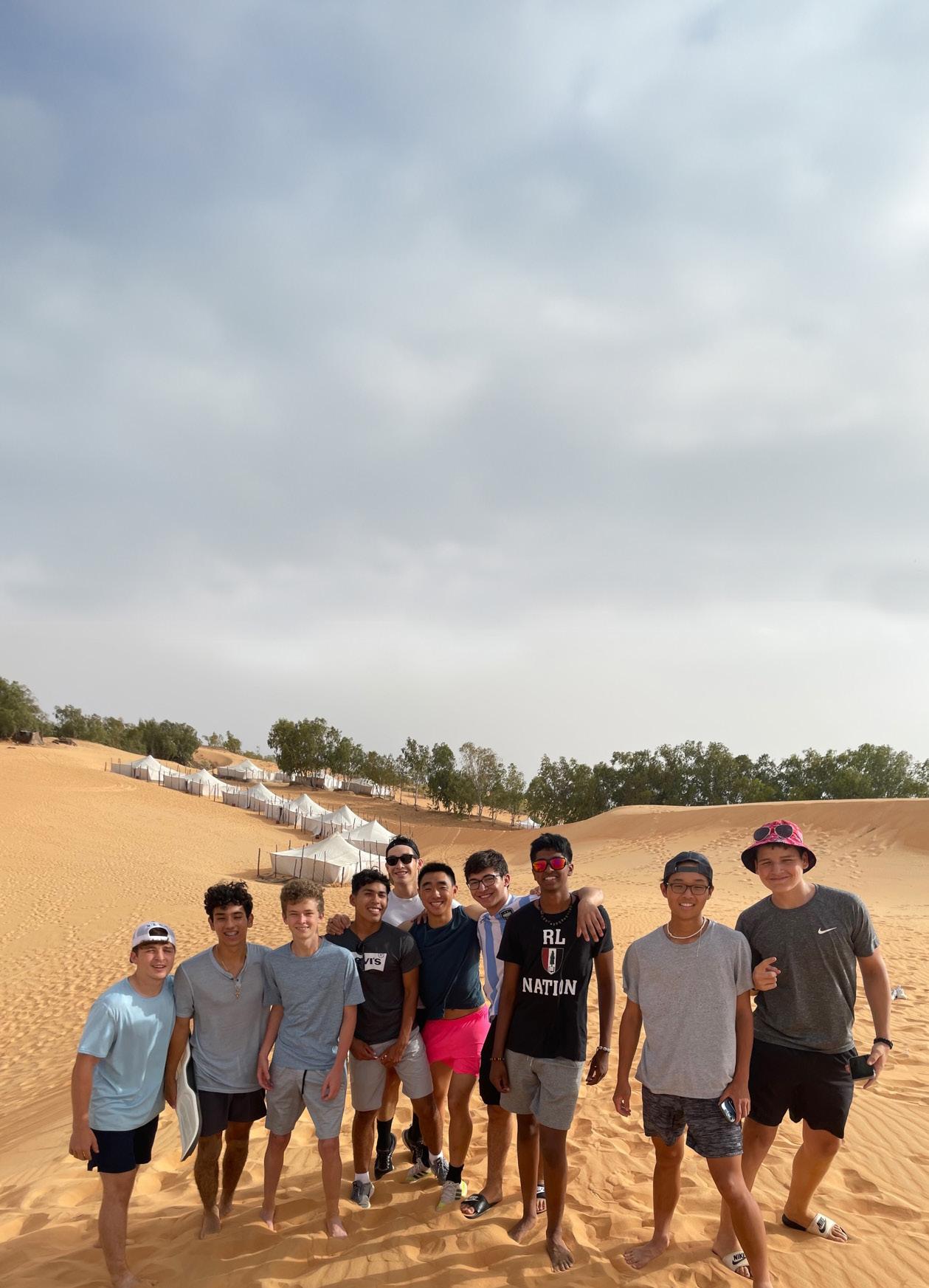

Athletics
The athletic program at Roxbury Latin strives to realize the Classical maxim mens sana in corpore sano. Our mission is intimately connected to the fundamental values and guiding principles of the school. Staffed almost exclusively by faculty members, the department promotes the pursuit of excellence, the development of loyalty and good sportsmanship, perseverance and resilience. Games, practices, and all other team activities continue the work of the academic day; we expect our boys to give their best effort, work well with their teammates, improve their skills, and sharpen their contributions, and—of course—find pleasure in the process. As a small school, we want our students to be generalists and not specialists—in athletics as in all other respects. Thus, we discourage students from seeing sports at Roxbury Latin as a self-serving exercise to hone their “pre-professional” skills or credentials for the next level of competition. While we hope that some of our graduates will be fortunate enough to participate in college athletics, we ask our athletes to put aside personal aspirations and individual ambitions in service to the greater community. For our teams to be competitive, we
68 | The Roxbury Latin School Catalogue 2023-2024
need the participation and involvement of a large number of students, and we enjoy our most consistent competitive success when our best athletes are “multiple” rather than “singular.” Our lower teams are as important as our varsity teams and we “grow” our own athletes.
In 2022-2023, six out of ten varsity teams had winning records. Varsity Cross Country finished its dual meet season with a 16-1 record and went on to place 4th at New Englands. While Varsity Soccer did not have the season it had hoped for, it did show its potential by defeating Rivers, the 2nd place ISL team and NEPSAC Tournament semifinalist by a score of 4 to 1 in its season finale. Varsity Wrestling ended the dual meet season with an impressive 23 wins and one loss record to place second in the ISL regular season standings. The team went on to capture 2nd place at the Graves-Kelsey Tournament, with 12 wrestlers scoring points by finishing in the top six at the tournament. It also had a strong showing at the New England Tournament, finishing fifth where seven wrestlers earned All-New England recognition, and seven qualified for the National Prep Tournament. On Winter Family Night, we were treated to a clean sweep with all three varsity teams recording victories: Basketball over BB&N, Hockey defeating Austin Prep, and Wrestling beating LCA. Finally, this spring, all four varsity teams finished with winning records. The Track and Field team had a dominant regular season, finishing with a record of 10-2, placing a respectable 5th at ISL’s, and just narrowly missing a 2nd place finish at the New England Division II championship, finishing one point behind Suffield Academy. The Varsity Baseball team finished the season at 12-5 overall with an 11-4 ISL record, good enough for 3rd place in one of the most competitive leagues in the state. Varsity Lacrosse had its best finish in years and achieved an 11-7 overall record and 9-5 ISL record while capturing the championship of the Consolation bracket of the newly established ISL Tournament. The Varsity Tennis team finished its season with an 20-1 overall record and secured its 8th ISL crown in 11 years! The team went on
Fall Season
Cross Country: Varsity, JV, Junior (Classes VI-IV)
Football: Varsity, Third, Junior (Classes VI-V)
Soccer: Varsity, JV (A & B), 3rd (Class IV), 4th (Class V), 5th (Class VI)
Winter Season
Basketball: Varsity, JV, 3rd (Class IV), 4th (Classes VI-V)
Hockey: Varsity, Junior (Classes VI-IV)
Wrestling: Varsity, JV, Junior (Classes VI-IV)
Spring Season
Baseball: Varsity, JV, 3rd (Class IV), 4th (Class V), 5th (Class VI)
Lacrosse: Varsity, JV (Classes IV-II), 4th (Classes VI-V)
Tennis: Varsity, Junior Varsity, Junior (Classes VI-IV)
Track and Field: Varsity and JV combined (Classes IV-I)
69
to defeat Milton and Belmont Hill in the quarter-final and semi-final rounds of the New England tournament, before falling to eventual champion Hoosac School in the finals. The overall record for the tennis team over the past nine years is a remarkable 155 wins, 16 losses, and one tie. Teams across all grades compiled an excellent record of 284-145-23 in the 2022-2023 school year. If RL were a batter he would be hitting .628.
As satisfied as we are with such a record of achievement, what matters most to us is the way our boys play—how hard they compete and how they handle themselves, win or lose, season after season. Our athletes are smart; they are well coached; they compete hard; and they wear the school jersey proudly. They understand the “lessons” of competition (and are generally quite good at mastering them) and they accept responsibility for being good ambassadors of the school. They understand that all some people may ever know about Roxbury Latin is what they infer from watching our boys play games. They know that they represent the values, standards, and traditions of the school and act accordingly. Sportsmanship awards from the league, which our teams have won over the years, matter every bit as much as the league championship titles that sometimes come our way.
Requirements
Boys in Classes III-I are required to participate on an interscholastic team in two out of three seasons or complete an Independent Physical Education commitment. Boys in Classes VI–IV must participate on a team in the fall and either the winter or spring. Additionally, boys in Class V and VI take physical education classes twice weekly throughout the school year. The curriculum is based on wellness and endeavors to help boys develop a sound body, sound mind, and sound habits. Students are exposed to nutrition, weight training, mindfulness activities, and various sports throughout the year.
Sports Offered
Roxbury Latin, for such a small school, offers a varied athletic program. Ten interscholastic sports are available for students to participate in during the school year. The sports offered and teams (levels) of participation are as listed on the previous page.
70 | The Roxbury Latin School Catalogue 2023-2024
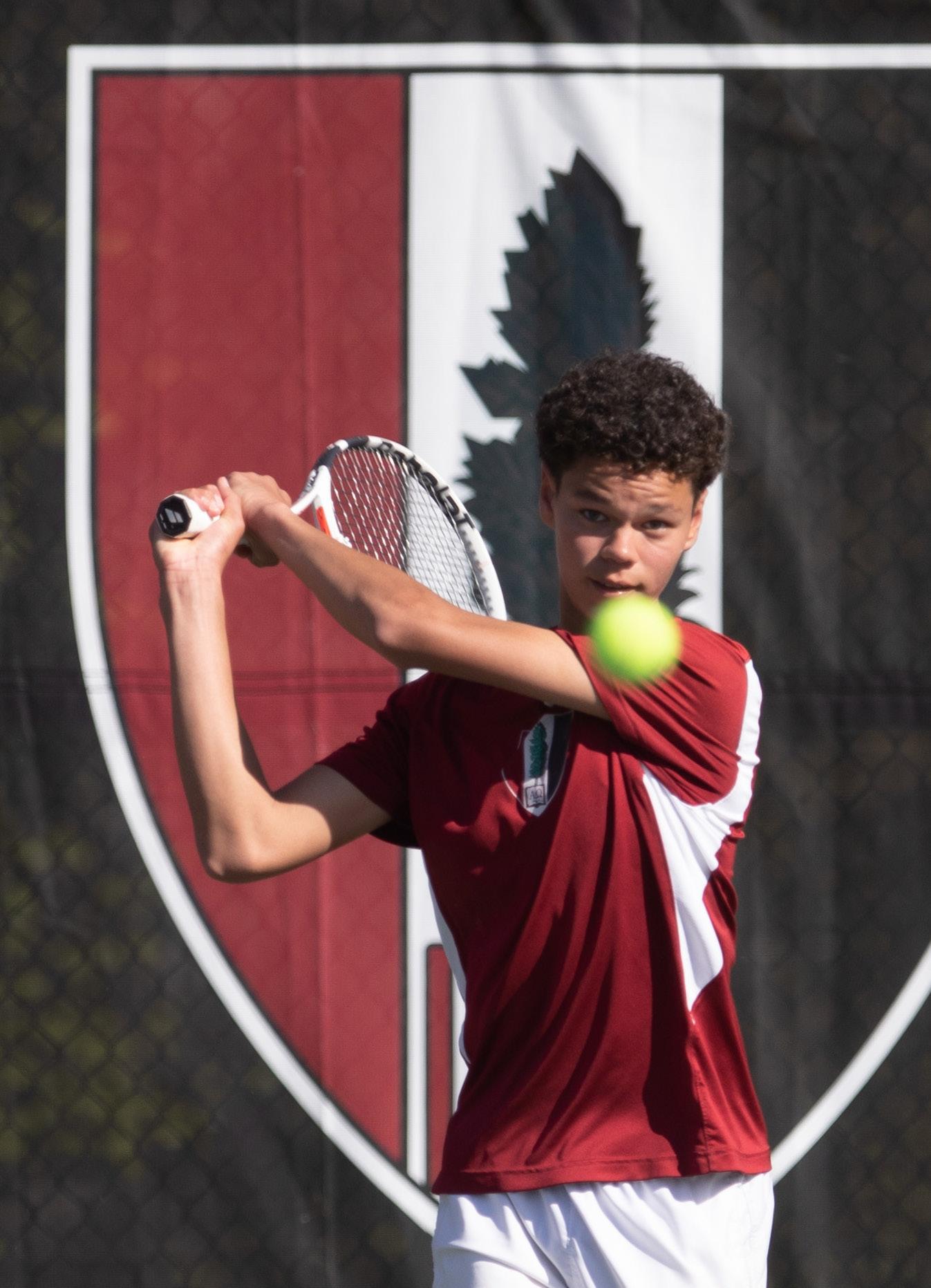
Admission
Roxbury Latin seeks students of good character and demonstrated academic ability and achievement who want to take advantage of the opportunities for growth and development at Roxbury Latin and who will bring to the school a broad range of backgrounds, talents, and interests. Most students enter the school at grade 7 or grade 9, but a few boys may be admitted to other grades each year.
1. Those who are interested in joining our mailing list and receiving information about the school should fill out a request form on our website, or contact Carolyn Powell in the Admission Office either by email (admission@roxburylatin.org) or by telephone (617.477.6317).
2. Those who are interested in applying to the school should visit our website where you will be directed to submit an inquiry form. You will receive an email with instructions enabling you to create an account to access our online application. The deadline for submitting the application to Roxbury Latin is January 15, 2024. We encourage families, however, to submit their applications early in the fall of the year prior to entry. Applications received after the deadline may be reviewed, but the likelihood of admission is reduced. There is no application fee.
3. Applicants for grades 7 and 8 are required to take the ISEE (Independent School Entrance Exam). Applicants for grade 9 or above are required to take the SSAT (Secondary School Admission Test). Information about how to register for the ISEE or the SSAT tests can be found on our website.
4. A campus tour and interview is required of all applicants. Once you have submitted the Campus Visit Request Form, you will be able to schedule a tour. During this visit a student gives the applicant and his parents a tour; a member of the Admission Committee interviews them separately; and the applicant takes a short aptitude test. The entire visit is expected to last no more than two hours.
Candidates will be informed of whether or not they have been admitted through Ravenna on or around March 10, 2024. Those admitted have until April 10, 2024, to contact the Admission Office with their decision. Unsatisfactory conduct or schoolwork between the time a boy is accepted and the time he registers in the fall may result in the withdrawal of the admission.
72 | The Roxbury Latin School Catalogue 2023-2024
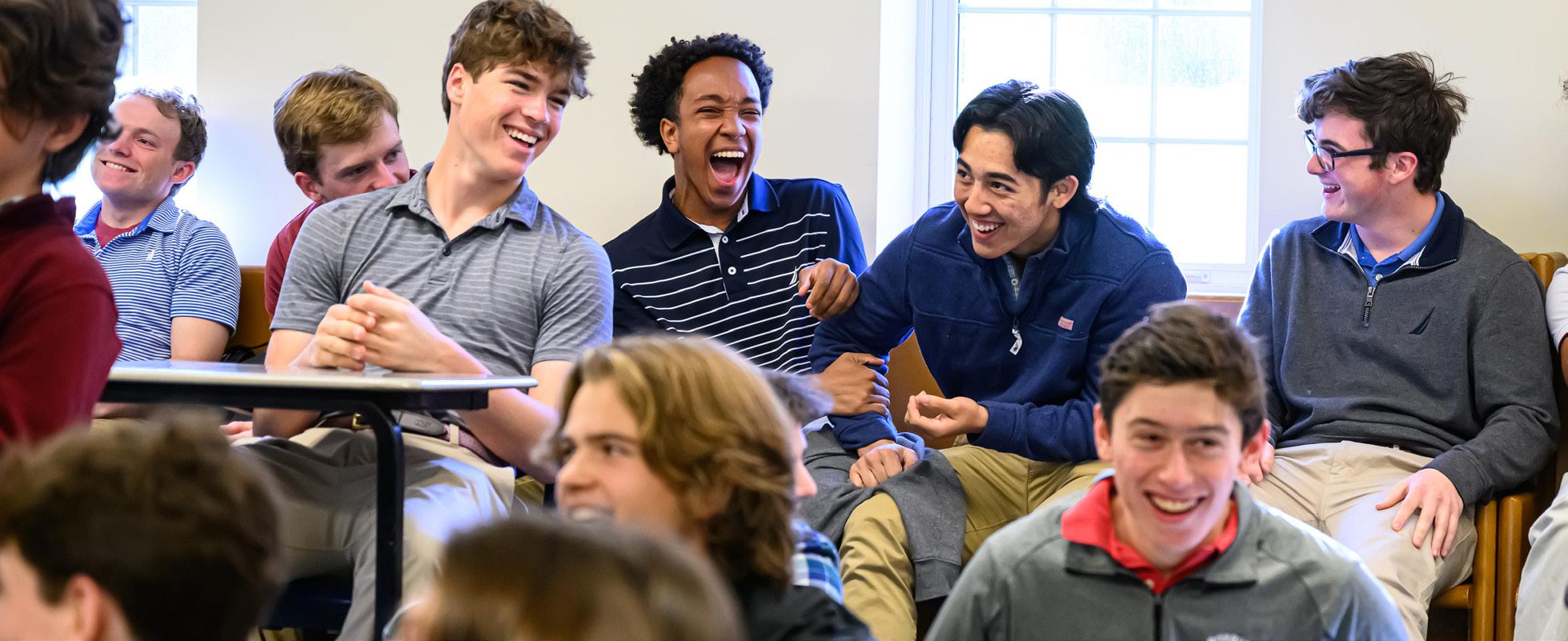
Tuition and Financial Aid
Roxbury Latin is committed to making an education affordable to all admitted students regardless of financial need. The tuition for the 2023-2024 school year is $39,250 inclusive of lunch. Each family is responsible for providing the student with any necessary books and a few personal athletic supplies. Thirty-nine percent of current students receive financial assistance totaling over $3 million. Further, the school awards additional financial assistance to ensure that each boy can participate in activities that complement the program, such as school trips.
One of Roxbury Latin’s most distinctive features is its socioeconomically diverse student body. The school does not consider a family’s ability to pay when making admission decisions, and it meets the full, demonstrated need of every admitted student. All financial assistance awards are based exclusively on need. Roxbury Latin does not award merit-based scholarships. All information regarding the application and awarding of financial assistance is completely confidential.
The actual cost of educating a boy at Roxbury Latin is nearly $68,000, so even families paying full tuition pay less than 60 percent of the total cost of their son’s education. The school is able to bridge the difference by drawing upon its endowment and the Annual Fund—which over the last several years has enjoyed 100-percent participation by Roxbury Latin parents. Roxbury Latin’s tuition is about two-thirds that of neighboring independent schools.
Instructions about how to apply for financial assistance can be found on our website. All parents are required to fill out a confidential form. The financial aid application deadline for returning students is December 15, 2023, and January 15, 2024, for applicants. Parents of returning boys must file a new application each year. Applications are reviewed annually by the Committee and aid normally remains consistent provided that the family’s need continues.
78 | The Roxbury Latin School Catalogue 2023-2024
The Classes
The First Class (2024)
Mark Leon Anderson, Newton
Matthew Theodore Bastardi, Hingham
Leonardo Bene, Chestnut Hill
Camden Carr, Milton
Andrew Michael Cerullo, Bridgewater
Theodore Louis Perkins Coben, Dedham
Hayden Cody, Acton
Nicholas Matthew Consigli, Medfield
Aidan Joseph D’Alessandro, Weston
Akhilsai Reddy Damera, Marlborough
Peter Duggan DeVito, West Roxbury
Sean Patrick DiLallo, North Easton
Eric Badou Diop, Roslindale
Joseph Edward Dougherty, Natick
Ammar Yasir Elawad, Roslindale
Dovany Estimphile, Milton
Ian Michael Fuller, Watertown
Matthew Xavier Golden, West Roxbury
James Samuel Henshon, Wellesley
Ian Cooper Herrera, West Roxbury
Aydin Kashani Hodjat, Jamaica Plain
Abraham Wolfe Simon Jacoby, Wellesley Hills
Dennis Jin, Lexington
Dror Yair Shun Ko, Chestnut Hill
Dominic Rodrigo Landry, Belmont
Hunter William Lane, West Roxbury
Angus Hollis Leary, West Roxbury
Jiho David Lee, Wellesley
Ezra Liebowitz, Chestnut Hill
Ryan Jin Lin, Sharon
Robert Justin Loo, Brookline
Mark Daniel McGuire, Brighton
Jake Edward Novak, Needham
Benjamin Ethan O’Keeffe, Boston
Sean Patrick Perri, West Roxbury
Ryan Thomas Peterson, West Newton
Jayden The-Vinh Phan, Hyde Park
John Michael Popeo, Needham
Alejandro Rincon, East Boston
Matteo Alessandro Dias Santagata, West Roxbury
Ayan Shekhar, West Roxbury
Thomas Ryan Silva, Dedham
Reid Spence, Winchester
Brendan Francis St. Peter, West Roxbury
Hunter Sam Stevens, Newton
Bretton Charles Streckenbach, Winchester
John Terry Thomas, Canton
John Louis Tompros, Charlestown
Edgar Torres, Hyde Park
Lucas Eric Vander Elst, Boston
Joseph Hanrui Wang, West Roxbury
Justin Yamaguchi, Westwood
Evan Hu Zhang, Sherborn
Eric Grant Zhu, West Roxbury
The Second Class (2025)
Noah Abdur Rahim, Mattapan
Marc Daniel Jean Albrechtskirchinger, Newton
Jaden Barrack-Anidi, Framingham
Miles Baumal-Bardy, Brookline
Shane Michael Bernazzani, West Roxbury
Ryan Sheehy Conneely, West Roxbury
Lucas Christopher Connors, Needham
Oliver Linden Cook, Jamaica Plain
Taylor Edward Nathan Cotton, Plainville
Benjamin David Dearden, South Boston
Samuel Matthew DiFiore, Canton
Darian Tabesh Estrada, Brookline
Isaac E Shemma Frehywot, Cambridge
Caleb Andy Ganthier, Roslindale
Alex Antonio Giordano, Framingham
Levi Samuel Harrison, Chestnut Hill
Zachary Andrew Heaton, Roslindale
Henry Rolf Hochberg, Brookline
Joshua Gu Hua, Westwood
Jack Richard Hynes, Milton
Bryce R. Ketchen, Walpole
Bruno Busung Kim, Brookline
Ezra Dovid Klauber, Jamaica Plain
79
Justin Kekoa Lim, Lexington
Benjamin Mwangi Macharia, Braintree
Nicholas George Gideon Makura, Newton
Francis-Xavier Paul Martin, West Roxbury
Logan McLaughlin, Dorchester
Benjamin Eldridge McVane, Hingham
Caleb Paul Meredith, Westwood
Ryan Michael Miller, Wellesley
Krishantha Edirisinghe Muniappan, Winchester
Lucas James Numa, Weston
Cole Oberg, Weston
Eliot Daye Park, Chestnut Hill
Thomas Holt Pender, Milton
John Hines Price, Winchester
Omar Fayez Rahman, Brookline
Devan Singh Rajagopalan, Wellesley
Brendan Lennon Reichard, Needham
Calvin Reid, Brookline
Tucker Duggan Rose, West Roxbury
Liam Patrick Russell, West Roxbury
Timothy Michael Ryan, Dorchester
Raj Saha, Wellesley Hills
Samuel Patrick Seaton, West Roxbury
Daniel T. Stepanyan, Lexington
Michael Christopher Strojny, Canton
Robert Leo Sun-Friedman, Newton
Jack Thomas Sweet, Charlestown
Matthew Thomas Taglieri, Braintree
Aiden Yanni Theodore, Randolph
Quinn Thomson, Dover
Oliver Jules van den Bosch, Chestnut Hill
Christo Petrov Velikin, Boston
Paul Daniel Wilkinson, Dedham
Nathan Zhang, Wellesley
The Third Class (2026)
Dillan James Akinc, Needham Heights
Simon Liam Benjamin Albrechtskirchinger, Newton
Drew Alan Anderson, West Roxbury
Will David Archibald, Canton
Abdulwahab A Baaj, Concord
Preston Bearce, Foxboro
Luca Bene, Chestnut Hill
Declan Robert Bligh, Medfield
Jordan Zucrow Bornstein, Newton Highlands
Colin Edward Bradley, Charlestown
Kevin Giovanni Brennan, Duxbury
Luke Michael Campanella, Norwood
Denmark Chirunga, Lexington
Oliver Paul Colbert, West Roxbury
Michael Anthony DiLallo, North Easton
Auden Michael Duda, Roslindale
Richard Domenic Federico III, Weston
Mitchell Joseph Flynn, Needham
Kenneth Foster, Cambridge
Nicholas David Galdo, Norfolk
James Gerard Gibbons, Milton
Brayden M. Gillespie, Randolph
Nicholas George Glaeser, Weston
Cole Emerson Gustie, Westwood
Navid Kashani Hodjat, Jamaica Plain
Lincoln Hyatt, West Roxbury
Aspen Sage Malachi Johnson, Brookline
Maxwell Cohn Kesselheim, Boston
Avish Kumar, Canton
Gavin Thomas Lane, West Roxbury
Finnegan Byron Leary, West Roxbury
Grayson Jung Lee, Boston
Jonathan Peter Loo, Brookline
Christopher Michael Lovett, Quincy
Simbarashe Tadiwanashe Tinotenda Makura, Newton
Dylan Rene Massard, Boston
Shane Patrick McGoldrick, Dorchester
Ryan Joseph Molloy, Westwood
Nitin Muniappan, Winchester
Robert Russell O’Shaughnessy, Norfolk
Khiomany Emmanuel Ortiz, Boston
Dylan Pan, Brookline
Braden Place, Needham
Thomas John Pogorelec, Brookline
Fintan John Reichard, Needham
80 | The Roxbury Latin School Catalogue 2023-2024
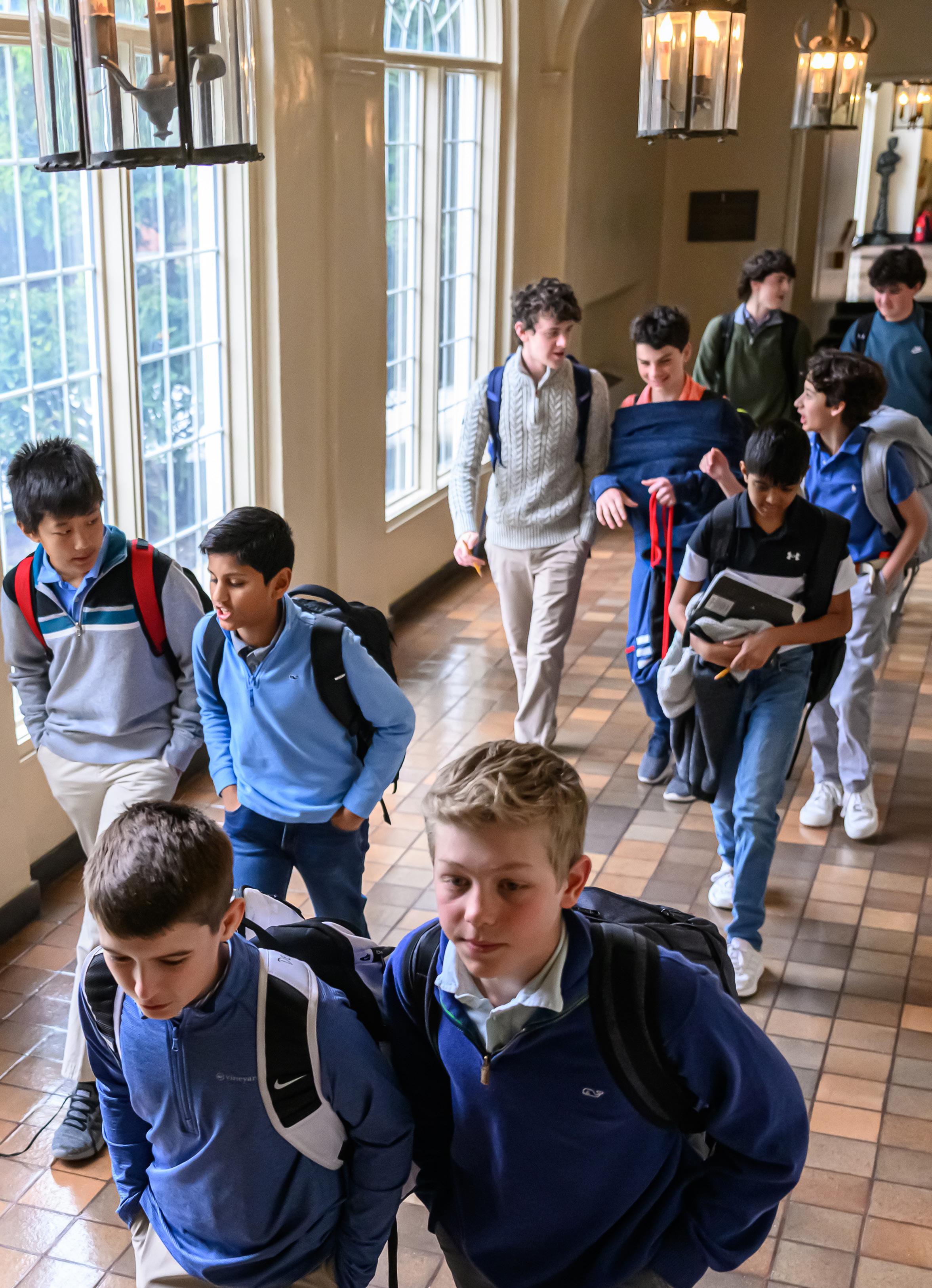
Austin Reid, Brookline
Michael William Rimas, Roslindale
Edward Anthony Smith, Scituate
Jacob Strojny, Canton
Marco Vikram Suri, Holliston
Daniel Joseph Tobin, West Roxbury
Christopher James Vlahos, Stoughton
Liam Thomas Walsh, Duxbury
James Peter Ward, Roxbury
Thomas Duggan Weber, Walpole
Brian Wayne Weeks, Canton
Mateo Kellogg Werner, Brookline
The Fourth Class (2027)
Eric Nacheng Archerman, Weston
Charles Xavier Austin, Boston
Louis Hy Baumal-Bardy, Newton
Zachary Morgan Beaver, Newton
Sidda Chalamalasetty, Medfield
Casey Kalani Chiang, Weston
Michael Scott Clark, South Boston
Aidan Charles Cleary, Boston
David William Comander, Chestnut Hill
Andre Octavian DaSilva, Canton
Ajay Raj Devendran, Needham
John Devine, Milton
William Kenneth DiFiore, Canton
Christopher Alexander Eaton, Mendon
William Quinn Erhard, Canton
Theodore Fortuin, West Roxbury
Ethan Joshua Berger Frank, Cambridge
Caleb B. Shemma Frehywot, Cambridge
Andrew James Giordano, Dedham
Flynn Wellington Hall, Westwood
Tobias Harrison, Chestnut Hill
Ameer Hasan, Braintree
Charles Lincoln Holt, West Roxbury
Devin Jamal, Boston
Milan Sameer Kapasi, South End
Luke James Kern, Roslindale
James Randall Kerr, Norwood
Dante Francis LaMonica, Dorchester
Alvin Li, West Roxbury
Patrick James Long, Canton
Xavier Joseph Maricich, Cambridge
Temidire Opemipo Martins Dosumu, Boston
Mark Joseph Mattaliano, Boston
Thomas McGuire Mattera, Norwell
Joseph Henry Meade, Natick
Thomas Brophey Mitchell, Needham
Rahsaan Joaquin Mustafa-Coentro, Needham
Thomas John Numa, Weston
Tanner Oberg, Weston
Andrew Charles Plante, Wellesley
Thomas Francis Quinlan, Dorchester
Nishant Singh Rajagopalan, Wellesley
Marcus Paul Rios, West Roxbury
Colin Patrick Roache, Milton
Nathan Gerard Rooney, Milton
Benjamin Jonas Samuels, Chestnut Hill
James Thomas Skeffington, Chestnut Hill
Thomas Robert Stanton, East Walpole
Gavin Robert Stephenson, Back Bay
William Ryan Sutton, Charlestown
Thomas John Thornton, Hingham
Paul Louis Tompros, Charlestown
The Fifth Class (2028)
Omar Baaj, Concord
Abdoulaye Bah Bangura, Dorchester
Cameron Michael Cataruzolo, Milton
John Xavier Cirasuolo, Roslindale
Michael Anthony Corley, West Roxbury
Caiden Bravo Crowley, Newton
Jakoby Steven Dalton, Norwood
Tyler Andrew Dearborn, Sherborn
Thomas Edward DiFiore, Canton
Lucas James Dolan, Wrentham
Anthony Christopher Faletra, Holliston
Alessandro Richard Frigerio, Brookline
Max Goldman, Brookline
Kevin Ryan Greene, Quincy
82 | The Roxbury Latin School Catalogue 2023-2024
Luke Richard Grossman, Chestnut Hill
Liam Louis Guadagno, Westwood
Grant Hedgepeth, Westwood
Jasper Hyatt, West Roxbury
Connor James Hynes, Milton
John Clinton Kelly, West Roxbury
Nathaniel Kelly, Cambridge
Rory Francis Kelly, Brighton
Maceo Matthews King, West Roxbury
Edward William LaFond, Sharon
Carter James Lewis, West Roxbury
Zachary Lim, Lexington
Lucas Mashikian, Boston
Liam Foley Millsom, Wellesley
John Joseph Mitchell, Westwood
Austin Patrick O’Leary, Needham
Nayan Patel, Weston
Jackson Perri, West Roxbury
Michael Patrick Quinlan, Dorchester
Joseph Raposo, Dedham
Ignacy Michael Robinson, Milton
Benjamin Gavin Romano, Hyde Park
Sam Aldo Ruscito, Canton
Kolby Kenan Sahin, Needham
Kojo Sam, Wellesley
Peter Herbert Shaughnessy, Medfield
Chase Barrington Sullivan, Newton
Luke Sweet, Charlestown
Blake AlSherif Turner, Boston
Julian Vidal, Boston
Brian William Whitecross, Walpole
Matthew Vernon Young, Boston
The Sixth Class (2029)
Alex Nalue Archerman, Weston
Everett Webb Bluman, Chestnut Hill
James P. Boccuzzi, West Roxbury
Ethan Budreau, Jamaica Plain
Rowan D. Bush, Brighton
Rai Arjun Chakravarty, Weston
Thomas Michael Cloutier West Roxbury
Henry Chung Collier, Wellesley
Daniel Robert DiLallo, North Easton
Sebastian James Mustone Engler, Charlestown
Solon Triant Estes, Concord
Owen Clark Finn, Boston
Cameron Matthew Franzosa, Braintree
Maximus Rocco Gaeto, Newton
Bruce Paul Ghostlaw, Walpole
Nathan Maxwell Ginsburg, Boston
Henry Grossman, Dover
Ryan Thomas Guden, Needham
Beckham Ellison Holley, Jamaica Plain
Noah Christopher Holt, Dorchester
Peter Sherman Hughes, Chestnut Hill
Owen Jamal, Boston
Alexander Calogero King, West Roxbury
Andrew Kramer, Wellesley
Jacob Philip Lando, Dover
Dylan Christopher Lane, West Roxbury
Michael Li, Wellesley
Charles Sherman Malley, West Roxbury
Cormac John Mills, Milton
Patrick Joseph Mitchell, Needham
Peter Tug Consigli Mohan, Boston
Guled Abdirahman Rashid, Hyde Park
Leone Max Seidel, Brookline
Nico Kl Selvaggio-Wagner, Hyde Park
Sahaj Deo Swaroop, Brookline
Leo Patrick Venanzi, West Newton
Robert Otto Vey, Walpole
Anthony Rashid Wallace, West Roxbury
Tomas Werning, Boston
Christopher Michael Yeh, Newton
Jeronimo Orsono Yepes, East Boston
Haotian Zheng, Belmont
83
The Faculty & Administration
The Faculty
Kerry Paul Brennan (1978-86, 2004), F. Washington Jarvis Headmaster; Music, History. AB (1977) Amherst; MA (1983) Columbia.
Bryan Louis Dunn (2020), Assistant Headmaster for Program; Deane Family Dean of Faculty; Chair, Science Department. BS (1998) William & Mary; MEd (2010) Boston College; PhD (2018) Northeastern.
Thomas Richard Guden ’96 (2006), Assistant Headmaster for Advancement; Classics. AB (2000) Bowdoin; MA (2009) Tufts.
Maurice A Randall II (1976), George Norton Northrop Professor of English; Classics. AB (1976) Harvard; MA (1983) Dartmouth.
Paul Edward Sugg Jr. (1983), Science. BA (1982) Hamilton; MA (1991) Dartmouth.
Ousmane Diop (1994), Stanley J. Bernstein Professor of Modern Languages; Chair, Modern Languages Department. BA (1994) Oberlin; MEd (2001) Harvard.
Stewart Griffing Thomsen (1998), A. Kenneth Scribner Professor of History; Chair, History Department. AB (1983) Harvard; JD (1988) Suffolk; LLM (1991) Boston University.
John Michael Lieb (1998), Chair, Mathematics Department. BA (1995) Williams; ALM (2014) Harvard Extension School.
Antonio Pedro Teixeira ’93 (1998), Director of Athletics. AB (1997) Bowdoin; MA (2002) Middlebury.
Hunter Mayo White (1982-85, 1998), French. BA (1981) Trinity; MA (1984) Middlebury.
Robert Charles Opdycke (1999), Director of Music; Mathematics. AB (1999) Harvard.
Joshua Michael Cervas (2001), Joseph R. Kerner Jr. Chairholder in English; Chair, English Department. AB (2000) Amherst; MA (2009) Middlebury.
Peter Sutherland Hyde (2001), Charles T. Bauer Professor of Science. BS (1992) Yale; PhD (2001) Stanford.
Thomas Emmett Walsh, Jr. ’79 (2002), Director of College Guidance; Classics. AB (1983) Bowdoin; MA (1993) Dartmouth.
Kenneth Goodall Hiatt ’93 (2004), Associate Director of Information Services, English, Arts. AB (1997) Princeton.
Ruthmary Delaney (2006), Mathematics. AB (1983) Bowdoin; MBA (1997) Boston University; MEd (2003) Harvard.
Erin Amanda Dromgoole (2006), Steven E. Ward Chairholder in History; English; Director of Academic Support. AB (2001) Dartmouth; MA (2005) Tufts.
Ernesto Guerra (2008), Spanish, History. AB (1990) Brown; MA, PhD (2001) Harvard.
William Francis Quirk, Jr. ’04 (2008), Assistant Dean of Students; English, Class V Dean. BA (2008) Georgetown; MA (2018) Middlebury.
Nathaniel Walker Piper (2009), Director of the IDEA Lab; Math/Science. BS (2008) Worcester Polytechnic Institute; MA (2020) Michigan State.
James Philip Ryan (2009), Spanish, Art, Class IV Dean. BA (1993) Holy Cross; MA (2006) Boston College.
Darian Christopher Reid ’05 (2010), Director of Studies; John P. Brennan Chairholder in Classics. AB (2009) Bowdoin; MA (2017) St. John’s College; MEd (2021) Columbia.
Daniel Minor Redd Bettendorf (2012), Mathematics, Class I Dean. BA (1991) Washington and Lee; MS (1997) Medical College of Virginia; MA (2014) Middlebury.
Elizabeth Bennett Carroll (2013), Science, Class VI Dean, Development. BA (1993) University of Virginia; MEM (1999) Yale.
Christopher A.J. Heaton (2013), Librarian, Archivist, Media Coordinator, History. BA (1990), MA (1993), MS (1994) University of Scranton; MS (2012) Simmons College.
84 | The Roxbury Latin School Catalogue 2023-2024
George Michael Matthews, Jr. ’08 (2013), Classics, English, Class II Dean. BA (2012) Holy Cross; MA (2013) University of Liverpool.
Jameson Lynn Morris-Kliment (2013), Arthur Vining Davis Professor of Greek and Latin; Chair, Classics Department. BA (1989) Yale; MA (1993) Boston University.
Timothy Paul Kelly (2014), History, Class III Dean. BA, MA (1994) University of Scranton.
Gregory Isaac Sokol (2015), Mathematics, Science. BA (2010), BE (2011) Dartmouth; MEd (2015) Lesley.
Arturo Daniel Solís (2015), Spanish. BA (2004) Cornell; MA (2016) Middlebury.
Sean Patrick Spellman ’08 (2015), Associate Director of Athletics; Director of Summer Programs, Health and Wellness. BA (2013) Springfield College; MS (2021) Northeastern.
Christopher Michael Brown (2018), History, Science. BA (2018) Bowdoin; MEd (2020) University of Pennsylvania.
Sarah Jordan Demers (2019), English. BA (2007) Brown; MA (2017) Harvard.
Andrés Amitai Wilson (2019), English. BM (2003) Berklee College of Music; MA (2018) Columbia; MA (2014) University of Massachusetts; PhD (2018) University of Massachusetts.
Arthur R. Beauregard (2020), Mathematics, Science. BS (2000) Lehigh; MS (2005), PhD (2009) University at Albany.
Michael Phelps Beam ’10 (2021), English, Classics. BA (2015) Pomona. MEd (2023) University of Pennsylvania.
Matthew Sean McDonald ’85 (2021), Director of Admission, History. AB (1989) Dartmouth.
Jacqueline M. Salas (2021), Director of Community and Culture, Science, Mathematics. BA (2014) Regis; MEd (2017) Notre Dame.
Alexander Edward Bleday (2022), Director of Major Gifts and Planned Giving, Classics. BA (2010) University of Pennsylvania; MBA (2016) Babson.
Jack Arthur Colavita ’17 (2022), English, Classics, Penn Fellow. BA (2021) Georgetown.
Matthew Peter Golden (2022), Assistant Director of Athletics, Health and Wellness. BA (2020) Bates.
Rachel Shaylen Korotkin (2022), Chair, Arts Department. BA, BFA (2015) University of Miami; MAT (2017) Tufts.
Alexander Joseph Pellegrini ’10 (2022), Assistant Director of Admission, Assistant Director of Alumni Affairs, Arts. BA (2014) University of Colorado, Boulder.
David Grant Smith (2022), Dean of Students, English, History, Health and Wellness. BA (2005) College of William and Mary; MTS (2008) Harvard Divinity School.
Geoffrey Scott Theobald (2022), Mathematics. BA (1988), MSW (1991) University of North Carolina, Chapel Hill.
Eric Nguyen Tran (2022), Mathematics, Classics, Penn Fellow. BA (2022) Williams College.
Karen Vanessa Buitrago Munoz (2023), Modern Languages, Penn Fellow. BA (2022) Middlebury.
Jeffrey Michael Ott (2023), Science, History. AB (2017) Harvard.
Matthew Collin Phillips (2023), Director of Dramatics, Penn Fellow. BA (2022) Georgetown.
Blake Andrew Sundel (2023), English. AB (2015) Harvard; MBA (2020) University of Southern California.
The Administrative Staff
Misty K. Beardsley (1998), BS, Athletic Trainer.
Erin E. Berg (2017), BA, Director of External Relations.
David S. Cataruzolo (2013), AB, MA, Director of Alumni Affairs.
Karen Dinon (2014), BS, Director of Financial Aid, Business Office Associate.
Michael B. doCurral (2017), BA, MBA, Director of Operations, Superintendent of Buildings and Grounds.
85
Alessandro Ferzoco ’14 (2023), AB, Director of the Annual Fund.
Julie M. Garvey (2014), BS, Development Associate.
Kristen M. Gibbons (2022) BA, Assistant to the Headmaster.
Wasib Hayat (2022), BS, MS, Director of Information Services.
Boaz Levy (2007), BA, MA, PhD, Consulting Psychologist.
Keri Maguire (2016), BA, MSN, Nurse, College Guidance Assistant.
Marcus C. Miller (2018), BAJMC, BA, MA, Director of Digital and Graphic Design.
Michael J. O’Brien (2005), BS, MD, School Physician.
Michael T. Pojman, (1980), BS, MA, Director of Service.
Carolyn D. Powell (2018), BS, Assistant Director of Admission.
Meredith H. Reynolds (2018), BA, Associate Director of College Guidance.
Michael J. Stanton (2020), BS, MBA, CPA, Chief Financial Officer.
Susan D. Walsh (2000), BA, Assistant Bursar.
The Buildings and Grounds Staff
Reginald Brun (2000), BS, Buildings and Grounds Foreman.
Eddy Brito (2021)
Brian Larence (2021)
Doumar Zambrano (2021)
Juan Zapata (2021)
Masters Emeriti
John Patrick Brennan, Classics Master Emeritus.
Brian Burke Buckley, Arts Chair Emeritus.
Livingston Carroll, Mathematics Chair Emeritus.
William Egisto Chauncey, Assistant Headmaster Emeritus.
Richard Graham Dower II, Charles T. Bauer Professor of Science Emeritus.
Robert Stafford Jorgensen, Senior Master Emeritus.
Joseph Robert Kerner Jr., George Norton Northrop Professor of English Emeritus.
Philip Robert Kokotailo, Deane Family Dean of Faculty Emeritus; English Department Chair Emeritus.
Edward Stovall Ligon, Arthur Vining Davis Professor of Greek and Latin Emeritus.
Robert Joseph Moore, Science Chair Emeritus.
Bradford Clinton Perham, Director of Athletics Emeritus.
Michael T. Pojman, Associate Headmaster Emeritus; Allen Latham Professor of Science Emeritus.
Richard John Russell, Mathematics Master Emeritus.
Sarah Allen Stevens, History Master Emerita.

The Trustees & Officers 2023–2024
Officers
Ethan M. Berman ’79, President
Michael J. Giarla ’76, Chairman
Paul M. Spinale ’81, Vice President
Derek T. Ho ’92, Secretary
Christopher T. Mitchell ’89, Treasurer
Trustees
Ethan M. Berman ’79 (2027), Trustee.
Matthew Consigli (2027), Trustee. President, Consigli Construction Co., Inc.
Katherine Craven (2029), Trustee. Chief Administrative and Financial Officer, Babson College
Matthew W. Fruhan ’91 (2028), Trustee. Manager of Large Cap Stock, Fidelity Investments, Inc., Fund.
Michael J. Giarla ’76 (2026), Charter Trustee.
Roberto S. Goizueta (2024), Trustee. Margaret O’Brien Flatley Professor Emeritus of Catholic Theology, Boston College.
James Hamilton ’91 (2034), Charter Trustee. Head of School, Berwick Academy.
Derek T. Ho ’92 (2025), Trustee. Partner, Kellogg, Hanser, Todd, Figel & Frederick, P.L.L.C.
Eugene O. Lambert Jr. ’87 (2024), Trustee. Staff Physician, Addiction Medicine Fellow, Department of Medicine, Massachusetts General Hospital.
Ian Lane (2029), Trustee. Managing Director, Harbourvest Partners, LLC.
Andrew J. McElaney, III ’96 (2028), Trustee. Partner, The Baupost Group, LLC.
Marlyn Elizabeth McGrath (2025), Trustee
Anne Craige McNay (2030), Charter Trustee
Obiora (Bo) I. Menkiti ’95 (2029), Trustee. Founder and CEO, The Menkiti Group.
Christopher T. Mitchell ’89 (2028) Charter Trustee Managing Director, Spectrum Equity.
John (Jay) Mitchell III ’96 (2026), Trustee. Managing Director, Audax Management Company, LLC
Monica Neuman (2028), Trustee. Partner, McDermott, Will & Emery, LLP.
Soren Oberg (2026), Trustee. Partner, Thomas H. Lee Partners.
Robert J. O’Connor Jr. ’85 (2024), Charter Trustee Partner, DLA Piper LLP (US).
Paul R. Provost ’83 (2027), Trustee. Chief Executive Officer, Art Bridges Foundation.
James J. Quagliaroli ’93 (2025), Trustee Co-Founder and Managing Partner, Silversmith Capital Partners.
Kent E. Sahin ’91 (2024), Trustee. CEO, Sahin Technologies, LLC.
Paul M. Spinale ’81 (2032), Charter Trustee.
4 | The Roxbury Latin School Catalogue 2019-2020 The Roxbury Latin School 101 St. Theresa Avenue, West Roxbury, Massachusetts 02132-3496 t: 617.477.6317 www.roxburylatin.org






































